一 : 新目标九年级上英语Unit4复习学案
九年级英语上unit 4 what would you do?
(一)(学习目标)language goals
1. talk about imaginary situations. (谈论一些假设的、虚拟的情况。)
2. hypothetical conditionals. (初步学习虚拟语气)
3. give some advice with the target language. (使用虚拟句提出建议)
(二)语言结构(language structures)
虚拟语气(掌握与现在事实相反或与将来事实相反的虚拟条件句)
(三)目标语言(target language)
1. if i were you , i’d wear a shirt and tie. 如果我是你,我就会穿衬衫打领带。
2. if i were you , i’d take an umbrella. 如果我是你,我就带把伞。
3. what would you do if you won a million dollars ?
如果你赚了一百万美元,你会做什么?
4. what if i don’t know anyone ? 如果我一个人也不认识怎么办?
5. you should eat lots of fruits and vegetable and drink lots of water.
你应该吃大量水果、蔬菜,大量喝水。
6. what are you like ? i think i’m outgoing. 你的性格如何?我想我很外向。
(四)key phrases (重点词组) 1. won the lottery 赢得抽奖
2. in public 公共的、公众的
3. in the slightest 一点也;根本
4. plenty of 很多的、足够的
5. get along with 与…相处
6. let …down 使…失望、沮丧
7. come up with 提出、想出(问题)
8. medical research 医学研究
9. what if 如果…怎么办
10. be late for 迟到…
11. be nervous 紧张的
12. get nervous (变得)紧张的
13. take a long walk 散步
14. ask one’s permission 征求某人的许可
15. without permission 没得到许可
16. introduce oneself 自我介绍
17. rather than 而不是
18. a circle of good friends 朋友圈子(五)语法重点(grammar focus)虚拟语气
1. 语气就是我们常说的说话人说话的口气:
在汉语中,语气是由说话人说话的语调、情节等等表现出来的,动词没有任何变化。而在英语中,除了语调之外,最主要的是动词发生变化而表示不同的语气。在英语中语气分为三类:陈述语气、祈使语气、虚拟语气。
2. 虚拟语气:
如果我们所说的不是事实,也不是要求、命令、劝告等,而只是一种假设、愿望、建议或是一种实现不了的空想就用虚拟语气。
3. 虚拟语气常用在条件句中,及其他一些从句中。
注意:条件句分两种,真实条件句和虚拟条件句。只有在虚拟(非真实)条件句中,才用虚拟语气,而在真实条件句中,要用陈述语气。
请比较:
(1)if it is sunny tomorrow , we’ll go to the zoo.
如果明天天气好,我们将会去公园。在这句话中,明天天气好是完全有可能实现的,并非虚拟、幻想,因此是真实条件句。在本句中,适用“主将从现。”
(2)if i were you , i would go at once.
(如果我是你的话,我立刻就走。)在这句话中,条件句,“如果我是你”,但事实上,我不可能成为你,这只是假设的情况,没有实现的可能。当条件实现的可能性很小,甚至可以说没有时,就需要用虚拟语气来表示,动词发生了变化。
4. 在虚拟语气中,句子动词的时态比真实条件句中的时态后退一步
即:
现在时→过去时(该用现在时时,用过去时)
过去时→过去完成时(该用过去时时,用过去完成时)
将来时→过去将来时(该用将来时时,用过去将来时)
过去将来时→过去将来完成时(该用过去将来时时,用过去将来完成时)
在这一单元中,我们只要求初步接触虚拟语气的用法及结构,学习表示与现在事实相反的情况下如何体现虚拟语气。
5. “表示与现在事实相反的情况”的虚拟语气
请看例句:
if i were you , i would take a small present.
如果我是你的话,我就带上一个小礼物。
(注:在这个句子中,即“if i were you 中,一定用were ,而不能用was”)
(这句话中,是与现在的事实相反,“现在如果我是你的话。”事实上,我不可能成为你,也就根本没有实现的可能)
请大家注意主句与条件从句中动词时态的变化。
从句(用过去时) 主句(用过去将来时)
if +主语+
主语+
注:虚拟语气中的were 除了在if i were you 的结构中不能改动外,其它情况下有时可用was。
又如:
if i won a million dollars , i’d give it to charities.
如果我赢了一百万英镑,我要捐给慈善机构。
(在此句中,if条件句中,动词用过去式won,主句则用should / would 加动词原形。现实情况是我没赢一百万英镑;虚拟的情况是假如我赢了一百万,这种虚拟是不可能变成现实的,因此用虚拟语气。)
6. 虚拟语气的疑问式,除了动词相应的变化外,其他变化与陈述语气相同
如:
(1)what would you do if you were in the lion’s cage ?
如果你在狮子笼里,你会怎么做?
(疑问词在句首,主句中助动词提前,从句跟在主句后面。)
if i were in the lion’s cage , i’d call for help. 如果我在狮子笼里,我会大呼救命。
if i were in the lion’s cage. i’d get out fast. 如果我在狮子笼里,我会迅速出来。
(2)what would you do if you won the lottery ? 如果你赢了抽奖,你会做什么?
i’d give it to medical research. 我会用于医学研究。
or i’d put it in the bank. 我会存到银行。
or if i were a millionaire , i would buy a big house in the country.
如果我是百万富翁,我就在乡村买座大房子。
关于虚拟语气,我们要学习的东西还有许多,同学们会在今后的学习当中,慢慢接触到。
(六)key points (疑难解析)
1.bring与take
bring的意思是把某人或某物“带来”,“拿来”,强调方向,即从别处拿到说话人这儿来。
e.g. next time you come , bring me that book , please.
下次你来的时候,把我的书带来。
take的意思是把人或物“带走,拿走”,即从说话人这儿带到别处去。
e.g. who has taken away today’s newspaper ?
谁拿走了今天的报纸?
另外,相似的词还有get 和fetch ,表示到某地找到某人或某物并带回来,强调一去一回。如:
go and get some water. 去弄点水来。
can you fetch me some paper? 你能给我取点纸吗?
2. he might not know anyone at the party.他可能在晚会上谁也不认识。
might 的用法如下:
(1)是情态动词may的过去式
eg. he said that i might borrow his bike. 他说我可以借他的自行车。
(2)是may的虚拟语气形式,不表示过去,而表示现在或将来“可以,可能”,但语气更委婉、客气,有时表示对可能性有所怀疑。如:
a. might i borrow your bike? 我可能借你的自行车吗?(语气比may更委婉)
b. he might come today. 今天他可能会来。(对“他来”的可能性有所怀疑)
3. what if “如果…怎么办”、“即使…又有什么关系?”
这是一个固定搭配,引导带条件从句的疑问句。如:
what if they don’t come? 他们不来怎么办呢?
what if i don’t know anyone? 如果我一个人也不认识,怎么办呢?
4. i get nervous before big parties. 在大的晚会之前,我会感到紧张。
get nervous 变得紧张,get是系动词,nervous 是形容词做表语。
又如:be nervous 或feel nervous 均可表达同样的含义。
5. in public 公共的、公开的
eg. lily is very shy , and she is afraid to speak in public.
莉莉很害羞,她害怕在公众场合讲话。
6. ask one’s permission 征求某人的同意。
without permission 没有得到许可。
7. introduce vt. 介绍
introduce sb to sb. 把(某人)介绍给(某人)
eg. it’s my honor to introduce my teacher to everyone.
很荣幸,我把我的老师介绍给大家。
introduce oneself 自我介绍
8. sometimes you might annoy people because you’re so confident.
有时候,你可能会激怒别人,因为你太自信了。
9. you would also rather stay at home and read a good book than go to a party.
你可能宁愿呆在家里读书,也不愿去参加晚会。
rather …than …宁愿…也不…(注:than与形容词比较级无关)
rather , than 既可分开用,也可合在一起用,译成“而不是”如:
(1)rather die than surrender 宁死不屈
(2)i , rather than you , should do the work. 该做这个工作的是我,而不是你。
10. in the slightest 根本,一点也
social situations don’t bother you in the slightest.
社会环境根本影响(干扰)不了你。
11. plenty of 充足的、大量的(+可数名词复数/不可数名词)
12. enjoy the company of other people. 享受他人的陪伴
13. a circle of good friends. 朋友圈子
14. let sb down 使(某人)失望、沮丧
15. come up with 提出问题
【模拟试题】
一. 写出下列词组 1. 一点也、根本不_________
2. 与…相处_________
3. 使…失望、沮丧_________
4. 如果…怎么办_________
5. 赢得抽奖_________
6. 变得紧张_________
7. 征求某人的许可_________
8. 宁可…也不…_________
9. 迟到_________
10. 公共的、公众的_________二. 补充完整下面虚拟语气的句子,(注意区分主句与从句的位置变化)
1. i’d be a millionaire if __________________________
2. if i had more free time. __________________________
3. if i were you. __________________________
4. she would buy that if __________________________
5. if my house were on fire. __________________________
6. i’d travel around the world if __________________________
7. if i could change one thing about my life. __________________________
8. i wouldn’t do that if __________________________
9. if i could make three wishes. __________________________
10. i would be a better student if __________________________
三. 根据不同情境,首先判断这个情景是真实可能发生的,还是虚拟的,然后填空。
situation a
example: gao is a doctor, but if he were (be) a truck driver, he would have (have) very different skills.
(gao不可能是个卡车司机,因此这个情境是虚拟的)
2. gao’s wife is a doctor, too, but she is planning to change her career. if she
_________ (change)her career , she ___________ (study)to become a lawyer.
situation b
3. antonieta is brazilian, but she has lived in the united states and new zealand, so she speaks excellent english. if she __________ (stay)in brazil , her english _________ (not) (be)so good.
4. however, antoinette _______ (speak) french too if she _________ (move)to france next year.
situation c
5. mary’s car is old. if it ________(break down), she ________ (buy)a new one.
6. because mary has a car, she has driven to school every day this term. but if she
_______ (not) (have) a car, she ________ (take)the bus.
situation d
7. marcia has applied to graduate school. she _______ (start) school next fall if she
_____(get)accepted.
8. when marcia was twenty-one, she quit school for several years to get married and raise a family. if she ________ (continue) her studies instead of raising a family, she _____(begin)graduate school a long time ago.
四. 假设你现在在一个孤岛上,除了图中所示的物品,你一无所有,你该怎么办?完成下题。
imagine you are on a desert island. you have nothing with you except these objects. what would you do with them?
if we were on a desert island, we would use this to _______. we would _______ with this .
if we had this with us on the island, , we would use it to ___________. with this , , we _____________. and finally, we _________ with this
五. 看图
what would you do if you were in prison? at least 5 sentences.
假设你在监狱里,你做些什么?
【试题答案】
一.
1. in the slightest
2. get along with
3. let sb down
4. what if
5. won the lottery
6. get nervous
7. ask one’s permission
8. rather …than …
9. be late for
10. in public二. answers will vary. 答案可多种多样,但必须符合虚拟语气的结构
eg. i’d be a millionaire if i won the lottery.
三. 2. changes ; will study (真实的)
3. had stayed ; would not be (虚拟)
4. will speak / moves (or would speak / moved)(真实或虚拟均可)
5. breaks down ; will buy (真实的)
6. did not have ; would take (虚拟的)
7. will start ; gets accepted (真实的)
8. had continued ; would have begun (虚拟)
四. the objects are knife , sock , fishhook , rope , plastic bags.
answers will vary.
五. answers will vary.
二 : 2014年九年级人教版新目标英语电子课本
义务教育教科书
义务教育教科书英语英 语
九年级??全一册九年级
(中国)人民教育出版社 课程教材研究所
英语课程教
(美国)圣智
·北?京·材研究开发中心编著习集团学
致同学
同学们,你们好!欢迎你们进入九年级的英语学习!
本套教材是根据你们的心理特点、认知水平和兴趣爱好来编写的。相信在新学年,教材的以下特点会继续帮助你们学好英语:
1. 教材不仅要帮助你们学习英语语言知识,更重要的是要帮助你们发展语言运用能力,让你们学会用英语表达思想、与人交流。
2. 教材充分考虑了你们的生活实际和学习需求,教材的内容和活动都与你们的生活和兴趣紧密相连,目的是让你们在英语学习中不感到枯燥乏味,而是有话可说、有话想说、有话能说。
3. 教材在重视培养你们的语言运用能力的同时,更加重视培养你们的语言学习策略和技能。这些策略和技能是帮助你们进一步学好英语的基础。
4. 教材为你们设计了许多具有交际意义的任务或活动,目的是让你们在英语课堂上“活”起来、“动”起来。英语课堂教学需要你们的充分参与,英语学习需要你们与老师合作、与同学交流。通过参与和互动,你们的英语水平才会得到不断提高。
5. 教材进一步丰富了文化教学的内容,包括我们的民族文化、英语国家的文化和非英语国家的文化。通过文化内容的学习,你们的视野会更开阔,思想会更丰富,思维会更活跃,交流会更得体。
要想学好英语,光靠课本是不够的,你们还需要继续接触更多的英语学习资源。学习英语没有捷径,只有多听、多说、多读、多写、多记、多用才是最有效的办法。因此,你们要充分利用各种资源和机会来学习英语。
同学们,继续努力吧!祝你们英语学习取得更大进步!
编者2012年12月





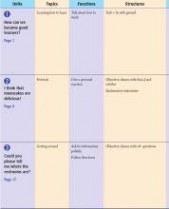
Contents





































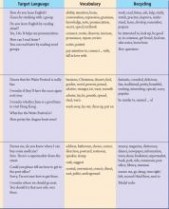





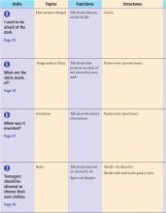













































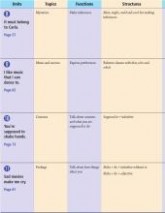






















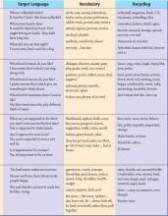





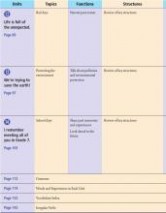






















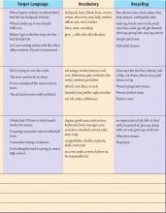



A

How can we become good learners?

1aLanguage Goal:
Talk about how
to studyCheck (?) the ways you study English. Th en add other ways you sometimes study.
I study by making word cards.

1bListen. How do these students study for a test? Write lett ers from 1a above.
1. Meiping

2. Peter

3. Tony1cMake conversations about how you study for a test.1


2bListen again. Match each answer below with a question above.a. Yes, I have. I’ve learned a lot that way.
b. Oh, yes. It improves my speaking skills.
c. I do that sometimes. I think it helps.d. No. It’s too hard to understand the voices.
2c





Make conversations using the information in 2a and 2b.



2dRole-play the conversation.
Jack: Annie, I’m a little nervous. I have
to finish reading a book and give a report next Monday.
Annie: Th at doesn’t sound too bad.
Jack: But I’m a very slow reader.
Annie: For the fi rst time, just read quickly to
get the main ideas. Don’t read word by word, read word groups.Jack: But I don’t understand many of the words. I have to use a dictionary.Annie: Try to guess a word’s meaning by reading the sentences before and aft er
it. You probably understand more than you think.
Jack: Th at sounds di? cult!
Annie: Well, be patient. It takes time. You can become bett er by reading
something you enjoy every day. Th e more you read, the faster you’ll be.2
3aRead the passage about Wei Fen and answer the questions.
1. Why did Wei Fen fi nd it di? cult to learn English?
2. What did she do in English class?
3. What is the secret to language learning?
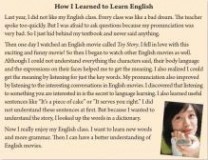
3bComplete the sentences with what Wei Fen learned from watching



movies. Use words and phrases from the passage.
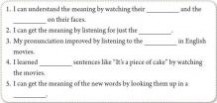





3



4a

Match the questions and answers.
By watching English programs.By listening to a tape and repeating out loud.By having conversations with friends.By taking notes, doing exercises and reading a lot.By making word cards.By writing e-mails to my pen pals.How do you practice speaking? How do you learn new words? How do you improve your writing? How do you practice listening? How do you improve your pronunciation? How do you learn grammar? 4bComplete these statements. Use information that is true for you.
......a. I like to practice my English by b. c. e. f. 4cCheck (?





do to learn English. Th partner.


4




Section1a

BLearning English can be di? cult. What things are di? cult for you? Read the list. Check (?) the statements that are true for you.
1bWhat other things are di? cult for you? Make a list.1.


2.

3. 1cPaul fi nds it di?

cult to learn English. Listen and complete the



learning challenges he talks about.

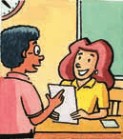
1d

Listen again. Complete the solutions.


1e





Role-play conversations using the information in 1c and 1d.
5


2a
2bWhat good learning habits can you think of? Discuss them with your partner.


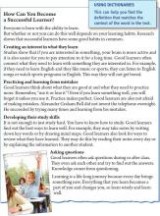
Read the passage quickly. Which four habits of successful learners are
6


2cRead the passage again and answer the questions.
1. Does the writer think that everyone is born with the ability to learn well? Do you agree? Why or why not?
2. Why is it a good idea to connect something you need to learn with some-thing you are interested in?
3. What do the sayings “use it or lose it” and “practice makes perfect” mean? Do you agree with them?
4. Do good learners learn from mistakes or are they afraid of making mistakes?
5. What study skills does the writer talk about? Do you have those study skills?6.

Do you agree that learning is a life-long journey? Why or why not?

2d

Find the following words from the passage in the dictionary. Th

en write
a sentence using each word in the context of the reading.

e.g.

brain:


A good way to train the brain is to do some math exercises every day.

2eCan you think of other ways to become a successful learner? Discuss

with your group and share your ideas with the class.
3aYour friend wants to improve his/her English and asks you for help. What

are the three best ways to learn and why? Make some notes in the chart.


3bWrite a lett er to your friend. Give him/her some advice about the best
ways to learn English. Use your notes in 3a.

8

A
I think that mooncakes are delicious!

1a
Language Goal:Give a personal reaction
Match the pictures with the descriptions.

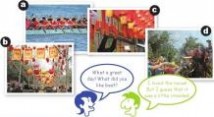
1b
Listen and circle T for true or

F




for false.

T T T T
FFFF
1. Bill thinks that the races were not that interesting to watch. 2. Mary thinks that the teams were fantastic.
3. Bill wonders whether they’ll have the sweet rice dumplings again next year. 4. Bill and Mary believe that they’ll be back next year to watch the races. 1c
Talk about the festivals in 1a.

9

2aListen to the conversation between Wu Ming and Harry and circle the correct words in the sentences.

1. Wu Ming and Harry are cousins / strangers / friends.
2. Wu Ming went to Singapore / Hong Kong / Macao for his vacation.
3. He visited his relatives / friends / classmates.
4. He enjoyed eating out / shopping / the Dragon Boat Festival best.2bWu Ming did a lot of fun activities, but these also have down sides. Listen again and fi ll in the chart.




2cRole-play conversations between Wu Ming and Harry. Use the
information in 2a and 2b or make up your own conversations.2dRole-play the conversation.Clara: Guess what? I’m going to Chiang
Mai in two weeks.
Ben: Wow, sounds like fun! But I believe
that April is the hott est month of the year there.
Clara: Yes, that’s true. But there’s a Water
Festival from April 13th to 15th.
Ben: I wonder if it’s similar to the water

festival of the Dai people in Yunnan Province.

Clara: Yes, I think so. Th is is the time of the Th ai New Year. People go on the
streets to throw water at each other.
Ben: Cool! But why do they do that?
Clara: Because the new year is a time for cleaning and washing away bad
things. Th en you’ll have good luck in the new year.
3aRead the passage about Mid-Autumn Festival and answer the questions.
1. How do people celebrate Mid-Autumn Festival?2. What do mooncakes look like? What meaning do they carry?3. What story is the reading about?

3bRead the passage again. Put the events in the correct order.
Feng Meng tried to steal the medicine. A goddess thanked Hou Yi by giving him a magic medicine. Chang’e refused to give Feng Meng the medicine and drank it all. Hou Yi shot down the nine suns and saved the people on the earth. Hou Yi was very sad and watched the moon at night, and wished his wife could come back. As a result, Chang’e became light and flew up to the sky. Hou Yi planned to drink the medicine with his wife.3cWithout looking at the passage, try to complete the sentences with the
correct words.
1. People like to a the full moon on Mid-Autumn night.2. The story of Chang’e is one of many t3. Hou Yi got a m medicine for shooting down the nine suns.4. Feng Meng wanted to s the medicine.5. Hou Yi l out fruits and desserts in the garden.




4a

Write sentences using the words given.
e.g. think/Lantern Festival/beautiful 1. don’t know/whether/he/come home/for the festival 2. believe/Water Festival/most/fun 3. wonder/if/mooncakes/delicious 4. how/exciting/races 5. what/interesting/city
4b en
write your own sentences about Mother’s Day and Father’s Day using objective clauses.
Dear Xia Yu,
Do you know that there are two special days for parents in America? One is Mother’s Day on the second Sunday of May and the other is Father’s Day on the third Sunday of June. On these two days, American children oft en give gift s to their parents or take them out for lunch or dinner. Common gift s are fl owers and cards for mothers and shirts or ties for fathers. I heard that it is becoming more and more popular to celebrate Mother’s Day and Father’s Day in China. I wonder if children over there also give similar gift s to their parents. I believe that there are many ways to show our love. Actually, we don’t have to spend a lot of money. It is also a good idea to help parents to do something instead.June
4cWhich festival do you like best? Ask your group and report to the class.
e.g. In our group, David’s favorite festival is ... He thinks that ...


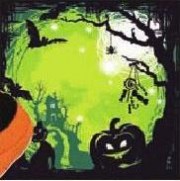
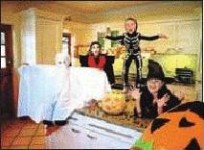
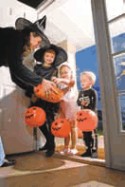
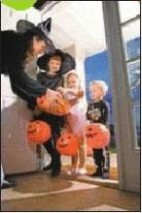
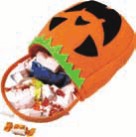

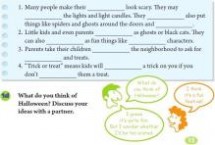
Section1aLook at the pictures and words related to Halloween. What do you think this festival is about?
1bListen and answer the questions.
1. Where is Halloween popular?
2. When do people celebrate Halloween?
3. What does Wu Yu think of this festival?
1cListen and fill in the blanks.


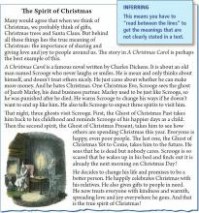
2aDo you know when these special days are? Try to match each day with
the correct date.
Christmas Fourth Th ursday in NovemberApril Fool’s Day February 14thHalloween April 1stSt. Valentine’s Day October 31stTh anksgiving December 25th
Read the passage about Christmas and answer the questions.
1. What are the common things that people think of for Christmas?2. Who wrote A Christmas Carol?3. What is the true meaning or spirit of Christmas?2b





2c

Read the passage again and complete the chart.

2dAnswer the questions. Some answers need to be inferred.
1. Why does Scrooge hate Christmas?
2. Does Scrooge have a lot of friends? Why or why not?
3. Why was Jacob Marley punished aft er he died?
4. Does Jacob Marley want to help Scrooge? How do you know?
5. What does Scrooge do aft er seeing the three spirits?
2eWhat else do you know about Christmas? Make a list of things that you
know about this festival with your group. Use the questions to help you.3a

Your English-speaking pen pal wants to know about your favorite
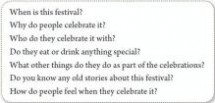
Chinese festival. Make some notes about the festival.




3b


ACould you please tell me where the restrooms are?

1aLanguage Goals:
Ask for
information
politely;
Follow directionsWhere can you do the things below? Match each thing with a place in the picture. Many di? erent answers are possible.
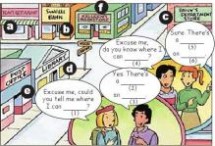
1b

1c
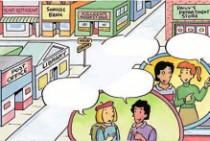
Listen and complete the conversations in the picture in 1a.Make conversations using the information in 1a. Th


en talk about your



own city.

2aListen. You will hear some of the directions below. Number the directions in the order that you hear them. Go to the third fl oor.
Turn left .
oor. Go to the second fl
Turn right.
Th e supermarket is between the
fl ower store and the bookstore.
Go past the bookstore.
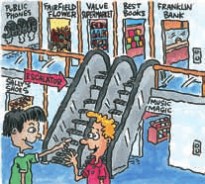
Listen again. Show how the boy walks to the supermarket. Draw a line in the picture above.





Make conversations about the other places in the picture in 2a.2b2c2dRole-play the conversation.
He Wei: Th is is Fun Times Park — the
biggest amusement park in my city!
Alice: I’m excited to try the rides!
He Wei: Where should we start? Th ere’s
Space World, Water World, Animal World ...
Alice: Oh, could you tell me where the restrooms are fi rst?
He Wei: Pardon? Restroom? You already want to rest? But we haven’t even
started yet!
Alice: Oh no, I don’t mean a room for resting. I mean ... you know, a washroom
or bathroom.
He Wei: Hmm ... so you mean ... the toilets?
Alice: Yes! Sorry, maybe the word “restroom” is not commonly used in China.He Wei: Right, we normally say “toilets” or “washrooms”. Th ey’re just over
there.
Alice: OK. I’ll be quick! I wonder when the park closes today.
He Wei:

Nine-thirty, so you don’t need to rush!
3a



Read the conversation and answer the questions below.


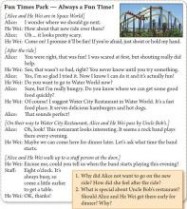
3binformation. Rewrite them in a di? erent way.
e.g. I wonder where we should go next. Could you tell me where we could go next?
3cFind sentences in 3a with similar meanings to the ones below.
1. You’ll enjoy it for sure.
2. You need to do something before you know what it’s like.
3. It looks like there’s live rock music there every night.





4aRewrite the
questions to make them more polite.
What should each
person ask in the following situations?
1. Tim is very hungry.4bCould you tell me where I can get something to eat?
Pardon me, do you know if there’s a restaurant around here?
2. Sally needs to mail a lett er. 3. Kevin would like to call his friend. 4. Helen needs to know when the bike shop closes. 5. Ben is wondering if there’s a bank in the shopping center.
4cWrite fi ve questions that a tourist might ask about your city. Th en role-
play conversations with your partner.1.

2.
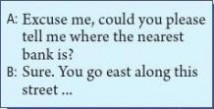
3.
4.
5.

?

????
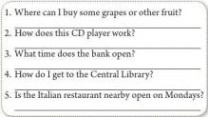

Section1a

What qualities are important for each place? Write the words from the box next to each place below. Write the most important words fi rst.












1bTalk about places in your city using the
words in 1a.1cListen to the conversations and complete the sentences.
1dListen again. Check your answers in 1c.
1eRole-play the
conversations between the clerk and the tourists.










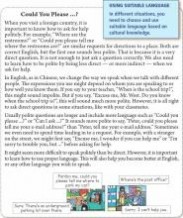
2a
2bWhere do you need to make polite requests? Th ink of some possible situations. Discuss them with your partner.Read the article and match each paragraph with its main idea.
Paragraph 1Paragraph 2Paragraph 3Paragraph 4 Use more words to help you sound more polite.It is important to know how to make requests politely.Good English speakers need to know how to speak politely.Th e choice of language depends on the situation and the relationship between the speakers.






2cLook at the requests and write two more. Describe a suitable situation
for each one. Th

en make the requests more polite.



2dRead the requests below. In the second column, write A if you would
say it to someone you know and B if you would say it to a stranger. In

the last column, write where you think the people are talking.
3aImagine you are going on a short study vacation at a school in an
English-speaking country. What would you like to know before you go?

Write some polite, indirect questions about the following topics.







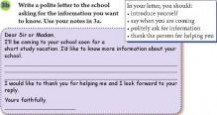

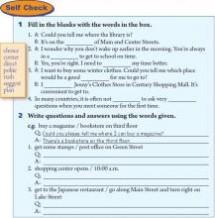


AI used to be afraid of the dark.

1a
Fill in the chart with words to describe people.Language Goal:Talk about what you used to be
like1bListen. Bob is seeing some friends for the fi rst time in four years. What did his friends use to look like?
1. Mario used to be . He used to wear 2. Amy used to be


.
3. Tina used to have and

hair .
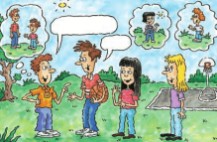
Look at the picture in 1a

and make conversations.

1c


2aListen and check (?) the words you hear. friendly humorous brave outgoing silent quiet
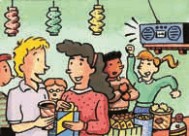
serious active helpful
2b

Listen again and complete the chart about how Paula has changed.



2cMake conversations about
Paula using the information




in 2b.
Role-play the conversation.2d
Th is party is such a great idea!

I agree. It’s been three years since we last
saw our primary school classmates.
Alfred: It’s interesting to see how people have
changed.
Gina: Billy has changed so much! He used to be
so shy and quiet.
Alfred: Yeah, his face always turned red when he talked to girls!Gina: I used to see him reading in the library every day.Alfred: Th at’s because he was a really good student. He studied hard and got
good scores on his exams.
Gina: Did he use to wear glasses?
Alfred: Yes, and he used to be thin, too. But look how big and strong he is now!Gina: He’s so popular now. Look at all the girls around him!Alfred: Gina:
3aSkim the article and identify
the paragraphs in which the following information appears. Number the information [1–3].3bRead the article again and complete the sentences about Candy.1. She used to be shy, but now she’s not shy .2. She used to sing to her shyness, but now she loves singing in front of 3. She didn’t use to in school, but now she gets lots of att ention.4. She used to with friends, but it is almost impossible now.5.

She didn’t use to




about what she says or does, but she is now.
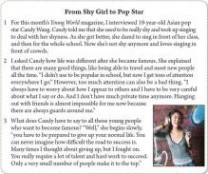
3cSuppose you are the interviewer and your partner is Candy. Ask and



answer questions.







4a
Write sentences about the past using used to.
1. Grace / watch a lot of TV / watch a lot of movies
2. My mom / have curly hair / have straight hair
3. Jerry / read books on European history / read books on African culture
4. Sandy / teach British English / teach American English
4b
Look at the information

and write sentences about Emily.
4c
Which of these things did you use to be afraid of? Which ones are you

still afraid of? Check the boxes and then ask your partner.





Section
1a
Check (?) the things you used to like when you were a child.
B
P.E. class painting pictures music class
ants and other insects
1b
What other things did you use to like to do when you were a child? Write sentences in the box above. Th en discuss them with a partner.Listen and check (?) the sentences you hear.
1. 2.
I didn’t use to like tests. 3. We used to walk to school. 4.
I used to hate P.E. class.
1c
1d

Listen again. What do the girl and the boy say about things in the past and now? Fill in the chart.







1e




Compare yourself with your partner.


2aTell your partner about a time your parents helped you with a problem.






Make notes about what your partner says.e.g.didn’t use to study hard at school — got bad grades — father helped
her to understand that it was important to do well at school
2b



2c

Put these sentences into the correct places in the passage.
2dUse clues from the passage to help you guess the meanings of the words
in the box.infl uence absent boarding school in person
2eComplete the passage with the proper forms of the words and phrases
in the box.be proud of/take pride in no longer/not ... anymore make a decision/decide not like/hatechange/infl uence look aft er/take care ofLi Wen is a good student, son and grandson. However, he used to cause a lot of trouble for his parents. When his parents moved to work in another him. So he was city, they could not be at home to
interested in studying and missed classes. Th en his parents
to send him to a boarding school and he
it. In the end, his teacher advised his parents to talk with their son and this
his life. He realized that his parents would conversation
everything good that he did. Now he is one of the best
students in his class.
2fWhat do you think Li Wen and his parents talked about in their
conversation? Write a conversation and role-play it with your group. Th ink of the following things:
3aTalk with a partner about the changes that have
happened to you. Write notes about how you have changed for these three things.1. appearance2. personality
3. hobbies


3bWhat did you use to be like? Write about how you have changed. Which change is the most important one and why?
How I’ve changed!My life has changed a lot in the last few years. I used to Now I’m The biggest change in my life was This is the most important change because ....


What are the shirts made of?
1b
Listen and match the products
with what they are made of
and where they were made.1c
Practice the conversation in 1a. Th en make conversations using the information in 1b.
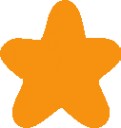








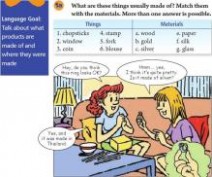

2a

Listen and check what Nick and Marcus mainly talk about.


2bListen again. Write short answers to the questions.1. Where is the art and science fair? 2. Do Nick and Marcus have to pay to go? 3. What is the model plane made of? 4. What is the painting made from? 5. What is the fair about?
2cMake conversations using the



information in 2a and 2b.2dRole-play the conversation.
Pam: China is famous for tea, right?
Liu Jun: Yes, both in the past and now.
Pam: Where is tea produced in China?
Liu Jun: Well, in many di? erent areas. For
example, Anxi and Hangzhou are widely known for their tea.
Pam: How is it grown?
Liu Jun: Well, it’s planted on the sides of mountains. When the leaves are ready,

they are picked by hand and then are sent for processing.

Pam: What happens next?
Liu Jun: Th e tea is packed and sent to many di? erent countries and places
around China.
Pam: It seems that Chinese tea is drunk all over the world.Liu Jun: Yes, people say that tea is good for both health and business!



3bRead the passage and answer the questions.
1. Where did Kang Jian go to visit his aunt and uncle?2. What did he discover in the toy stores?3. Why did he have to visit many stores before buying a pair of basketball shoes?4. What did he realize aft er his shopping experiences?5. Why do you think so many products in America are made in China? How do you feel about this?
3c1. No matt those: those: 2. in China. it: 3. I wanted to buy a toy car for my cousin, but even though most of the toys they:








4aComplete the sentences with the correct forms of the verbs in brackets.
1. Children under 18 their parents.2. We 3. A: What language B: Most people speak German, but many can speak English, too.4. Most of the earth’s surface (cover) by water.5. Th e classroom needs to (clean) every day.
4bRewrite the sentences using the passive voice.
1. Farmers plant the tea on the sides of mountains. 2. In China, farmers grow the best rice in the northeast. 3. Careless driving causes many tra? c accidents. 4. Th e postman brings lett ers and postcards to people’s homes. 5. Our family does not use this silver plate very oft en.
4c

Ask fi

ve classmates about something they are wearing or have in their
schoolbags. Th e list of words below may help you.

Section1aDo you know how to fl y a kite? What are kites made







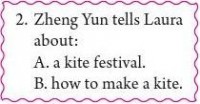

of? Write down some materials used in making kites.

B
1bListen to a conversation between Laura and Zheng Yun and circle the correct answers.
Listen and write L for Laura or Z for Zheng Yun.
1c
1dListen again. Fill in the blanks with what you hear.
1. Weifang is a city in Shandong. It is famous for 2. Th e international kite festival is held in 3. Th e competitors at the festival are from 4. Th ere are competitions for the best kites, the kites.5. Some of the kites Zheng Yun saw were made of painted with colorful . kites or the 1eRole-play a conversation between Laura and Zheng Yun using the information in 1b–1d.







2a
2bDo you do any kind of folk or traditional art, like drawing or painting? Tell your partner about it.Read the passage and complete the chart below.
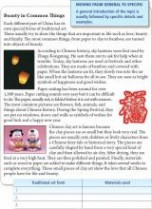





2cRead the passage again and answer the questions.
1. What do traditional Chinese art forms try to show?
2. What were sky lanterns used for before and what are they used for now?
3. What kinds of pictures are usually found on paper cutt ings?
4. How do people use paper cutt ings during the Spring Festival?
5. What are the steps for making clay art pieces?
6. Which art form do you think is the most interesting? Why?
2dComplete the sentences using the correct forms of the phrases in the
box.
such as turn ... into send out cover with rise into
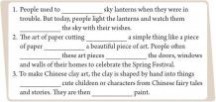
put ... on
2eDiscuss the questions in your group.
1. Which art form do you think is the easiest? Which is the most di? cult? Why?
2. Which art form would you like to learn? Why?
3aWhat are some special things that your hometown or city is famous
for? Th ese can be food, artwork or any other products. Discuss with a

partner and take notes.





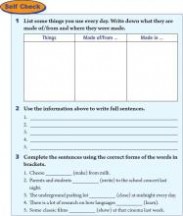
3bWrite a paragraph about the product. Use your notes in 3a.
Try to use the following language:

AWhen was it invented?

1a
Language Goal:Talk about the history of inventions

Look at the things below. In what order do you

think they were invented? Discuss them with your

group. Th

en number them [1–4] (1 = fi






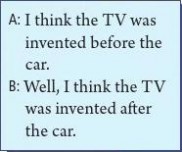
rst, 4 = last).

1bListen and match the inventions with the years.
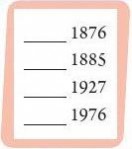
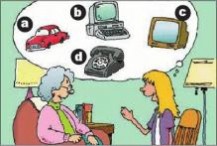
1c

Student B, cover the dates. Student A, ask Student B when the things in the picture in
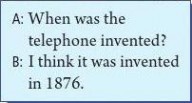
1b were invented. Th en change roles and practice again.

2a2bListen again. Match the inventions with their inventors and uses.
2c
2dMake conversations using the information in 2b.Role-play the conversation.









Paul: Hey Roy, the subject for my school project is “Small inventions that changed the world.” Can you help me think of an invention?Roy: My pleasure! Let me think ... hmm ... I know! Th e zipper!Paul: Th e zipper? Is it really such a great invention?
Roy: Th ink about how oft en it’s used in our daily lives. You can see zippers on dresses, trousers, shoes, bags ... almost everywhere!Paul: Well, you do seem to have a point ...
Roy: Of course! I thought about it because I saw a website last week. The pioneers of di? erent inventions were listed there. For example, it mentioned that the zipper was invented by Whitcomb Judson in 1893. But at that time, it wasn’t used widely.Paul: Really? So when did it become popular?
Roy: Around 1917.
3aRead the passage
quickly and match each paragraph with




its main idea.





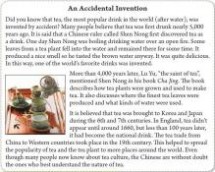
3bRead the passage again ons.and answer the questions.3cComplete the sentences with the correct forms of the verbs in the box.
1. One of the world’s favorite drinks was 2. Tea was fi rst by Shen Nong 5,000 years ago.3. A nice smell was 4. Tea was to Korea and Japan during the 6th and 7th centuries.5. Tea is now erent countries.





4aRewrite the sentences using the passive voice.
1. Th ey sold the fridge at a low price. 2. Somebody stole my camera from my hotel room. 3. Where did you take these photos? 4. Our parents advised us not to go out alone. 5. Di? erent writers translated the book into di? erent languages.
4bComplete the sentences with the correct forms of the verbs in the box.
lockringbreakbring1. You 2. Th 3. 4. Th 5. Th e cookies Th en they eat ask invite told come
4cDecide whether active or passive forms should be used in these sentences.
Write the correct forms in the blanks.
Th e telephone (born) in 1847. Alexander telephone with Th omas Watson. In 1875, Alexander send musical notes through an instrument similar to a telephone. Finally, the telephone e fi rst sentence that (say) on the telephone by Alexander was “Mr. Watson, come here; I want to see you.” Today the telephone (use) around the world.

Section
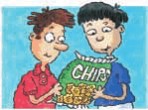


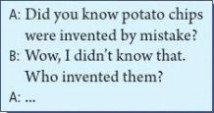




1a
Th e words in the box describe how food can taste. Write them under the correct pictures. Some pictures have more than one word.1bWrite the name of a di? erent food aft er each word.
salty sour sweet crispy
1cListen and circle T for true or F for false.
T F
T F
T
T
T
T FFFF1. Potato chips were invented by mistake. 2. Th ey were invented in 1863. 3. Th e customer thought the potatoes were not thin enough. 4. Th e customer said they were not salty enough. 5. George wanted to make the customer happy. 6. Th e customer was happy in the end.
1d

Listen again. Complete the sentences.


1eMake a conversation about the
invention of potato chips. Use the information in 1c and 1d.




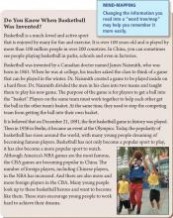
2aList some popular sports and
the countries where each sport is the most popular.2bSkim the passage. Which paragraphs are about the popularity of









2cComplete the mind map with the information in the passage. What else

2dWithout looking at the passage, use the mind map to summarize what you and your partner remember about the development of basketball.

Use these questions to help you.1.

Who invented basketball and why?2. What is the purpose of the game?
3. When was the fi rst basketball game played in history?
4. Why were the Berlin Olympics important for basketball?
5. What are the professional basketball groups in America and China?
6. What do young people think of the famous basketball players?
Would you like to be a famous basketball player? Make a list of good and di?

cult things about being a famous basketball player.2e


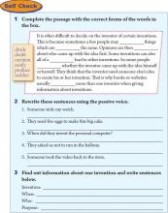
3bImagine you are a businessperson. Write a description of your new
invention. Try to sell the invention to the class.

Teenagers should be allowed 1. Teenagers should not be allowed to smoke. 2. Sixteen-year-olds should be allowed to drive. 3. Students must not be allowed to have part-time jobs. 4. Sixteen-year-olds should be allowed to get their ears pierced. 5. Teenagers should be allowed to choose their own clothes. 1bA A A A A DDDDDListen and circle T for true or F for false.
A: I don’t think sixteen-year-olds
1cLook at the statements in 1a and make conversations.should be allowed to drive.
B: I agree. Th ey aren’t serious enough.



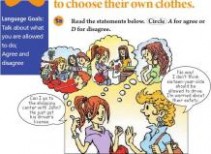
2bListen again. What are Kathy’s and Molly’s reasons? Number their reasons in the correct order.
Make a list of things teenagers
should and should not be allowed to do. Discuss your list with your partner.
Role-play the conversation.2c2d
Sandy: I’m really excited about seeing the famous paintings by Picasso.Wu Lan: Me, too! I’m glad Ms. Guo chose the art museum for our school trip this year.Sandy: I’m going to bring my new camera to take lots of photos!Wu Lan: Oh, no. Ms. Guo says we must not take photos. It’s not allowed in the museum.Sandy: Th at’s too bad! Do you think we might be allowed to take photos if we don’t use a bright light?Wu Lan: Hmm ... I think they just want to protect the paintings. So if you don’t use a light, then it might be OK.Sandy: Yeah. I think we should be allowed to do that. I’ll bring my camera anyway.
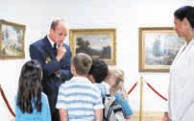








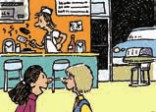

3aRead the poem aloud and discuss what the title means with your partner.
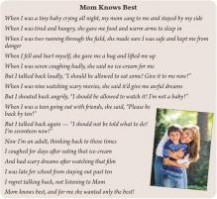
3bRead the poem again and answer the questions.
1. What did the mom do when the writer was a baby and a small child?2. Why do you think the writer talked back to his mom when he was seven and nine years old?3. How did the writer feel when his mom said “Please be back by ten” when he was a teenager?4. After reading the whole poem, how do you think the writer feels about his mom?3cThink about a time you did something even though your mom or dad
told you not to do it. Share your story with your partner.
How old were you?
●?What happened?●?Did you talk back to your mom or dad?
●?How do you feel about it now?●?



4aRewrite the sentences according to the example.
1. You must clean your bedroom every day. Your bedroom .2. Teenagers .3. Do you think Lucy ?4. Do you think teenagers ?5. Teenagers .4b



Fill in the blanks with the correct forms of the words in brackets.




4cYou and your friend are starting an
English club. Make a list of rules about what should and should not be allowed.




Section1a
BRead the questions. How oft en do you do these things? Write A for always, U for usually, S for sometimes and N for never.
1bTalk about your answers in 1a.1c
1d

Listen and circle the things in 1a that Peter talks about.

Listen again. Match these sentence parts.






1eRead the statements. Th en discuss them with your group.
1. Peter should be allowed to take the test later.2. Students need strict rules.3. Parents should not be too strict with teenagers.




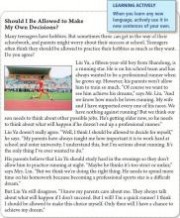
2aIn your group, discuss
the questions.Are you allowed to make your own decisions at home? What kinds of decisions?
2bFirst, look at the title of the passage. Answer “yes” or “no”. Find out
how many in your group agree with you. Th en read the passage. Does your answer change?




2cRead the passage again and answer the questions.
1. What is Liu Yu’s hobby?2. What does Liu Yu want to be when he grows up?3. Why do Liu Yu’s parents not allow Liu Yu to practice his hobby at night?4. Do you think Liu Yu should be allowed to practice his hobby as much as he wants? Why or why not?
2dLook in the passage for the words in bold. Th en use them actively to
complete sentences of your own.

2eDiscuss the questions with a partner. Use the information in the
passage to support your opinion.
3aWith a partner, discuss at least one rule at home that you do not agree




with. Why do you not agree with it? Make some notes in the chart.


3bWrite a note to your parents. In your note, explain which rule(s) you
do not agree with at home and why. Tell them how you think the rule


should be changed.


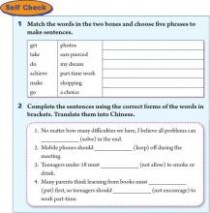

A
It must belong to Carla.
1a
Language Goal:Make inferences

Look at the picture. Write the things you see in the

correct columns in the chart.
Whosevolleyballis this?
It must be Carla’s.She loves volleyball.
1b
Listen and match

each person with

a thing and a reason.

1c






Practice the conversation in the picture above. Th en make
conversations using the information in 1b.

2a

Bob and Anna found a schoolbag at the park. Listen and write down the things in the schoolbag.

2b

Listen again. Fill in the blanks.
2cMake conversations using the




information in 2a and 2b.
Role-play the conversation.2d
Linda: Mom, I’m really worried.
Mom: Why? What’s wrong?
Linda: I can’t fi nd my schoolbag.
Mom: Well, where did you last put it?
Linda: I can’t remember! I att ended a concert yesterday so it might still be in
the music hall.
Mom: Do you have anything valuable in your schoolbag?Linda: No, just my books, my pink hair band and some tennis balls.Mom: So it can’t be stolen.
Linda: Oh, wait! I went to a picnic aft er the concert. I remember I had my
schoolbag with me at the picnic.
Mom: So could it still be at the park?
Linda: Yes. I left early, before the rest of my friends. I think somebody must have picked it up. I’ll call them now to check if anybody has it.




3aRead the article and decide
which might be the best title.3bRead the article again and fi nd words to match the meanings.
3cRead the article carefully and write what people think about the strange






noises.
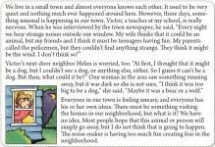



4aChoose the best way to complete each sentence using the words in brackets.
1. A: Where’s Jean? B: I’m not sure. She (is / might be / must be) in the laboratory.2. A: Everyone is going to the pool aft er school.
B: Really? It (must be / can’t be / could be) hot outdoors.3. A: Th at’s the phone. B: Hmm. I wonder who it (must be / could be / should be).4. A: I wonder if these are Jim’s glasses. B: Th ey glasses.5. A: I hear water running in the bathroom. B: It (could be / must be / can’t be) Carla. She was thinking of taking a shower.
Complete these responses.
1. A: Many people are wearing coats. B: Th e weather must be 2. A: Sally has been coughing a lot. B: She might be .3. A: Th ere’s very loud music coming from the apartment next door. B: Th e neighbors must be .4. A: Whenever I try to read this book, I feel sleepy. B: It can’t



.4b4cLook at this picture of a room. How much can you tell about the person




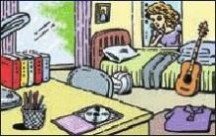
your ideas with a partner.
Section1a

Look at the pictures. Th en use the words in the box to write a sentence about each picture.

B

1bListen and number the pictures [1–3] in 1a. Th

en write two or three sentences to fi nish the story.


1c

Listen again. Complete the sentences.





1dRole-play a conversation between the man and the woman.


2aMatch each linking word or phrase with its purpose.
2b

or phrases. Do you think you have made correct matches in 2a?



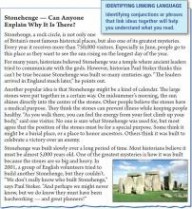





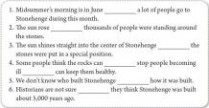

2c

Read the article again and complete the chart.
2dComplete the sentences using the words from the chart in 2a on page 62.
2eCan you think of any other mysteries, either in China or another part
of the world, that are similar to Stonehenge? What do you know about these mysteries? What is mysterious about them? Discuss them with your group.
Read through the article in 3a on page 59 again. What do you think the noise could be? List all your ideas. See who in your group can come up



with the most imaginative explanation.
3a


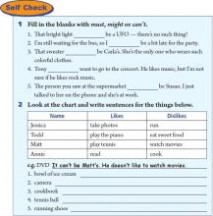
3bLook at this newspaper headline and fi nish the article about the strange
happenings.
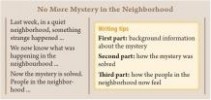

AI like music that I can dance to.1aLanguage Goal:Express preferences

What kind of music do you like? Look at the picture and circle the sentences you agree with. Th en write your own sentence.
Your sentence: I like music that .1bListen and check (?) the kinds of music Tony and Bett y like.

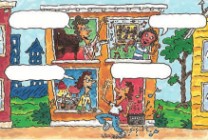
A:

What kind of music do you like?

B: I like music that I can sing along with. 1cMake conversations about the
music, movies or books that you like.What about you?
A: I prefer music that has great lyrics.

2a
Listen and circle T for true and F for false.
1. Carmen likes musicians who play di? erent kinds of music.
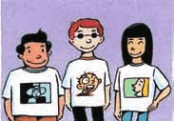
2. Xu Fei likes the Australian singer Dan Dervish.
3. Carmen likes electronic music that’s loud. 4. Xu Fei prefers groups that play quiet and slow songs.
T T

T T
F F

F F
2b

Listen again. Complete the sentences.
2c
Make conversations using the




information in 2a and 2b.Role-play the conversation.
Jill: Scott: Jill: Scott:
2d
What are you doing this weekend, Scott ?
Not much. I suppose I’ll just listen to the new CD I bought.Oh, what CD is this?Well, it’s all music. Th ere’s no singing. I like smooth music that can relax my mind aft er a long week at work.
Jill: Sounds nice. Well, if you have spare time, do you want to watch a movie
with me?
Scott: Hmm, depends which movie. I only like
movies that are funny. I just want to laugh and not think too much. You know what I mean?
Jill: Oh, in that case, I’ll ask someone who likes
serious movies.
Scott: What’s the movie about?
Jill: It’s about World War II and the director
is famous. I prefer movies that give me
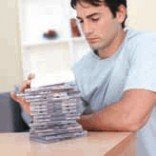

something to think about.


3a erent kinds of movies and
circle the movie names.
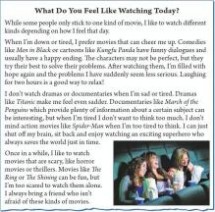
3bRead the passage again and answer the questions.
1. How does the writer describe each kind of movie?2. What kinds of movies does the writer prefer to watch when he or she is sad or tired?3. How does the writer feel aft er watching these movies?4. Does the writer like horror movies? When does he or she watch them?3c

What kinds of movies do you like to watch? Complete the chart.









4aChoose words from the di? erent columns to make sentences.
1. 2. 3. 4.
4bRead Jennifer’s CD review. Th en complete the sentences using that,

which

or who.



4cMake conversations about things you like and dislike.


Section1aFill in the chart. Write names of your favorite band, book and movie.

B1b

Listen and write the three things that Michael likes in the fi rst column of the chart.
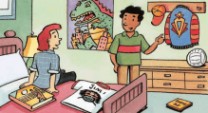


1cListen again. Write why Michael likes each thing in the second column of the chart in 1b.Discuss your favorite things in 1a with your group. Say why you like each thing.



1d


2aHow many Chinese musical instruments do you know? Do you know
some famous music pieces that are played on these instruments? Make a list with your partner.
Read the passage and answer the questions.
1. Which musician does the reading passage mainly talk about?2. What is the name of his most famous piece of music?3.

How does the writer feel about this piece of music?
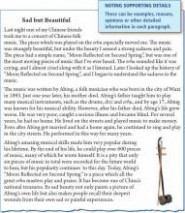
2b
2cRead the passage again and use suitable words to complete the main idea
of each paragraph. Th



en list the supporting details in each paragraph.


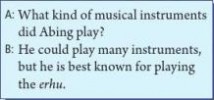


2dCircle that or who and fi ll in the blanks with the words in the box.AbAbing played music (that/who) could touch the hearts of people. When we listen to his music, we can we both the beauty and the sadness in it. It makes us think about the (that/who) we have experienced in the past. For this reason, many we him as the musician (that/who) has greatly infl uenced erhu music. So it is really a 2eStudent A is a foreign visitor who
is interested in Abing and his music. Student B is a Chinese student who knows about Abing. Use the information in the passage


to make a conversation.3aWhat kind of music or movies do you like best? What is your favorite

song/movie? Make notes in the chart below.


3bUse your notes to write an article for a newspaper or magazine to
tell people about your favorite kind of music/movie and your favorite song/movie.

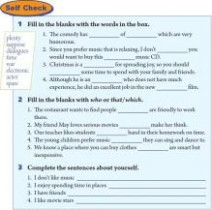

AYou’re supposed to shake hands.
1aLanguage Goals:Talk about customs and what you are supposed to do

What do people do when they meet for the fi rst time? Match the countries with the customs.


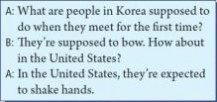



1b1cListen and check your answers in 1a.


Make conversations about what people in di? erent countries do when they meet for the fi rst time. Talk about the countries in 1a or other
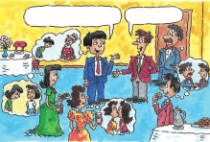
countries.

2aMaria is an exchange student. Last night she had dinner at an American friend’s house. Listen and check (?

) the mistakes Maria made.

2bListen again. Fill in the blanks.1. Maria was supposed to arrived at 7:00, but she . 2. In Maria’s country, when you’re invited for 7:00, you’re expected to . 3. When Maria met Paul’s mom, she was supposed to . 4. Maria should ask what she is supposed to is invited to a party next time.
2cRole-play a conversation between Maria and Dan. Use the information in






2a and 2b.
2dRole-play the conversation.
Katie: How was the welcome party for foreign students last night?John: Great! I made some new friends. But a funny thing happened.Katie: What?
John: I met a Japanese boy called Sato, and as soon as I held out my hand, he bowed.Katie: Th at’s how people in Japan are expected to greet each other. It’s impolite if you don’t bow.John: I didn’t know that. So I just stood there with my hand out. Finally, I returned the bow.Katie: I remember when I fi rst met Marie last year, I did the same thing. I held out my hand and to my surprise, she kissed me on both sides of my face!John: I wouldn’t mind that!
Katie: Very funny. Later I found out French people are supposed to kiss when they

see each other.
3a
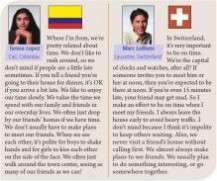
Read the following opinions of a Colombian and a Swiss student. In
which country is it OK to be 15 minutes late for dinner?


3b





Read the passage again and complete the chart.
3cRole-play a conversation. Student A is Teresa and Student B is Marc.
Teresa is late and Marc is mad.



4aComplete the sentences with the phrases in the box.
1. When you go abroad, it 2. Aft er class, students clean the chalk o? the blackboard.3. If you visit the northern coast of Norway during the winter season, it pack warm clothes.4. If there are people in the meeting room, you knock before entering.5. In many eastern European countries, you o?



your gloves before shaking hands.be supposed tobe expected tobe important to
4b


Fill in the blanks with the correct forms of the words in brackets.

4cMake a list of advice for someone coming to your country as an exchange
student for the fi rst time. Work with your group to give advice about: ? time ? meeting people ? table manners ? what to do for someone’s birthday ? visiting someone’s home ? giving gift s
Section






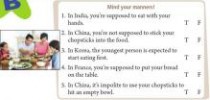
1a
How much do you know about table manners around the world? Take the following quiz. Circle T for true or F for false aft er each sentence.
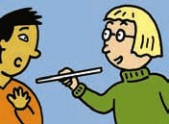



1bTomorrow Steve is going to China as an exchange student. His Chinese friend Yang Ming is telling him about the table manners in China. Listen and number the pictures in the order Yang Ming talks about them.1cListen again. Match these sentence parts.


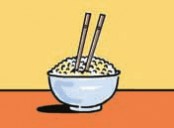
1dTalk about other table manners in your country.


2aWhat do you know about customs in foreign countries? What do you think is the biggest challenge when visiting a foreign country?
e.g. My cousin went to America, and she said that learning basic table manners was her biggest challenge. She never knew what she was supposed to do at the dinner table.
2bRead the lett er and answer the questions.
1. Why is Wang Kun in France?2. Does she enjoy staying with her host family? How do you know?3. How does she feel about making mistakes when she speaks French?4.

What is the biggest challenge she is facing?
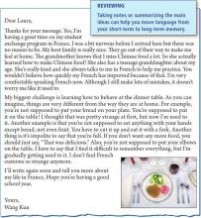



2cRead the sentences and replace the underlined words with the phrases
in the box.1. Making mistakes in French used

went out of their waybe comfortable (doing)2. gradually gott en used to being(something) worry (someone)3. Th help Wang Kun.
4.


2d

Review the passage and make notes about French customs in the chart.
2eCompare the table manners in France and China in your group. How
are they the same or di? erent? Make a list.
e.g. In France, people put their bread on the table. But in China, we always put our food on a plate or in a bowl and never on the table.
3aAn exchange student from a foreign country is coming to stay in your
home. Take notes on what he/she is supposed to do and not supposed

to do.


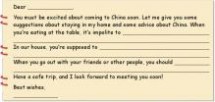
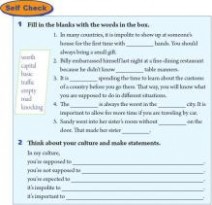
3bWrite a lett er to the exchange student to give him/her advice and
suggestions on how to behave properly.

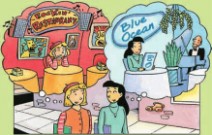
ASad movies make me cry.

1a
Language Goals:
Talk about how
things affect youLook at the two restaurants below. Which would you like to go to? Why?
1b

Listen and fi ll in the blanks. Th en match the restaurants with the statements.
1c




Role-play a coversation between Amy and Tina.

2aListen and number the pictures [1–4] in the order you hear them.








2bListen again. Complete the statements.1. Waiting for Amy drove Tina 2. Amy said loud music made her 3. Loud music makes John .
4. Th e movie was so sad that it made Tina
5. Sad movies don’t make John cry. Th ey just make him .2cLook at 2a and 2b. Role-play a conversation between Tina and John.





Use the example to begin your conversation.
2dRole-play the conversation.
Nancy: Hey Bert, I think I’ve made Alice mad
and I’m not sure what to do about it.
Bert: What happened?
Nancy: You know Julie is Alice’s best friend,
right?
Bert: Uh-huh.
Nancy: Well, the more I got to know Julie, the
more I’ve realized that we have a lot in common. So we’ve been spending more time together lately.
Bert: But what’s wrong with that?
Nancy: Umm ... it makes Alice unhappy because she thinks Julie is now bett er
friends with me than with her.
Bert: I see. Mmm ... why don’t you ask Alice to join you each time you do
something with Julie? Th en she won’t feel left out.
Nancy: Oh, good idea! Th

at can make our friendship stronger.


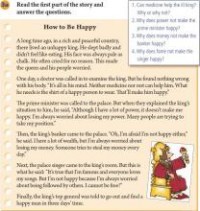



3bFind phrases from the story with similar meanings as these phrases.
3cRole-play the story with your group.





4aTh ink of appropriate words for the blanks. Th en compare your choices
with your partner.
Dear Diary, June 29thI thought today was going to be really bad. To start with, it was cloudy and grey, and cloudy days make me our exam results back, but I didn’t answer the exam questions very well last week. Th at made me . I walked to school with my best friend Holly. She didn’t say much to me. Th at made me a litt le . In class, the teacher handed back our exams. Th at made me . But I found out that I didn’t do too badly. Th at made me very en things got even bett er. Holly bought me my favorite lemon juice and turkey sandwich for lunch, and we talked a lot. Th at made me


How do these things make you feel? Write about your feelings.e.g. When I read about endangered animals, it makes me feel worried about the future.4b1. Pollution 2. Heavy tra? c 3. People who cancel a meeting at the last minute 4. Loud music
4cComplete the survey. Th

en ask two other students.







Section1a

BLook at the possible endings to the story about the unhappy king. Do you think any of these is the right one? If so, which one?
1bWhat are some other possible endings to the story? Discuss your ideas

with your partner and write them down.
1cListen and check (?) the things that happened in the rest of the story. Th e general searched for three days and found a happy person.
Th e general could not fi nd a happy person.
Th e general saw a poor man on the street.
Th e poor man was a happy man.
Th e poor man gave the general a shirt.
1dListen again. Answer the questions.1. Why was it di? cult for the general to fi nd a happy person?
2. What was the poor man doing on the street?
3. What made the poor man so happy even though he had no power, money or fame?
4. Do you think the general will return to the king with the poor man’s shirt? Why or why not?
1eDo you agree with the poor man’s thoughts about happiness? Discuss
your ideas with your group. Th en role-play the rest of the story.


2a
2b


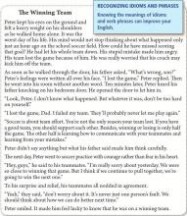
Have you ever made a mistake? How did it make you feel? Talk to your partner about what happened.Skim the story and number the events in the correct order.






2cRead the story again and answer the questions.

2dFind idioms or phrases from the story to replace the underlined parts of these sentences.
1. 2. 3. 4. 5. Th 2e





Role-play a conversation between Peter and his father.
3aTh ink of some experiences that made you feel very happy or sad. Tell your partner about them. Here are some ideas.
winning/losing a competition
●?gett ing good/bad grades on an exam
●?performing something well/badly in front of a big group of people●?gett ing into a fi ght with your best friend
●?your fi rst trip outside your hometown●?


3b
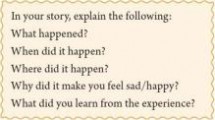
Write a story similar to the one in 2b using your notes in 3a.
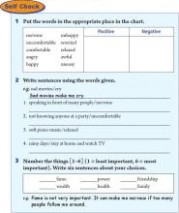




ALife is full of the unexpected.

1aLanguage Goal:Narrate past eventsLook at the pictures.
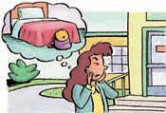
What happened to the girl?

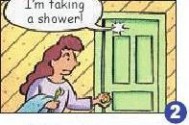
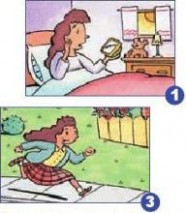
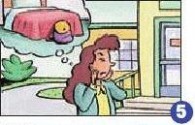
1bListen to Tina talking about her morning. Complete the sentences.
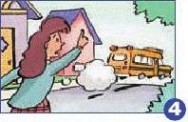
1. By the time I got up, my brother in the shower.
2. By the time I got outside, the bus
3. When I got to school, I realized I backpack at home. already already .1cTake turns being Tina. Look at

the pictures above and talk about what happened this morning.
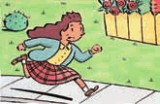
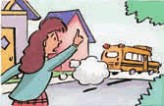
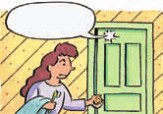

2aListen to Tina continue her story. Number the pictures [1–4] in the correct order.2bFill in the blanks with the correct forms of the verbs in brackets. Th en listen again and check (?) your answers.1. When I in the backpack.
2. By the time I 3. By the time I teaching already.2c
2dMake up an ending for the story

and share it with your partner.Role-play the conversation.Matt: Why were you late for class today, Kevin?Kevin: My alarm clock didn’t go o? ! I kept sleeping, and
when I woke up it was already 8:00 a.m.!Matt: Oh, no!
Kevin: So I just quickly put on some clothes and rushed out
the door.
Matt: You didn’t eat breakfast?
Kevin: No, I didn’t even brush my teeth or wash my face! But
before I got to the bus stop, the bus had already left .Matt: Th en how did you get here?
Kevin: Luckily, Carl’s dad saw me on the street and gave me a lift in his car.Matt: Well, at least by the time you got to school, the class had only started for
fi
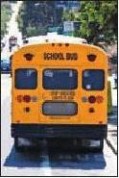
ve minutes.


3a


Read the passage and answer the questions.



3bFind words from the passage with opposite meanings to the words
below. Th en write a sentence with each word.
1. west: 2. dead: 3. below: 4. lost: 5. empty:
Retell one of the events to your partner. Use these words and phrases to help you.
3c
e.g. On September 11, 2001, I arrived at my ...





4aMake sentences using by the time or before.
e.g. Tim went into the bathroom. Tina got up. 1. Th e co? ee became cold. I put cream in the co? ee. 2. Th e teacher collected the math homework. I got to school. 3. I completed the work for my boss. Th e workday ended. 4. Th e movie started. I arrived at the cinema. 5. My mother fi nished making the apple pie. I got home from my language course.
4bFill in the blanks with the correct forms of the words in the box.
1. By the time I arrived at the party, everyone else When he put the noodles into a bowl, he realized he 2. W to add the green beans.By the time my mother came back from the market, I 3. B already out the door to go for my piano lesson.4. Before she got to the airport, she B about the earthquake.W the e-mail invitation, she remembered she had 5. When she forgott en to invite Dale.6. Before she got a chance to say goodbye, he B the building.4cWrite two true statements and one false statement about your day
yesterday. Your classmates then guess the false statement.1. By the time I left for school in the morning, 2. By the end of the school day, 3. By dinner time, I

Section
1a
Put these words in the correct columns in the chart.(Some words can go in more than one column.)




B
1b
Tell your partner about something that happened to you recently. Use two or more words in 1a.
Last Friday night, my friendinvited me to his birthday party.On Saturday, I got up late and ...
1c
Dave, Nick and Joe are talking about April Fool’s Day. Listen and write each person’s name under the correct picture.
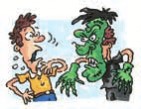



1d




Listen again. Who says each of the phrases below? Write D for Dave, N for Nick and J for Joe.
1. 2. 3.
a costume party my alarm went o? stayed up all night 4. 5. 6. was tired
really embarrassed
the other kids showed up
1e
Tell the April Fool’s Day stories in your group. Use the information in



1c and 1d.


2a
2bHave you ever played jokes on others, especially on April Fool’s Day? Have you ever been fooled by others? Tell your story to your partner.



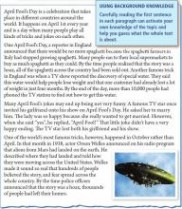
Read the passage quickly. Th en match each paragraph with the main
idea.



2c

Read the passage again and answer the questions.
2dFill in the blanks with the correct forms of the verbs in brackets.
1. Aft er the spaghett i story (appear) in the news, everyone nd out) the story was not true, all the spaghett 3. By the time the day (lose) his girlfriend.5. By the time police o? cers was a hoax, many people 2eTell your funny story from 2a to the class. Th





e class will vote for:

3aCan you remember a lucky or an unlucky day? What happened? Make some notes about what you remember.


3bWrite a story about your lucky or unlucky day and tell your story to a









partner or the class.
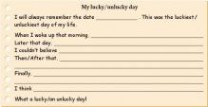
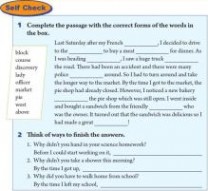

AWe’re trying to save the earth!






1a
Language Goal:
Talk about
pollution and
environmental protection

Here are some words related to di? erent kinds of pollution. Write them in the box below. Th

en add more words.cars ships mobile phonesrubbish factories planessmokingloud music

litt

ering building houses
1bListen and complete the sentences.


1cRole-play the conversation. Th

en make your own conversations about the kinds of pollution in 1a.

2aListen to the interview. Circle the kinds of pollution that Jason and Susan talk about.A. waste pollution B. air pollution C. noise pollution D. water pollution2bListen again and complete the sentences.
1. Th e air is badly polluted because there are on the road these days.2. Factories that burn coal also the air with a lot of black smoke.

3.

Th


ere is also too much rubbish and waste. People

things away every day.4. People are also in public places like parks. Th is turns beautiful parks into ugly places.
2cUse the information in 2a and 2b to role-play conversations between Jason and Susan.
2dRole-play the conversation.
Interviewer: Jason and Susan, what are your ideas for solving these problems?Jason: Well, to cut down air pollution, we should take the bus or subway
instead of driving.
Susan: Yeah, or ride a bike. Other advantages of bike riding are that it’s
good for health and it doesn’t cost anything!
Interviewer: Great ideas! What about waste pollution?
Susan: Mmm, I think simple things like bringing a bag to go shopping can help. I started doing that a year ago.

Jason: Me, too. Also, I never take wooden
chopsticks or plastic forks when I buy takeaway food. I use the ones at home.
Susan: And remember to throw rubbish in the
cans and keep public places clean and beautiful for everyone.
Interviewer: So together, our actions can make a
di? erence and lead to a bett er future!
3aDiscuss the questions with a partner.1. Have you ever seen a shark?2. What do you know about sharks?3b



Read the passage. Complete the fact sheet below.




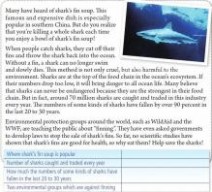
3cRead the passage and fi ll in the blanks with the words in the box.
1. Many people do not realize they are killing a whole shark they enjoy a bowl of shark’s fi n soup.theSharks are at the top of the food chain, 2. Sha if their numbers drop, the ocean’s ecosystem will be in danger.droMany think that sharks are too strong to be endangered, 3. Maare wrong.are 4. there are no scientifi c studies to support this, a lot of people believe that shark’s fi ns are good for health.peoSharks may disappear one day 5. Sha we do not do something to stop the sale of shark’s fi ns.

soalthoughifbutwhen


4aFill in the blanks with the correct forms of the verbs in brackets.
you ever (take) part in an environmental project?
Ken: Yes, I have. I (help) with a Clean-Up Day last year. It was (consider) the biggest clean-up project this city (have).
Interviewer: How many people Ken: I (think) more than 1,000 people (come) to help out.Interviewer: Th at’s fantastic! I guess everyone in this city is (try) to improve
the environment.
Ken: Yes, everyone should (play) a part in keeping the city clean.4bInterviewer: Fill in the blanks with the appropriate modal verbs from the box.
When it comes to saving the earth, people things
begins with small things. For example, you
also use by turning o? the lights when you leave a room. You
paper or reusable bags instead of plastic bags. In some stores, you now
pay for plastic bags. I think this is a great idea. And instead ride your bike or walk. If of driving to school or work, you
take the bus. All these small things it’s far, you up and become big things that
We cannot a? ord to wait any longer before taking action!4cIn your group, make a list of things that people can do to help the
environment and present them. Th e class can agree







or disagree with you.




Section1a
Saving endangered animals is one thing we can do

for our world. What else can we do to help save the

planet? Rank these items from the easiest (1) to the

most di?

cult (5).

stop riding in cars
recycle books and paper
turn o? the lights when you leave a room
turn o? the shower while you are washing your hair
don’t use paper napkins
1bCompare your answers in 1a with a partner.





1c
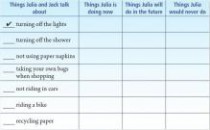
Listen and check (?) the things that Julia and Jack talk about.1d


1eListen again. Check (?) the things that Julia is doing now, the things she will do in the future and the things she would never do.

Make a conversation using the information in 1c. Say what is true for you.
2a
2bLook at the title and the pictures in 2b. Can you guess what the passage is about?Read the passage and complete the chart below.
2cFill in the blanks with the correct forms of the phrases in the box.
2dthe di? erences?
2eMake a list of things that need to be done to save the environment.
Which things can be done by regular people every day? Which things have to be done by governments and organizations? Discuss these with your group.
Th ink about the environment in your town or city.
Which parts of the town or city have a nice environment and why?
Which parts may be less nice and need to be improved? Why?
3a
3b
Write a lett er to the city mayor about the problems and your suggestions.
In your lett er, describe the environmental problems in your town or city.Also, give suggestions or possible ways to solve the problems.
AI remember meeting all of you
in Grade 7.
1aLanguage Goals:
Share past
memories and
experiences;
Look ahead to the future
Check (?) the things you remember doing at junior high school. Add more to the list.At junior high school, I remember: winning a prize being a volunteer once doing a school survey a friend helping me with a problem
1bListen and match the memory with the person. Mary Frank Sarah Peter a. used to be scared of a teacher with high standardsb. remembers losing a schoolbagc. remembers meeting this group of friendsd. has enjoyed every year of junior high school1cList some memories and experiences from junior high school. Share your lists with your partner.
MemoriesExperiencesI remember ...
scoring two goals in a row during a soccer competitionI have ...learned to play the keyboard in music class
2aListen to the conversation. Check (?) the facts you hear.
2b
Listen again. Match each question with the name of the person.
2cRole-play a conversation
in your group using the information in 2a and 2b.
Role-play the conversation.2d
Judy: Which teachers will you miss the most aft er junior high school, Clara?Clara: Ms. Lee and Mr. Brown.
Judy: I know that Ms. Lee was always patient with you in math class. She
helped you to work out the answers yourself no matt er how di? cult they were.
Clara: Yes, and Mr. Brown guided me to do a lot bett er in science. He always
took the time to explain things to me clearly whenever I couldn’t understand anything. Who will you miss?
Judy: Ms. Gri? n. She encouraged me in English
class. She always told me, “You can do it!” Because of her, I put in more e? ort and my exam scores doubled.
Clara:
Shall we get each of them a card and gift to
say thank you?
Judy: Good idea. Let’s go shopping tomorrow!
3aSkim the passage and answer the questions.
1. What kind of writing is this?2. What is the main subject of this writing?3. Who do you think the writer is?
3b
Read the poem. Write the words that rhyme with the words below.
3c
Have you experienced any of the following things? How did you feel?
How does the writer feel about them?1. trying to be on time for morning readings2. running to the dining hall when the lunch bell rings
3. training for sports day4. starting the fi rst day in Grade 7
5. slowly making some new friends
6. helping classmates with homework
7. preparing for art festivals
8. going to New Year’s parties
9. learning English
4aNumber the sentences to make a paragraph. When I get to senior high, I will join the school swimming team.
My time in junior high school has been enjoyable. In Grade 8, I studied harder but I still got poor grades in English. I had problems with pronunciation and reading texts. So the next year, I worked much harder and got bett er grades. Next year, I will be in senior high school. I can’t believe how fast the time went by! Th is year, with Mr. Trent’s help, my English level has been improving and I hope to get good grades at the end of the year. In the fi rst year, I didn’t work very hard in class, but I joined many di? erent school clubs and had a lot of fun.
Write your own answers to the questions.
1. What do you remember about Grade 7? 2. What happened in Grade 8 that was special? 3. What did you use to do that you don’t do now? 4. How have you changed since you started junior high school? 5. How do you think things will be di? erent in senior high school? 6. What are your plans for next year? 7. What are you looking forward to?
4b
Section1aWrite about what you would like to do in the future.B1bTalk about what you hope to do in the future.
1cListen to a class discussion. Check (?) the hopes you hear.
1d
Listen again. Complete the passage.
1ePrepare a speech for your graduation. Use the questions to help you. Present your speech to your group.
How have you changed since you started junior high school?Who has helped you most?What advice have your parents given you?What will you do after you graduate?What are you looking forward to?
2a
2bWhat is the most important thing you have learned in junior high school? Discuss the question with a partner.
Read the passage and answer the questions.
2cRead the passage again and answer the questions.
1. What were the students like in Grade 7?2. How have the students changed?3. Who should the students thank and why?4. What will senior high be like?5. How should the students deal with the future?6. What advice would you give to students who are just starting junior high school?2dFill in the blanks with the correct forms of the words in the box.
1. It is time to say good-bye, but classmates and teachers.
from those whom you have spent so 2. It is always hard to
much time with for the past three years. However, we are still excited to
when we enter senior high.
knowledge from our eyes. She tells 3. Th e teacher can tell we
us that knowledge will give us wings to fl y.
the junior high graduation ceremony tomorrow. It 4. We will
is a very special time for us.
us because we have grown up 5. Our teachers and parents will
and can be responsible for ourselves.
2ethey mean and why you like them.
Th ink of a person or an event from junior high school that you will
never forget. Make some notes about how this person or event changed
your life in some way.
3a
3bWrite a passage about the person or event you thought about in 3a.
Describe the person/event.
Explain how you feel about this person/event.
Describe how this person/event has changed your life.
Grammar
I. 动词(Verbs)
1. 被动语态(Passive Voice)
1)??主动语态和被动语态
英语动词有两种语态,即主动语态(Active Voice)和被动语态(Passive
。当主语为动作的执行者时,谓语的形式为主动语态;当主语为动作的Voice)
承受者时,谓语要用被动语态。例如:
(主动语态,句子的主语many people是动作speakMany people speak English.
的执行者)
(被动语态,句子的主语??English is spoken by many people.English是动作speak
的承受者)
(主动语态)Bell invented the telephone in 1876.
(被动语态)The telephone was invented by Bell in 1876.
2)??被动语态的构成
被动语态由“助动词be??+及物动词的过去分词”构成。助动词be??有人称、数和时态的变化,其变化规则与be??作为连系动词时完全一样。现以动词ask为例,将一般现在时和一般过去时被动语态的肯定式、否定式及疑问式列表如下:
3) 含有情态动词的被动语态
含有情态动词的被动语态由“情态动词+be+及物动词的过去分词”构成。例如:
Teenagers should be allowed to make their own decisions.
Your room must be cleaned every day. The trees may be planted behind the house. This game can be played in the winter.
4) 被动语态的用法
当我们不知道谁是动作的执行者,或者没有必要说明谁是动作的执行者,??或者只需强调动作的承受者时,要用被动语态。例如:
The blouse is made of silk. The zipper is often used in our daily lives. I think the TV was invented after the car.
被动语态常用于陈述事实,一般用在科技文章或新闻报道中。
??
*2. 过去完成时(Past Perfect Tense)
1)??过去完成时的构成(用于各种人称和数)+过去分词”构成。过去完成时由“助动词had2)??过去完成时的用法
注:had not??常简略为hadn’t。
(Modal Verbs)3. 情态动词
??很多情态动词都可以用于表达推测,但所包含的意义不尽相同。
1) must ,只用于肯定句中。must表示很大的可能性,意为“一定;必定”The backpack must belong to Carla. 那个背包肯定是卡拉的。??It’s 10:00 p.m. He must be at home by now. 现在是晚上十点。他这会儿肯定在家。2) can和can’t
can常用于否定句或疑问句中表示惊异、怀疑、不相信等。can’t表示“不大可能”。例如:
Can it be true???那可能是真的吗?
What can he mean???他可能是什么意思呢?
He can’t be more than 40.??他不可能超过四十岁。
I trust Joe. He can’t be lying.??我信任乔。他不大可能说谎。
。could, might语除了上述情态动词以外,may, might, could都能表示“可能”
气更委婉,might语气最为缓和,含义更不确定。例如:
She looks beautiful. I think she may be an actress. 她看起来很漂亮。我觉得她可能是个演员。
It could be Mei’s hair band. Or it might belong to Linda. They both have long hair.??这有可能是梅的发带,也有可能是琳达的。她们俩都是长发。
II. 宾语从句(Objective Clauses)
在复合句中,由一个句子充当宾语,这个句子叫做宾语从句。宾语从句由“关联词+主语+谓语”构成。引导宾语从句的常见关联词有that, if, whether, what, who, where, why和 how等。
III. 定语从句(Attributive Clauses)
在复合句中,修饰某一名词或代词的从句叫做定语从句。定语从句通常置于它修饰的名词或代词之后,被修饰的名词或代词叫先行词。例如:
I like music that I can dance to.
Carmen likes musicians who play different kinds of music.
上面两句中的music和musicians??是定语从句所修饰的词,叫作先行词,定语从句放
(宾格whom
,所有格在先行词的后面。引导定语从句的词有关系代词that, which, who
whose)和关系副词where, when, why。关系代词和关系副词放在先行词和定语从句之间,起联系作用,同时又作定语从句的一个成分。
由关系代词引导的定语从句:
注:关系代词在句中作宾语时常可省略。
IV. 构词法(Word Formation)
英语中很多单词的构成形式是有规律的,掌握单词的构成规律有助于理解和记忆词汇。
、派生(Derivation)和转化(Conversion)。英语的常见构词法有合成(Compounding)
缩写和简写(Abbreviation and Simplification)也是构词法的一种。
1. 合成法(Compounding)
??
??
??
??
??
??
??由两个或两个以上的词合成一个新词,这种构词法叫做合成法。例如:复合名词??classroom(名词+名词)????(名词+形容词)??复合形容词??worldwide(副词+动词)复合动词??overcome(数词+数词)复合数词??fifty-four(不定代词+名词)复合代词??everything, somebody, anything, nobody(副词+名词)??复合副词??downstairs(形容词+副词)whole-heartedly(形容词+名词)blackboard(形容词+分词)good-looking
2. 派生法(Derivation)
在一个单词前面或后面加上一个词缀构成新词,这种构词法叫做派生法。加在单词
前的词缀叫前缀,加在后面的词缀叫后缀。
3. 转化法(Conversion)
一个单词由一种词类转换为另一种词类,这种构词法叫转化法。单词转化后的意义往往与之前的意义联系密切。
show????n.??展览;展示??→??show????v. 表演;展出
????????????????????????????????→??water????v. 浇水water????n.??水??形容词转化为动词??slow????adj.??慢的??→??slow????v. 放慢动词转化为名词??walk????v.??散步;走??→??take a walk????n.??散步????????????????????????????????→??have a look??????n. 看一下,看一看look????v. 看??
4. 缩写和简写(Abbreviation and Simplification)
名词转化为动词??
缩写和简写(也被称为截断法或缩短法)主要采取“截头”、“去尾”或者“既截头又去尾”的方法来生成新词。例如:
telephone??→??phone??mathematics??→??math??influenza??→??
flu
airplane??→ plane??advertisement??→??ad??laboratory??→??lab??examination??→??exam??
另外还有很多缩写词是由各个单词的首字母组成,例如:
??
CD (compact disk) CCTV (China Central Television)kg (kilogram) NBA (National Basketball Association)UFO (unidentified flying object) UN (United Nations)ID (identification)??USA (United States of America)WWF (World Wide Fund for Nature or World Wildlife Fund)
Words and Expressions in Each Unit
(注:在本词表中,重点词汇用黑体标出。
在英式和美式发音有区别时,英式发音在前,美式发音在后。)
Unit 1
textbook /tekstbUk/ n. 教科书;课本 p.1
conversation //,
// n. 交谈;谈话 p.2
aloud // adv. 大声地;出声地 p.2
pronunciation // n.
发音;读音 p.2sentence /sent@ns/ n.句子 p.2
patient /peISnt/ adj.有耐心的
n.病人 p.2
expression // n.
表达(方式);表示 p.3
discover // v. 发现;发觉 p.3
secret /si:kr@t/ n. 秘密;秘诀
adj. 秘密的;保密的 p.3
fall in love with 爱上;与??相爱 p.3
grammar // n.语法 p.3
repeat // v.重复;重做 p.4
note /n@Ut/ n.笔记;记录
v. 注意;指出 p.4
pal /p{l/ n. 朋友;伙伴 p.4
pattern /p{tn/, /p{t@rn/
n. 模式;方式 p.4
physics // n. 物理;物理学 p.4
chemistry /kemIstri/ n.化学 p.4
partner /pA:(r)tn@(r)/ n. 搭档;同伴 p.5
pronounce /pr@naUns/ v.发音 p.5
increase // v. 增加;增长 p.5speed /spi:d/ n. 速度 p.5ability // n.能力;才能 p.6brain /breIn/ n. 大脑 p.6active /{ktIv/ adj. 活跃的;积极的 p.6a??ention // n. 注意;关注 p.6pay attention to 注意;关注 p.6connect // v. (使)连接;与??有联系 p.6connect … with 把??和??连接或联系起来 p.6overnight // adv. 一夜之间;在夜间 p.6review // v. & n. 回顾;复习 p.6knowledge //, /nA:lIdZ/ n. 知识;学问 p.6wisely /waIzli/ adv. 明智地;聪明地 p.6Annie /{ni/安妮(女名) p.2Alexander / Graham /greI@m/ Bell /bel/ 亚历山大·格雷厄姆·贝尔 p.6Unit 2lantern /l{nt@(r)n/ n. 灯笼 p.9stranger /streIndZ@(r)/ n. 陌生人 p.10relative /rel@tIv/ n.亲属;亲戚 p.10put on 增加(体重);发胖 p.10pound /paUnd/ n.磅(重量单位);
英镑(英国货币单位) p.10
folk /f@Uk/ adj.民间的;民俗的 p.11 goddess /gQdes/, /gA:d@s/ n. 女神 p.11steal /sti:l/ v. (stole /st@Ul/, stolen //)偷;窃取 p.11lay /leI/ v. (laid /leId/, laid)
放置;安放;产(卵);下(蛋) p.11lay out 摆开;布置 p.11dessert /dI"z3:(r)t/ n. (饭后)甜点; 甜食 p.11garden /gA:(r)dn/ n. 花园;园子 p.11admire // v. 欣赏;仰慕 p.11tie /taI/ n. 领带 v. 捆;束 p.12haunted /hO:ntId/ adj.有鬼魂出没的; 闹鬼的 p.13ghost /g@Ust/ n. 鬼;鬼魂 p.13trick /trIk/ n. 花招;把戏 p.13treat /tri:t/ n. 款待;招待
v.招待;请(客) p.13spider // n. 蜘蛛 p.13Christmas /krIsm@s/n. 圣诞节 p.14fool /fu:l/ n. 蠢人;傻瓜 v. 愚弄 adj. 愚蠢的 p.14lie /laI/ v. (lay /leI/, lain /leIn/) 平躺;处于 p.14novel //, // n.
(长篇)小说 p.14eve /i:v/ n. (尤指宗教节假日的)前夕; 前夜 p.14dead /ded/ adj. 死的;失去生命的 p.14business /bIzn@s/ n. 生意;商业 p.14 punish /pVnIS/ v. 处罚;惩罚 p.14warn /wO:(r)n/ v. 警告;告诫 p.14present /preznt/ n. 现在;礼物 adj. 现在的 p.14
nobody /n@Ub@di/, /n@UbA:di/ pron. 没有人 p.14warmth /wO:(r)mT/ n. 温暖;暖和 p.14spread /spred/ v. 传播;展开 n.蔓延;传播 p.14Macao // 澳门 p.10Chiang Mai //, // 清迈(泰国城市) p.10Halloween // 万圣节前夕 p.13St. /seInt/ Valentine’s // Day 情人节 p.14Clara /klA:r@/, /kler@/克拉拉(女名) p.10Santa // Claus /klO:z/ 圣诞老人 p.14Charles /tSA:(r)lz/ Dickens // 查尔斯·狄更斯(英国作家) p.14Scrooge /skru:dZ/ 斯克鲁奇 n. (非正式)吝啬鬼 p.14Jacob /dZeIk@b/ Marley // 雅各布·马利 p.14Unit 3restroom /restru:m/ n. (美)洗手间;公共厕所 p.17stamp /st{mp/ n. 邮票;印章 p.17bookstore /bUkstO:(r)/ n. 书店 p.17postcard /p@UstkA:(r)d/ n. 明信片 p.18pardon // interj. 请再说一遍;抱歉,对不起 p.18washroom /wQSru:m/, /wA:Sru:m/ n. 洗手间;厕所 p.18bathroom //, /b{Tru:m/ n. 浴室;洗手间 p.18
quick /kwIk/adj. 快的;迅速的 adv. 快速地;迅速地
p.18rush /rVS/ v. & n. 仓促;急促 p.18suggest // v. 建议;提议 p.19staff /stA:f/, /st{f/ n. 管理人员;
职工
p.19grape /greIp/ n.葡萄
p.20central /sentr@l/ adj.中心的;
中央的
p.20
mail /meIl/ v. 邮寄;发电子邮件
n. 邮件;信件 p.20east /i:st/ adj. 东方的;东部的 adv. 向东;朝东 n. 东;东方 p.20fascinating /f{sIneItIN/ adj. 迷人的;极有吸引力的 p.21convenient // adj. 便利的;方便的 p.21mall /mO:l/ n. 商场;购物中心 p.21clerk /klA:k/, /kl3:rk/ n. 职员 p.21corner /kO:(r)n@(r)/ n. 拐角;角落 p.21polite // adj. 有礼貌的; 客气的 p.22politely // adv. 礼貌地;
客气地
p.22
speaker /spi:k@(r)/ n.
讲(某种语言)的人;发言者 p.22request // n. 要求;请求 p.22choice /tSOIs/ n. 选择;挑选 p.22direction /, / n. 方向;方位 p.22correct // adj. 正确的;
恰当的
p.22
direct / / adj. 直接的; 直率的 p.22
whom /hu:m/ pron. 谁;什么人 p.22
address //, /{dres/ n. 住址;
地址;通讯处 p.22faithfully // adv. 忠实地; 忠诚地 p.24Italian // adj. 意大利(人)的; n. 意大利人;意大利语 p.20Kevin /kevIn/凯文
( 男名) p.20
Tim /tIm/蒂姆(男名)
p.20
Unit 4
humorous /hju:m@r@s/ adj. 有幽默感的;滑稽有趣的 p.26silent // adj.不说话的;
沉默的 p.26
helpful //adj. 有用的;
有帮助的
p.26from time to time 时常;有时
p.26score /skO:(r)/ n. & v. 得分;打分 p.26background /b{kgraUnd/ n. 背景 p.27interview /Int@(r)vju:/ v. 采访;面试
n. 面试;访谈 p.27Asian /eISn, eIZn/ adj. 亚洲的; 亚洲人的 n. 亚洲人 p.27deal with 对付;应付
p.27dare /de@/, /der/ v. 敢于;胆敢 p.27private // adj. 私人的;
私密的
p.27
guard /gA:(r)d/ n. 警卫;看守
v. 守卫;保卫 p.27require // v. 需要;要求 p.27European // adj. 欧洲的;欧洲人的 p.28
British /brItIS/ adj. 英国的;
英国人的 p.28speech /spi:tS/ n. 讲话;发言 p.28ant /{nt/ n. 蚂蚁 p.29insect /Insekt/ n. 昆虫 p.29in??uence /Influ@ns/ v. & n. 影响 p.30seldom /seld@m/ adv. 不常;很少 p.30proud /praUd/ adj. 自豪的;骄傲的 p.30be proud of 为??骄傲;感到自豪 p.30absent /{bs@nt/ adj. 缺席;不在 p.30fail /feIl/ v. 失败;未能(做到) p.30examination // n. 考试;审查 p.30boarding /bO:(r)dIN/ school 寄宿学校 p.30in person 亲身;亲自 p.30exactly // adv. 确切地; 精确地 p.30pride /praId/ n. 自豪;骄傲 p.30take pride in 为??感到自豪 p.30grandson // n. 孙子;外孙 p.31general /dZenr@l/ adj. 普遍的; 常规的;总的 n. 将军 p.32introduction // n. 介绍 p.32Paula /pO:l@/ 葆拉 (女名) p.26Alfred /{lfrId/艾尔弗雷德(男名) p.26Billy // 比利(男名) p.26Candy /k{ndi/ 坎迪(女名) p.27Jerry /dZeri/ 杰里(男名);
杰丽(女名) p.28Emily /emIli/ 埃米莉(女名) p.28Unit 5
material // n. 材料;原料 p.33
chopstick /tSQpstIk/, /tSA:pstIk/ n. 筷子 p.33coin /kOIn/ n. 硬币 p.33fork /fO:(r)k/ n. 餐叉;叉子 p.33blouse /blaUz/, /blaUs/ n. (女式)短上衣;衬衫 p.33silver /sIlv@(r)/ n. 银;银器 adj. 银色的 p.33glass /glA:s/, /gl{s/ n. 玻璃 p.33co??on /kQtn/, /"kA:tn/ n. 棉;棉花 p.33steel /sti:l/ n. 钢;钢铁 p.33grass /grA:s/, /gr{s/ n. 草;草地 p.34leaf /li:f/ n. (pl. leaves /li:vz/) 叶;叶子 p.34produce //, /pr@du:s/ v. 生产;制造;出产 p.34widely // adv. 广泛地; 普遍地 p.34process /pr@Uses/, /prA:ses/ v. 加工;处理 p.34France /frA:ns/, /fr{ns/ 法国 p.35no matter 不论;无论 p.35local /l@Ukl/ adj. 当地的;本地的 p.35even though 虽然;即使 p.35brand /br{nd/ n. 品牌;牌子 p.35avoid // v. 避免;回避 p.35product /prQdVkt/, /prA:dVkt/ n. 产品;制品 p.35handbag // n. 小手提包 p.35mobile /m@UbaIl/, /m@Ubl/ adj. 可移动的;非固定的 p.35Germany /dZ3:(r)m@ni/德国 p.36surface /s3:(r)fIs/ n. 表面;表层 p.36
postman // n. 邮递员 p.36cap /k{p/ n. (尤指有帽舌的)帽子 p.36glove /glVv/ n. (分手指的)手套 p.36international /Int@(r)n{Sn@l/ adj. 国际的 p.37competitor // n. 参赛者;竞争者 p.37paint /peInt/ v. 用颜料画;刷漆 p.37its /Its/ adj. 它的 p.38form /fO:(r)m/ n. 形式;类型 p.38clay /kleI/ n. 黏土;陶土 p.38balloon // n. 气球 p.38scissors /sIz@(r)z/ n. (pl.) 剪刀 p.38lively // adj. 生气勃勃的; (色彩)鲜艳的 p.38fairy /fe@ri/, /feri/ tale /teIl/ 童话故事 p.38heat /hi:t/ n. 热;高温 p.38polish //, /pA:lIS/ v.
磨光;修改;润色 p.38complete /k@mpli:t/ v. 完成 p.38Korea // 朝鲜;韩国 p.33Switzerland /swIts@(r)l@nd/ 瑞士 p.35San Francisco /s{n / 圣弗朗西斯科
(旧金山,美国城市) p.35Pam /p{m/ 帕姆(女名) p.34Unit 6
heel /hi:l/ n. 鞋跟;足跟 p.42 electricity // n. 电;电能 p.42scoop /sku:p/ n. 勺;铲子 p.42style /staIl/ n. 样式;款式 p.42project /prQdZekt/, // n. 项目;工程 p.42pleasure /pleZ@(r)/ n. 高兴;愉快 p.42zipper /zIp@(r)/ n. (= zip) 拉链; 拉锁 p.42daily /deIli/ adj. 每日的;日常的 p.42website // n. 网站 p.42pioneer /paI@nI@/, // n. 先锋;先驱 p.42list /lIst/ v. 列表;列清单 n. 名单;清单 p.42mention /menSn/ v. 提到;说到 p.42by accident 偶然;意外地 p.43nearly /nI@li/, /nIrli/ adv. 几乎; 差不多 p.43boil /bOIl/ v. 煮沸;烧开 p.43smell /smel/ n. 气味 v. 发出??气味;闻到 p.43 saint /seInt/ n. 圣人;圣徒 p.43take place 发生;出现 p.43 doubt /daUt/ n. 疑惑;疑问 v. 怀疑 p.43 without doubt 毫无疑问;的确 p.43fridge /frIdZ/ n. 冰箱 p.44translate // v. 翻译 p.44lock /lQk/, /lA:k/ v. 锁上;锁住 p.44earthquake /3:(r)TkweIk/n. 地震 p.44sudden /sVd@n/ adj. 突然(的) p.44all of a sudden 突然;猛地 p.44biscuit /bIskIt/ n. 饼干 p.44cookie /kUki/ n. 曲奇饼 p.44 instrument /Instr@ment/ n. 器械; 仪器;工具 p.44crispy // adj. 脆的;酥脆的 p.45sour /saU@(r)/ adj. 酸的;有酸味的 p.45by mistake 错误地;无意中 p.45
customer // n. 顾客; 客户 p.45Canadian // adj. 加拿大的; 加拿大人的 n. 加拿大人 p.46divide // v. 分开;分散 p.46divide ... into 把??分开 p.46purpose /p3:(r)p@s/ n. 目的;目标 p.46basket /bA:skIt/, //
n. 篮;筐 p.46the Olympics //
奥林匹克运动会 p.46look up to 钦佩;仰慕 p.46hero /hI@r@U/, // n. 英雄; 男主角 p.46Berlin // 柏林(德国城市) p.46NBA (National Basketball
Association)国家篮球协会 (美国职业篮球联赛) p.46CBA (China Basketball Association) 中国篮球协会
(中国职业篮球联赛)??p.46Chelsea// Lanmon /l{nm@n/ 切尔西·兰曼 p.42Jayce /dZeIs/ Coziar /k@UzIA:/ 杰斯·克里亚 p.42Jamie // Ellsworth /elzw3:(r)T/ 杰米·埃尔斯沃恩 p.42Julie // Thompson /tQmps@n/ 朱莉·汤普森 p.42Whitcomb /wItk@m/ Judson /dZVds@n/
惠特科姆·贾德森 p.42Thomas /tQm@s/ Watson // 托马斯·沃森 p.44
George /dZO:(r)dZ/ Crum /krVm/ 乔治·克拉姆 p.45James /dZeImz/ Naismith /naIsmIT/ 詹姆斯·奈史密斯 p.46Unit 7smoke /sm@Uk/ v. 冒烟;吸烟 n. 烟 p.49pierce /pI@s/, /pIrs/ v. 扎;刺破; 穿透 p.49license /laIsns/n. (= licence) 证; 证件 p.49safety /seIfti/ n. 安全;安全性 p.49earring /I@rIN/, /IrIN/ n. 耳环;耳饰 p.50cry /kraI/ v. & n. 哭;叫喊 p.51field /fi:ld/ n. 田野;场地 p.51hug /hVg/ n. & v. 拥抱;搂抱 p.51li?? /lIft/ v. 举起;抬高 p.51talk back 回嘴;顶嘴 p.51awful // adj. 很坏的;讨厌的 p.51teen /ti:n/ n. 十几岁 (十三至十九岁之间) p.51regret // v. 感到遗憾;懊悔 p.51poem /p@UIm/ n. 诗;韵文 p.51bedroom /bedru:m/ n. 卧室 p.52community // n. 社区; 社团 p.52keep away from 避免接近;远离 p.52chance /tSA:ns/, /tS{ns/ n. 机会; 可能性 p.52make one’s own decision 自己做决定 p.52manage /m{nIdZ/ v. 完成(困难的 事);应付(困难局面) p.52society // n. 社会 p.52
unit /ju:nIt/ n. 单位;单元 p.52educate /edZukeIt/ v. 教育;教导 p.52get in the way of 挡??的路;妨碍 p.54professional // adj.
职业的;专业的
p.54enter // v. 进来;进去 p.54support // v. & n. 支持 p.54
Picasso //, // 毕加索(西班牙画家) p.50
Unit 8
truck /trVk/ n. 卡车;货车 p.57rabbit /r{bIt/ n. 兔;野兔 p.57whose /hu:z/ adj. & pron. 谁的;
(特指)那个人的
p.57a??end // v. 出席;参加
p.58
valuable // adj. 很有用的; 宝贵的 p.58pink /pINk/ adj. 粉红色的 n. 粉红色
p.58
picnic // n. 野餐 p.58somebody /sVmb@di/, // pron. 某人;重要人物 p.58anybody //, // pron. 任何人
p.58
noise /nOIz/ n.声音;噪音??p.59
policeman // n. 男警察 p.59wolf /wUlf/ n. 狼 p.59laboratory //, /l{br@tO:ri/
n. 实验室
p.60
coat /k@Ut/ n. 外套;外衣 p.60sleepy /sli:pi/ adj. 困倦的;瞌睡的 p.60
pocket /pQkIt/, /pA:kIt/ n. 衣袋;
口袋
p.60 alien /eIli@n/ n. 外星人
p.61suit /sju:t/, /su:t/ n. 西服;套装 p.61express // v. 表示;表达 p.62not only … but also 不但??而且 p.62 circle // n. 圆圈 v. 圈出 p.62
Britain /brItn/ n. (= Great Britain)
大不列颠 p.62receive // v. 接受;收到 p.62leader /li:d@(r)/ n. 领导;领袖 p.62midsummer // n. 仲夏;中夏 p.62
medical /medIkl/ adj. 医疗的;
医学的 p.62prevent // v. 阻止;阻挠 p.62energy // n. 精力;力量 p.62position // n. 位置;地方 p.62burial /beri@l/ n. 埋葬;安葬 p.62honor //, /A:n@r/ v. (= honour) 尊重;表示敬意 n. 荣幸 p.62ancestor // n. 祖宗;祖先 p.62victory /vIkt@ri/ n. 胜利;成功 p.62enemy /en@mi/ n. 敌人;仇人 p.62period /pI@ri@d/ n. 一段时间;时期 p.62mystery // n. 奥秘;神秘事物 p.64Stonehenge // 巨石阵 p.62
Carla /kA:(r)l@/ 卡拉(女名)
p.57J. K. Rowling /r@UlIN/
J. K. 罗琳
(英国作家) p.57Victor /vIkt@(r)/ 维克托(男名)
p.59Jean /dZi:n/琼(女名)
p.60
Paul Stoker /st@Uk@(r)/
保罗·斯托克 p.62Unit 9
prefer // v. 更喜欢 p.65lyrics /lIrIks/ n. (pl.) 歌词 p.65Australian / / adj. 澳大利亚的;澳大利亚人的 n. 澳大利亚人 p.66electronic //, // adj. 电子的;电子设备的 p.66suppose // v. 推断;料想 p.66smooth /smu:D/ adj. 平滑的;悦耳的 p.66spare /spe@/, /sper/ adj. 空闲的; 不用的 p.66case /keIs/ n. 情况;实情 p.66in that case 既然那样;假使那样的话 p.66war /wO:(r)/ n. 战争;战争状态 p.66director /d@rekt@, / n. 导演;部门负责人 p.66dialogue /daI@lQg/, /daI@lA:g/ n. (=dialog) 对话;对白 p.67documentary //, // n. 纪录片 p.67drama /drA:m@/ n. 戏;剧 p.67plenty /plenti/ pron. 大量;众多 p.67plenty of 大量;充足 p.67shut /SVt/ v. (shut, shut) 关闭;关上 p.67superhero // n. 超级英雄 p.67horror /hQr@/, /hO:r@r/ n. 震惊; 恐惧 p.67thriller /TrIl@(r)/ n.
惊险电影(小说、戏剧) p.67intelligent // adj. 有才智的;聪明的 p.68sense /sens/ v. 感觉到;意识到 n. 感觉;意识 p.70pain /peIn/ n. 痛苦;苦恼 p.70re??ect // v. 反映;映出 p.70perform // v. 表演; 执行 p.70amazing // adj. 令人惊奇的; 令人惊喜的 p.70pity /pIti/ n. 遗憾;怜悯 p.70total /t@Utl/ n. 总数;合计 adj. 总的;全体的 p.70in total 总共;合计 p.70master /mA:st@/, /m{st@r/ n. 能手;主人 v. 掌握 p.70praise /preIz/ v. & n. 表扬;赞扬 p.70national /n{Sn@l/ adj. 国家的; 民族的 p.70recall // v. 回忆起;回想起 p.70wound /wu:nd/ n. 伤;伤口;创伤 p.70World War II 第二次世界大战 p.66Titanic // 《泰坦尼克号》(电影名) p.67Carmen // 卡门(女名) p.66Dan /d{n/ Dervish // 丹·德维什 p.66Unit 10custom /kVst@m/ n. 风俗;习俗 p.73bow /baU/ v. 鞠躬 p.73kiss /kIs/ v. & n. 亲吻;接吻 p.73
greet /gri:t/ v. 和??打招呼;迎接 p.74value /v{lju:/ v. 重视;珍视 n. 价值 p.75everyday /evrideI/ adj. 每天的; 日常的 p.75drop by 顺便访问;随便进入 p.75capital /k{pItl/ n. 首都;国都 p.75noon /nu:n/ n. 正午;中午 p.75mad /m{d/ adj. 很生气;疯的 p.75get mad 大动肝火;气愤 p.75make an effort 作出努力 p.75tra??c /tr{fIk/ n. 交通;
路上行驶的车辆 p.75somewhere /sVmwe@/, /sVmwer/ adv. 在某处;到某处 p.75passport /pA:spO:t/, /p{spO:rt/ n. 护照 p.76chalk /tSO:k/ n. 粉笔 p.76blackboard /bl{kbO:(r)d/ n. 黑板 p.76northern /nO:(r)D@(r)n/
adj. 北方的;北部的 p.76coast /k@Ust/ n. 海岸;海滨 p.76season // n. 季;季节 p.76knock /nQk/, /nA:k/ v. 敲;击 p.76eastern // adj. 东方的; 东部的 p.76worth /w3:(r)T/ adj. 值得;
有??价值(的) p.76manner /m{n@(r)/ n. 方式;方法 (pl.) 礼貌;礼仪 p.76empty /empti/ adj. 空的;空洞的 p.77basic /beIsIk/ adj. 基本的;基础的 p.78exchange // n. & v. 交换 p.78go out of one’s way
特地;格外努力 p.78make ... feel at home 使(某人)感到宾至如归 p.78 granddaughter /gr{ndO:t@(r)/ n. (外)孙女 p.78 behave // v. 表现;举止 p.78except // prep. 除??之外 conj. 除了;只是 p.78elbow // n. 肘;胳膊 p.78gradually /gr{dZu@li/ adv. 逐步地;渐进地 p.78suggestion /s@dZestS@n/ n. 建议 p.80Brazil // 巴西 p.73Mexico /meksIk@U/ 墨西哥 p.73Cali /kA:li/ 卡利(哥伦比亚城市) p.75Colombia // 哥伦比亚(南美洲国家) p.75Lausanne //, // 洛桑(瑞士城市) p.75Norway /nO:(r)weI/ 挪威 p.76Maria // 玛丽亚(女名) p.74Katie /keIti/ 凯蒂(女名) p.74Sato /sA:tQ/ 佐藤(日本姓氏) p.74Marie //, // 玛丽(女名);马里(男名) p.74Teresa //, // Lopez /l@Upez/特蕾莎·洛佩斯 p.75Marc /mA:(r)k/ LeBlanc // 马克·勒布朗 p.75Unit 11the more … the more 越??越??; 愈??愈?? p.82leave out 不包括;不提及;忽略 p.82
friendship /frendSIp/ n. 友谊;友情 p.82 king /kIN/ n. 君主;国王 p.83prime /praIm/ adj. 首要的;基本的 p.83 minister /mInIst@(r)/ n. 大臣;部长 p.83prime minister 首相;大臣 p.83 fame /feIm/ n. 名声;声誉 p.83pale /peIl/ adj. 苍白的;灰白的 p.83queen /kwi:n/ n. 王后;女王 p.83examine // v. (仔细地)检查; 检验 p.83nor /nO:(r)/ conj. & adv. 也不 p.83neither ... nor 既不??也不 p.83palace /p{l@s/ n. 王宫;宫殿 p.83power /paU@(r)/ n. 权利;力量 p.83wealth /welT/ n. 财富;富裕 p.83grey /greI/ adj. (天空)阴沉的; 昏暗的;灰色的 p.84 lemon /lem@n/ n. 柠檬 p.84cancel // v. 取消;终止 p.84weight /weIt/ n. 重量;分量 p.86 shoulder /S@Uld@(r)/ n. 肩;肩膀 p.86goal /g@Ul/ n. 球门;射门;目标 p.86coach /k@UtS/ n. 教练;私人教师 p.86kick /kIk/ v. 踢;踹 p.86teammate // n. 同队队员; 队友 p.86courage /kVrIdZ/, /k3:rIdZ/ n. 勇敢;勇气 p.86rather /rA:D@/, // adv. 宁愿; 相当 p.86rather than 而不是 p.86pull /pUl/ v. 拉;拖 p.86pull together 齐心协力;通力合作 p.86relief // n. 轻松;解脱 p.86nod /nQd/, /nA:d/ v. 点头 p.86agreement // n. (意见或看法)一致;同意 p.86fault /fO:lt/ n. 过失;缺点 p.86disappoint // v. 使失望 p.87Bert /b3:(r)t/ 伯特(男名) p.82Holly /hQli/, /hA:li/ 霍莉(女名) p.84Unit 12backpack /b{kp{k/ n. 背包; 旅行包 p.89oversleep /@Uv@(r)sli:p/ v. (overslept //, overslept)睡过头; 睡得太久 p.89give ... a lift 捎(某人)一程 p.90miss /mIs/ v. 错过;未得到 p.91unexpected // adj. 出乎意料的;始料不及的 p.91block /blQk/, /blA:k/ n. 街区 p.91worker /w3:(r)k@(r)/ n. 工作者; 工人 p.91stare /ste@/, /ster/ v. 盯着看;凝视 p.91disbelief // n. 不信;怀疑 p.91 above // adv. 在上面;向上面 prep. 在??上面 p.91burn /b3:(r)n/ v. (burnt /b3:(r)nt/, burned /b3:(r)nd/; burnt, burned) 着火;燃烧 p.91alive //adj. 活着;有生气的 p.91take off (飞机等)起飞;匆忙离开 p.91till /tIl/ conj. & prep. 到;直到 p.91west /west/ adv. 向西;朝西 adj. 向西的;西部的 n. 西;西方 p.91
cream /kri:m/ n. 奶油;乳脂 p.92boss/bQs/, /bO:s/ n. 老板;领导 p.92pie /paI/ n. 果馅饼;果馅派 p.92 course /kO:(r)s/ n. 课程 p.92 bean /bi:n/ n. 豆;豆荚 p.92market /mA:(r)kIt/ n. 市场;集市 p.92 costume /kQstju:m/, /kA:stu:m/ n. 服装;装束 p.93embarrassed // adj. 窘迫的;害羞的 p.93announce // v. 宣布;宣告 p.94spaghetti // n. 意大利面条 p.94hoax /h@Uks/ n. 骗局;恶作剧 p.94discovery // n. 发现; 发觉 p.94 lady /leIdi/ n. 女士;女子 p.94 o??cer /OfIs@/, // n. 军官;官员 p.94 believable // adj.
可相信的;可信任的 p.95embarrassing // adj. 使人害羞的(难堪的或惭愧的) p.95New Zealand // 新西兰 p.91Italy /It@li/ 意大利 p.94Mars /mA:(r)z/ 火星 p.94Carl /kA:(r)l/ 卡尔(男名) p.90Orson // Welles /welz/ 奥森·韦尔斯 p.94Unit 13
li??er /lIt@(r)/ v. 乱扔
n. 垃圾;废弃物 p.97bo??om //, /bA:t@m/n. 底部;最下部 p.97??sherman /fIS@(r)m@n/ n. 渔民; 钓鱼的人 p.97coal /k@Ul/ n. 煤;煤块 p.98public // adj. 公众的;公共的 n. 民众;百姓 p.98ugly /Vgli/ adj. 丑陋的;难看的 p.98advantage //, // n. 优点;有利条件 p.98cost /kQst/, /kO:st/ v. 花费 n. 花费;价钱 p.98wooden /wUdn/ adj. 木制的;木头的 p.98plastic /pl{stIk/ adj. 塑料的 n. 塑料;塑胶 p.98make a difference 有关系,作用,影响 p.98shark /SA:(r)k/ n. 鲨鱼 p.99fin /fIn/ n. (鱼)鳍 p.99cut off 割掉;砍掉 p.99method /meT@d/ n. 方法;措施 p.99cruel /kru:@l/ adj. 残酷的;残忍的 p.99harmful // adj. 有害的 p.99chain /tSeIn/ n. 链子;链条 p.99ecosystem // n. 生态系统 p.99low /l@U/ adj. (数量等)减少的; 低的;矮的 p.99industry /Ind@stri/ n. 工业;行业 p.99 law /lO:/ n. 法律;法规 p.99reusable // adj. 可重复使用的;可再次使用的 p.100a??ord // v. 承担得起(后 果);买得起 p.100
transportation /tr{nspO:(r)teISn/ n. 运输业;交通运输 p.100recycle // v. 回收利用; 再利用 p.101napkin // n. 餐巾;餐巾纸 p.101upside down 颠倒;倒转 p.102gate /geIt/ n. 大门 p.102bo??le //, /bA:tl/ n. 瓶;瓶子 p.102 president /prezId@nt/ n. 负责人; 主席;总统 p.102inspiration // n. 灵感; 鼓舞人心的人(或事物) p.102metal // n. 金属 p.102creativity // n. 创造力; 独创性 p.102WildAid //
野生救援协会(美国) p.99WWF (World Wide Fund For Nature) 世界自然基金会 p.99Mark /mA:(r)k/ 马克(男名) p.97Jason /dZeIs@n/贾森(男名) p.98Ken /ken/ 肯(男名) p.100Hayes /heIz/ 海斯(姓) p.102Jessica /dZesIk@/ 杰茜卡(女名) p.102Unit 14
survey /s3:(r)veI/ n. 调查 p.105standard //
n. 标准;水平 p.105row /r@U/ n. 一排;一列;一行 p.105in a row 连续几次地 p.105keyboard /ki:bO:(r)d/ n. 琴键; 键盘 p.105instruction // n. 指示; 命令 p.106double // v. 加倍;是??的两倍 adj. 两倍的;加倍的 p.106 shall /S{l, S@l/ modal v. 将要;将会 p.106overcome /m/ v. (overcame //, overcome) 克服;战胜 p.107make a mess 弄得一团糟,一塌糊涂 p.107graduate /gr{dZueIt/ v. 毕业; 获得学位 p.107keep one’s cool 沉住气;保持冷静 p.107ours /aU@(r)z/ pron. 我们的 p.107 senior /si:ni@(r)/ adj. 级别(或地位) 高的 p.108senior high (school) 高中 p.108text /tekst/ n. 课文;文本 p.108level /levl/ n. 标准;水平 p.108 degree // n. (大学)学位; 度数;程度 p.109manager // n. 经理; 经营者 p.109believe in 信任;信赖 p.109gentleman /dZentlm@n/ n. 先生 p.110 graduation // n. 毕业 p.110ceremony /ser@m@ni/, /ser@m@Uni/ n. 典礼;仪式 p.110congratulate // v. 祝贺 p.110thirsty /T3:(r)sti/ adj. 口渴的; 渴望的 p.110none /nVn/ pron. 没有一个;毫无 p.110 task /tA:sk/, /t{sk/ n. 任务;工作 p.110 ahead // adv. 向前面;在前面 p.110
responsible //,
/rIspA:ns@bl/adj.
承担责任;有责任
be responsible for 对??有责任; 负责任 wing /wIN/ n. 翅膀;翼 p.110 p.110 Brian /braI@n/ 布赖恩(男名)Luke /lu:k/ 卢克(男名) Griffin // 格里芬(姓)
Trent /trent/ 特伦特(姓)p.111p.106p.106p.106p.108separate /sep@reIt/ adj. 单独的;
分离的 v. 分开;分离 p.110
Vocabulary Index
(注:在本此表中,重点词汇用黑体标出。
在英式发音和美式发音有区别时,英式发音在前,美式发音在后。)
A
ability // n.能力;才能 p.6
above // adv. 在上面;向上面
prep. 在??上面 p.91
absent /{bs@nt/ adj. 缺席;不在 p.30
active /{ktIv/ adj. 活跃的;积极的 p.6
address //, /{dres/ n. 住址;
地址;通讯处 p.22
admire // v. 欣赏;仰慕 p.11
advantage //, /@dv{ntIdZ/
n. 优点;有利条件 p.98
a??ord // v. 承担得起(后
果);买得起 p.100
agreement // n.
(意见或看法)一致;同意 p.86
ahead // adv. 向前面;在前面 p.110
alien /eIli@n/ n. 外星人 p.61
alive //adj. 活着;有生气的 p.91
all of a sudden 突然;猛地 p.44
aloud // adv. 大声地;出声地 p.2
amazing // adj. 令人惊奇的;
令人惊喜的 p.70
ancestor // n. 祖宗;祖先 p.62
announce // v. 宣布;宣告 p.94
ant /{nt/ n. 蚂蚁 p.29
anybody //, //
pron. 任何人 p.58
Asian /eISn, eIZn/ adj. 亚洲的;
亚洲人的 n. 亚洲人 p.27
a??end // v. 出席;参加 p.58a??ention // n. 注意;关注 p.6Australian / / adj. 澳大利亚的;澳大利亚人的 n. 澳大利亚人 p.66avoid // v. 避免;回避 p.35awful // adj. 很坏的;讨厌的 p.51B background /b{kgraUnd/ n. 背景 p.27backpack /b{kp{k/ n. 背包; 旅行包 p.89balloon /b@lu:n/ n. 气球 p.38basic /beIsIk/ adj. 基本的;基础的 p.78basket /bA:skIt/, /b{skIt/ n. 篮;筐 p.46bathroom //, /b{Tru:m/ n. 浴室;洗手间 p.18be proud of 为??骄傲;感到自豪 p.30be responsible for 对??有责任; 负责任 p.110bean /bi:n/ n. 豆;豆荚 p.92bedroom /bedru:m/ n. 卧室 p.52behave // v. 表现;举止 p.78believable /bIli:v@bl/ adj. 可相信的;可信任的 p.95believe in 信任;信赖 p.109biscuit /bIskIt/ n. 饼干 p.44
blackboard /bl{kbO:(r)d/ n. 黑板 p.76block /blQk/, /blA:k/ n. 街区 p.91blouse /blaUz/, /blaUs/ n. (女式)短上衣;衬衫 p.33bo??le //, // n. 瓶;瓶子 p.102boarding /bO:(r)dIN/ school 寄宿学校 p.30boil /bOIl/ v. 煮沸;烧开 p.43bookstore // n. 书店 p.17boss/bQs/, /bO:s/ n. 老板;领导 p.92bo??om /bQt@m/, /bA:t@m/n. 底部;最下部 p.97bow /baU/ v. 鞠躬 p.73brain /breIn/ n. 大脑 p.6brand /br{nd/ n. 品牌;牌子 p.35Britain /brItn/ n. (= Great Britain) 大不列颠 p.62British /brItIS/ adj. 英国的; 英国人的 p.28burial /beri@l/ n. 埋葬;安葬 p.62burn /b3:(r)n/ v. (burnt /b3:(r)nt/, burned /b3:(r)nd/; burnt, burned) 着火;燃烧 p.91business /bIzn@s/ n. 生意;商业 p.14by accident 偶然;意外地 p.43by mistake 错误地;无意中 p.45C
Canadian // adj. 加拿大的; 加拿大人的 n. 加拿大人 p.46cancel // v. 取消;终止 p.84cap /k{p/ n. (尤指有帽舌的)帽子 p.36capital /k{pItl/ n. 首都;国都 p.75case /keIs/ n. 情况;实情 p.66central /sentr@l/ adj.中心的; 中央的 p.20ceremony /ser@m@ni/, /ser@m@Uni/ n. 典礼;仪式 p.110chain /tSeIn/ n. 链子;链条 p.99chalk /tSO:k/ n. 粉笔 p.76chance /tSA:ns/, /tS{ns/ n. 机会; 可能性 p.52chemistry /kemIstri/ n.化学 p.4choice /tSOIs/ n. 选择;挑选 p.22chopstick /tSQpstIk/, /tSA:pstIk/ n. 筷子 p.33Christmas //n. 圣诞节 p.14circle // n. 圆圈 v. 圈出 p.62clay /kleI/ n. 黏土;陶土 p.38clerk /klA:k/, /kl3:rk/ n. 职员 p.21coach /k@UtS/ n. 教练;私人教师 p.86coal /k@Ul/ n. 煤;煤块 p.98coast /k@Ust/ n. 海岸;海滨 p.76coat /k@Ut/ n. 外套;外衣 p.60coin /kOIn/ n. 硬币 p.33community // n. 社区; 社团 p.52competitor // n. 参赛者;竞争者 p.37complete /k@mpli:t/ v. 完成 p.38congratulate // v. 祝贺 p.110connect … with 把??和??连接或联系起来 p.6connect // v. (使)连接;与??有联系 p.6convenient // adj. 便利的;方便的 p.21
conversation //, // n. 交谈;谈话 p.2cookie /kUki/ n. 曲奇饼 p.44corner /kO:(r)n@(r)/ n. 拐角;角落 p.21correct // adj. 正确的; 恰当的 p.22cost /kQst/, /kO:st/ v. 花费 n. 花费;价钱 p.98costume /kQstju:m/, /kA:stu:m/ n. 服装;装束 p.93co??on /kQtn/, /"kA:tn/ n. 棉;棉花 p.33courage /kVrIdZ/, /k3:rIdZ/ n. 勇敢;勇气 p.86course /kO:(r)s/ n. 课程 p.92cream /kri:m/ n. 奶油;乳脂 p.92creativity // n. 创造力; 独创性 p.102crispy // adj. 脆的;酥脆的 p.45cry /kraI/ v. & n. 哭;叫喊 p.51custom /kVst@m/ n. 风俗;习俗 p.73customer // n. 顾客; 客户 p.45D
daily /deIli/ adj. 每日的;日常的 p.42dare /de@/, /der/ v. 敢于;胆敢 p.27dead /ded/ adj. 死的;失去生命的 p.14deal with 对付;应付 p.27degree // n. (大学)学位; 度数;程度 p.109dessert /dI"z3:(r)t/ n. (饭后)甜点; 甜食 p.11dialogue /daI@lQg/, /daI@lA:g/ n. (=dialog) 对话;对白 p.67
direct / / adj. 直接的; 直率的 p.22direction /, daIrekSn/ n. 方向;方位 p.22director / / n. 导演;部门负责人 p.66disappoint // v. 使失望 p.87disbelief // n. 不信;怀疑 p.91discover // v. 发现;发觉 p.3discovery // n. 发现; 发觉 p.94divide ... into 把??分开 p.46divide // v. 分开;分散 p.46documentary //, // n. 纪录片 p.67double // v. 加倍;是??的两倍 adj. 两倍的;加倍的 p.106doubt /daUt/ n. 疑惑;疑问 v. 怀疑 p.43drama /drA:m@/ n. 戏;剧 p.67drop by 顺便访问;随便进入 p.75Eearring /I@rIN/, /IrIN/ n. 耳环;耳饰 p.50earthquake /3:(r)TkweIk/n. 地震 p.44east /i:st/ adj. 东方的;东部的 adv. 向东;朝东 n. 东;东方 p.20eastern // adj. 东方的; 东部的 p.76ecosystem // n. 生态系统 p.99educate /edZukeIt/ v. 教育;教导 p.52elbow // n. 肘;胳膊 p.78electricity // n. 电;电能 p.42electronic //, // adj. 电子的;电子设备的 p.66
embarrassed // adj. 窘迫的;害羞的 p.93embarrassing // adj. 使人害羞的(难堪的或惭愧的) p.95empty /empti/ adj. 空的;空洞的 p.77enemy /en@mi/ n. 敌人;仇人 p.62energy /en@(r)dZi/ n. 精力;力量 p.62enter // v. 进来;进去 p.54European // adj. 欧洲的;欧洲人的 p.28
eve /i:v/ n.
(尤指宗教节假日的)前夕;
前夜
p.14even though 虽然;即使
p.35everyday /evrideI/ adj. 每天的;
日常的 p.75exactly // adv. 确切地;
精确地
p.30
examination // n. 考试;审查 p.30examine // v. (仔细地)检查;
检验
p.83
except // prep. 除??之外
conj. 除了;只是 p.78exchange // n. & v. 交换 p.78express // v. 表示;表达 p.62expression // n. 表达(方式);表示 p.3
F
fail /feIl/ v. 失败;未能(做到) p.30fairy /fe@ri/, /feri/ tale /teIl/ 童话故事
p.38faithfully // adv. 忠实地;
忠诚地
p.24
fall in love with 爱上;与??相爱
p.3fame /feIm/ n. 名声;声誉 p.83fascinating /f{sIneItIN/ adj. 迷人的;极有吸引力的 p.21fault /fO:lt/ n. 过失;缺点 p.86field /fi:ld/ n. 田野;场地
p.51??sherman /fIS@(r)m@n/ n. 渔民;
钓鱼的人
p.97folk /f@Uk/ adj.民间的;民俗的
p.11
fool /fu:l/ n. 蠢人;傻瓜 v. 愚弄 adj. 愚蠢的 p.14fork /fO:(r)k/ n. 餐叉;叉子 p.33form /fO:(r)m/ n. 形式;类型 p.38France /frA:ns/, /fr{ns/ 法国 p.35fridge /frIdZ/ n. 冰箱 p.44friendship // n. 友谊;友情 p.82from time to time 时常;有时
p.26
G
garden /gA:(r)dn/ n. 花园;园子 p.11gate /geIt/ n. 大门 p.102general /dZenr@l/ adj. 普遍的; 常规的;总的 n. 将军 p.32gentleman /dZentlm@n/ n. 先生 p.110Germany /dZ3:(r)m@ni/德国 p.36get in the way of 挡??的路;妨碍 p.54get mad 大动肝火;气愤 p.75ghost /g@Ust/ n. 鬼;鬼魂 p.13give ... a lift 捎(某人)一程 p.90glass /glA:s/, /gl{s/ n. 玻璃 p.33glove /glVv/ n. (分手指的)手套 p.36go out of one’s way 特地;格外努力
p.78goal /g@Ul/ n. 球门;射门;目标
p.86
goddess /gQdes/, /gA:d@s/ n. 女神 p.11gradually /gr{dZu@li/ adv. 逐步地;渐进地 p.78graduate /gr{dZueIt/ v. 毕业; 获得学位 p.107graduation // n. 毕业 p.110grammar /gr{m@(r)/ n.语法 p.3granddaughter /gr{ndO:t@(r)/ n. (外)孙女 p.78grandson // n. 孙子;外孙 p.31grape /greIp/ n.葡萄 p.20grass /grA:s/, /gr{s/ n. 草;草地 p.34greet /gri:t/ v. 和??打招呼;迎接 p.74grey /greI/ adj. (天空)阴沉的; 昏暗的;灰色的 p.84guard /gA:(r)d/ n. 警卫;看守 v. 守卫;保卫 p.27H
handbag /h{ndb{g/ n. 小手提包 p.35haunted /hO:ntId/ adj.有鬼魂出没的; 闹鬼的 p.13heat /hi:t/ n. 热;高温 p.38heel /hi:l/ n. 鞋跟;足跟 p.42helpful //adj. 有用的; 有帮助的 p.26hero /hI@r@U/, // n. 英雄; 男主角 p.46hoax /h@Uks/ n. 骗局;恶作剧 p.94honor //, /A:n@r/ v. (= honour) 尊重;表示敬意 n. 荣幸 p.62horror /hQr@/, /hO:r@r/ n. 震惊; 恐惧 p.67hug /hVg/ n. & v. 拥抱;搂抱 p.51
humorous /hju:m@r@s/ adj. 有幽默感的;滑稽有趣的 p.26Iin a row 连续几次地 p.105in person 亲身;亲自 p.30in that case 既然那样;假使那样的话 p.66in total 总共;合计 p.70increase // v. 增加;增长 p.5industry /Ind@stri/ n. 工业;行业 p.99in??uence // v. & n. 影响 p.30insect /Insekt/ n. 昆虫 p.29 inspiration // n. 灵感; 鼓舞人心的人(或事物) p.102instruction // n. 指示; 命令 p.106instrument /Instr@ment/ n. 器械; 仪器;工具 p.44intelligent // adj. 有才智的;聪明的 p.68international // adj. 国际的 p.37interview /Int@(r)vju:/ v. 采访;面试 n. 面试;访谈 p.27introduction // n. 介绍 p.32its /Its/ adj. 它的 p.38Kkeep away from 避免接近;远离 p.52keep one’s cool 沉住气;保持冷静 p.107keyboard /ki:bO:(r)d/ n. 琴键; 键盘 p.105kick /kIk/ v. 踢;踹 p.86king /kIN/ n. 君主;国王 p.83
kiss /kIs/ v. & n. 亲吻;接吻 p.73knock /nQk/, /nA:k/ v. 敲;击 p.76knowledge //, /nA:lIdZ/ n. 知识;学问 p.6L
laboratory //, /l{br@tO:ri/ n. 实验室 p.60lady /leIdi/ n. 女士;女子 p.94lantern /l{nt@(r)n/ n. 灯笼 p.9law /lO:/ n. 法律;法规 p.99lay /leI/ v. (laid /leId/, laid)
放置;安放;产(卵);下(蛋) p.11lay out 摆开;布置 p.11leader /li:d@(r)/ n. 领导;领袖 p.62leaf /li:f/ n. (pl. leaves /li:vz/) 叶;叶子 p.34leave out 不包括;不提及;忽略 p.82lemon /lem@n/ n. 柠檬 p.84level /levl/ n. 标准;水平 p.108license /laIsns/n. (= licence) 证; 证件 p.49lie /laI/ v. (lay /leI/, lain /leIn/) 平躺;处于 p.14li?? /lIft/ v. 举起;抬高 p.51list /lIst/ v. 列表;列清单 n. 名单;清单 p.42li??er /lIt@(r)/ v. 乱扔
n. 垃圾;废弃物 p.97lively // adj. 生气勃勃的; (色彩)鲜艳的 p.38local // adj. 当地的;本地的 p.35lock /lQk/, /lA:k/ v. 锁上;锁住 p.44look up to 钦佩;仰慕 p.46low /l@U/ adj. (数量等)减少的; 低的;矮的 p.99 lyrics /lIrIks/ n. (pl.) 歌词 p.65Mmad /m{d/ adj. 很生气;疯的 p.75mail /meIl/ v. 邮寄;发电子邮件 n. 邮件;信件 p.20make ... feel at home 使(某人)感到宾至如归 p.78make a difference 有关系,作用,影响 p.98make a mess 弄得一团糟,一塌糊涂 p.107make an effort 作出努力 p.75make one’s own decision 自己做决定 p.52mall /mO:l/ n. 商场;购物中心 p.21manage /m{nIdZ/ v. 完成(困难的 事);应付(困难局面) p.52manager // n. 经理; 经营者 p.109manner /m{n@(r)/ n. 方式;方法 (pl.) 礼貌;礼仪 p.76market /mA:(r)kIt/ n. 市场;集市 p.92master /mA:st@/, /m{st@r/ n. 能手;主人 v. 掌握 p.70material // n. 材料;原料 p.33medical /medIkl/ adj. 医疗的; 医学的 p.62mention /menSn/ v. 提到;说到 p.42metal /metl/ n. 金属 p.102midsummer // n. 仲夏;中夏 p.62minister /mInIst@(r)/ n. 大臣;部长 p.83miss /mIs/ v. 错过;未得到 p.91
mobile /m@UbaIl/, /m@Ubl/ adj. 可移动的;非固定的 p.35mystery // n. 奥秘;神秘事物 p.64N
napkin // n. 餐巾;餐巾纸 p.101national /n{Sn@l/ adj. 国家的; 民族的 p.70nearly /nI@li/, /nIrli/ adv. 几乎; 差不多 p.43neither ... nor 既不??也不 p.83no matter 不论;无论 p.35nobody /n@Ub@di/, /n@UbA:di/ pron. 没有人 p.14nod /nQd/, /nA:d/ v. 点头 p.86noise /nOIz/ n.声音;噪音??p.59none /nVn/ pron. 没有一个;毫无 p.110noon /nu:n/ n. 正午;中午 p.75nor /nO:(r)/ conj. & adv. 也不 p.83northern /nO:(r)D@(r)n/ adj. 北方的;北部的 p.76not only … but also 不但??而且 p.62note /n@Ut/ n.笔记;记录 v. 注意;指出 p.4novel //, // n. (长篇)小说 p.14O
o??cer /OfIs@/, // n. 军官;官员 p.94ours /aU@(r)z/ pron. 我们的 p.107overcome /m/ v. (overcame //, overcome) 克服;战胜 p.107
overnight // adv. 一夜之间;在夜间 p.6oversleep /@Uv@(r)sli:p/ v. (overslept //, overslept)睡过头; 睡得太久 p.89Ppain /peIn/ n. 痛苦;苦恼 p.70paint /peInt/ v. 用颜料画;刷漆 p.37pal /p{l/ n. 朋友;伙伴 p.4palace /p{l@s/ n. 王宫;宫殿 p.83pale /peIl/ adj. 苍白的;灰白的 p.83pardon // interj. 请再说一遍;抱歉,对不起 p.18partner /pA:(r)tn@(r)/ n. 搭档;同伴 p.5passport /pA:spO:t/, /p{spO:rt/ n. 护照 p.76patient /peISnt/ adj.有耐心的 n.病人 p.2pattern /p{tn/, /p{t@rn/ n. 模式;方式 p.4pay attention to 注意;关注 p.6perform // v. 表演; 执行 p.70period /pI@ri@d/ n. 一段时间;时期 p.62physics /fIzIks/ n. 物理;物理学 p.4picnic /pIknIk/ n. 野餐 p.58pie /paI/ n. 果馅饼;果馅派 p.92pierce /pI@s/, /pIrs/ v. 扎;刺破; 穿透 p.49pink /pINk/ adj. 粉红色的 n. 粉红色 p.58pioneer /paI@nI@/, // n. 先锋;先驱 p.42
pity /pIti/ n. 遗憾;怜悯 p.70plastic /pl{stIk/ adj. 塑料的 n. 塑料;塑胶 p.98pleasure /pleZ@(r)/ n. 高兴;愉快 p.42plenty /plenti/ pron. 大量;众多 p.67plenty of 大量;充足 p.67pocket //, /pA:kIt/ n. 衣袋; 口袋 p.60poem /p@UIm/ n. 诗;韵文 p.51policeman // n. 男警察 p.59polish //, /pA:lIS/ v. 磨光;修改;润色 p.38politely // adv. 礼貌地; 客气地 p.22polite // adj. 有礼貌的; 客气的 p.22position // n. 位置;地方 p.62postcard /p@UstkA:(r)d/ n. 明信片 p.18postman // n. 邮递员 p.36pound /paUnd/ n.磅(重量单位); 英镑(英国货币单位) p.10power /paU@(r)/ n. 权利;力量 p.83praise /preIz/ v. & n. 表扬;赞扬 p.70prefer // v. 更喜欢 p.65present /preznt/ n. 现在;礼物 adj. 现在的 p.14president /prezId@nt/ n. 负责人; 主席;总统 p.102prevent // v. 阻止;阻挠 p.62pride /praId/ n. 自豪;骄傲 p.30prime /praIm/ adj. 首要的;基本的 p.83prime minister 首相;大臣 p.83private // adj. 私人的; 私密的 p.27produce //, /pr@du:s/ v. 生产;制造;出产 p.34product /prQdVkt/, /prA:dVkt/ n. 产品;制品 p.35professional // adj. 职业的;专业的 p.54project /prQdZekt/, // n. 项目;工程 p.42pronounce // v.发音 p.5pronunciation // n. 发音;读音 p.2proud /praUd/ adj. 自豪的;骄傲的 p.30public // adj. 公众的;公共的 n. 民众;百姓 p.98pull /pUl/ v. 拉;拖 p.86pull together 齐心协力;通力合作 p.86punish /pVnIS/ v. 处罚;惩罚 p.14purpose /p3:(r)p@s/ n. 目的;目标 p.46put on 增加(体重);发胖 p.10Qqueen /kwi:n/ n. 王后;女王 p.83quick /kwIk/adj. 快的;迅速的 adv. 快速地;迅速地 p.18Rrabbit // n. 兔;野兔 p.57rather /rA:D@/, // adv. 宁愿; 相当 p.86rather than 而不是 p.86recall // v. 回忆起;回想起 p.70receive // v. 接受;收到 p.62recycle // v. 回收利用; 再利用 p.101re??ect // v. 反映;映出 p.70
regret // v. 感到遗憾;懊悔 p.51relative /rel@tIv/ n.亲属;亲戚 p.10relief // n. 轻松;解脱 p.86repeat // v.重复;重做 p.4request // n. 要求;请求 p.22require // v. 需要;要求 p.27responsible //, /rIspA:ns@bl/adj. 承担责任;有责任 p.110restroom /restru:m/ n. (美)洗手间;公共厕所 p.17reusable // adj. 可重复使用的;可再次使用的 p.100review // v. & n. 回顾;复习 p.6row /r@U/ n. 一排;一列;一行 p.105rush /rVS/ v. & n. 仓促;急促 p.18S
safety /seIfti/ n. 安全;安全性 p.49saint /seInt/ n. 圣人;圣徒 p.43scissors /sIz@(r)z/ n. (pl.) 剪刀 p.38scoop /sku:p/ n. 勺;铲子 p.42score /skO:(r)/ n. & v. 得分;打分 p.26season // n. 季;季节 p.76secret /si:kr@t/ n. 秘密;秘诀 adj. 秘密的;保密的 p.3seldom /seld@m/ adv. 不常;很少 p.30senior /si:ni@(r)/ adj. 级别(或地位) 高的 p.108sense /sens/ v. 感觉到;意识到 n. 感觉;意识 p.70sentence /sent@ns/ n.句子 p.2separate /sep@reIt/ adj. 单独的; 分离的 v. 分开;分离 p.110
shall /S{l, S@l/ modal v. 将要;将会 p.106shoulder /S@Uld@(r)/ n. 肩;肩膀 p.86shut /SVt/ v. (shut, shut) 关闭;关上 p.67silent // adj.不说话的; 沉默的 p.26silver /sIlv@(r)/ n. 银;银器 adj. 银色的 p.33sleepy /sli:pi/ adj. 困倦的;瞌睡的 p.60smell /smel/ n. 气味 v. 发出??气味;闻到 p.43smoke /sm@Uk/ v. 冒烟;吸烟 n. 烟 p.49smooth /smu:D/ adj. 平滑的;悦耳的 p.66society // n. 社会 p.52somebody /sVmb@di/, // pron. 某人;重要人物 p.58somewhere /sVmwe@/, /sVmwer/ adv. 在某处;到某处 p.75sour /saU@(r)/ adj. 酸的;有酸味的 p.45spaghetti // n. 意大利面条 p.94spare /spe@/, /sper/ adj. 空闲的; 不用的 p.66speaker // n. 讲(某种语言)的人;发言者 p.22speech /spi:tS/ n. 讲话;发言 p.28speed /spi:d/ n. 速度 p.5spider // n. 蜘蛛 p.13spread /spred/ v. 传播;展开 n.蔓延;传播 p.14staff /stA:f/, /st{f/ n. 管理人员; 职工 p.19stamp /st{mp/ n. 邮票;印章 p.17standard // n. 标准;水平 p.105
stare /ste@/, /ster/ v. 盯着看;凝视 p.91steal /sti:l/ v. (stole /st@Ul/, stolen //)偷;窃取 p.11steel /sti:l/ n. 钢;钢铁 p.33stranger // n. 陌生人 p.10style /staIl/ n. 样式;款式 p.42sudden /sVd@n/ adj. 突然(的) p.44suggest // v. 建议;提议 p.19suggestion /s@dZestS@n/ n. 建议 p.80suit /sju:t/, /su:t/ n. 西服;套装 p.61superhero // n. 超级英雄 p.67support // v. & n. 支持 p.54suppose // v. 推断;料想 p.66surface /s3:(r)fIs/ n. 表面;表层 p.36survey /s3:(r)veI/ n. 调查 p.105T
take off (飞机等)起飞;匆忙离开 p.91take place 发生;出现 p.43take pride in 为??感到自豪 p.30task /tA:sk/, /t{sk/ n. 任务;工作 p.110teammate // n. 同队队员; 队友 p.86teen /ti:n/ n. 十几岁 (十三至十九岁之间) p.51text /tekst/ n. 课文;文本 p.108textbook /tekstbUk/ n. 教科书;课本 p.1the more … the more 越??越??; 愈??愈?? p.82 the Olympics // 奥林匹克运动会 p.46thirsty /T3:(r)sti/ adj. 口渴的; 渴望的 p.110thriller /TrIl@(r)/ n. 惊险电影(小说、戏剧) p.67tie /taI/ n. 领带 v. 捆;束 p.12till /tIl/ conj. & prep. 到;直到 p.91total /t@Utl/ n. 总数;合计 adj. 总的;全体的 p.70tra??c /tr{fIk/ n. 交通; 路上行驶的车辆 p.75translate // v. 翻译 p.44transportation // n. 运输业;交通运输 p.100treat /tri:t/ n. 款待;招待 v.招待;请(客) p.13trick /trIk/ n. 花招;把戏 p.13truck /trVk/ n. 卡车;货车 p.57 Uugly /Vgli/ adj. 丑陋的;难看的 p.98unexpected // adj. 出乎意料的;始料不及的 p.91unit /ju:nIt/ n. 单位;单元 p.52upside down 颠倒;倒转 p.102Vvaluable // adj. 很有用的; 宝贵的 p.58value /v{lju:/ v. 重视;珍视 n. 价值 p.75victory /vIkt@ri/ n. 胜利;成功 p.62Wwar /wO:(r)/ n. 战争;战争状态 p.66warmth /wO:(r)mT/ n. 温暖;暖和 p.14warn /wO:(r)n/ v. 警告;告诫 p.14
washroom /wQSru:m/, /wA:Sru:m/
n. 洗手间;厕所 p.18
wealth /welT/ n. 财富;富裕 p.83
website // n. 网站 p.42wisely /waIzli/ adv. 明智地;聪明地 p.6without doubt 毫无疑问;的确 p.43wolf /wUlf/ n. 狼 p.59wooden /wUdn/ adj. 木制的;木头的 p.98weight /weIt/ n. 重量;分量
west /west/ adv. 向西;朝西
adj. 向西的;西部的
n. 西;西方
whom /hu:m/ pron. 谁;什么人
whose /hu:z/ adj. & pron. 谁的;
(特指)那个人的
widely /waIdli/ adv. 广泛地;
普遍地
wing /wIN/ n. 翅膀;翼
p.86worker /w3:(r)k@(r)/ n. 工作者; 工人 World War II 第二次世界大战 p.91worth /w3:(r)T/ adj. 值得;p.22 有??价值(的) wound /wu:nd/ n. 伤;伤口;创伤p.57Zp.34zipper /zIp@(r)/ n. (= zip) 拉链;p.111 拉锁 p.91p.66p.76p.70 p.42
Irregular Verbs
三 : 2014年九年级人教版新目标英语电子课本
义务教育教科书
义务教育教科书英语英 语
九年级??全一册九年级
(中国)人民教育出版社 课程教材研究所
英语课程教
(美国)圣智
·北?京·材研究开发中心编著习集团学
九年级英语 2014年九年级人教版新目标英语电子课本
致同学
同学们,你们好!欢迎你们进入九年级的英语学习!
本套教材是根据你们的心理特点、认知水平和兴趣爱好来编写的。[www.61k.com)相信在新学年,教材的以下特点会继续帮助你们学好英语:
1. 教材不仅要帮助你们学习英语语言知识,更重要的是要帮助你们发展语言运用能力,让你们学会用英语表达思想、与人交流。
2. 教材充分考虑了你们的生活实际和学习需求,教材的内容和活动都与你们的生活和兴趣紧密相连,目的是让你们在英语学习中不感到枯燥乏味,而是有话可说、有话想说、有话能说。
3. 教材在重视培养你们的语言运用能力的同时,更加重视培养你们的语言学习策略和技能。这些策略和技能是帮助你们进一步学好英语的基础。
4. 教材为你们设计了许多具有交际意义的任务或活动,目的是让你们在英语课堂上“活”起来、“动”起来。英语课堂教学需要你们的充分参与,英语学习需要你们与老师合作、与同学交流。通过参与和互动,你们的英语水平才会得到不断提高。
5. 教材进一步丰富了文化教学的内容,包括我们的民族文化、英语国家的文化和非英语国家的文化。通过文化内容的学习,你们的视野会更开阔,思想会更丰富,思维会更活跃,交流会更得体。
要想学好英语,光靠课本是不够的,你们还需要继续接触更多的英语学习资源。学习英语没有捷径,只有多听、多说、多读、多写、多记、多用才是最有效的办法。因此,你们要充分利用各种资源和机会来学习英语。
同学们,继续努力吧!祝你们英语学习取得更大进步!
编者2012年12月
九年级英语 2014年九年级人教版新目标英语电子课本






Contents
九年级英语 2014年九年级人教版新目标英语电子课本





































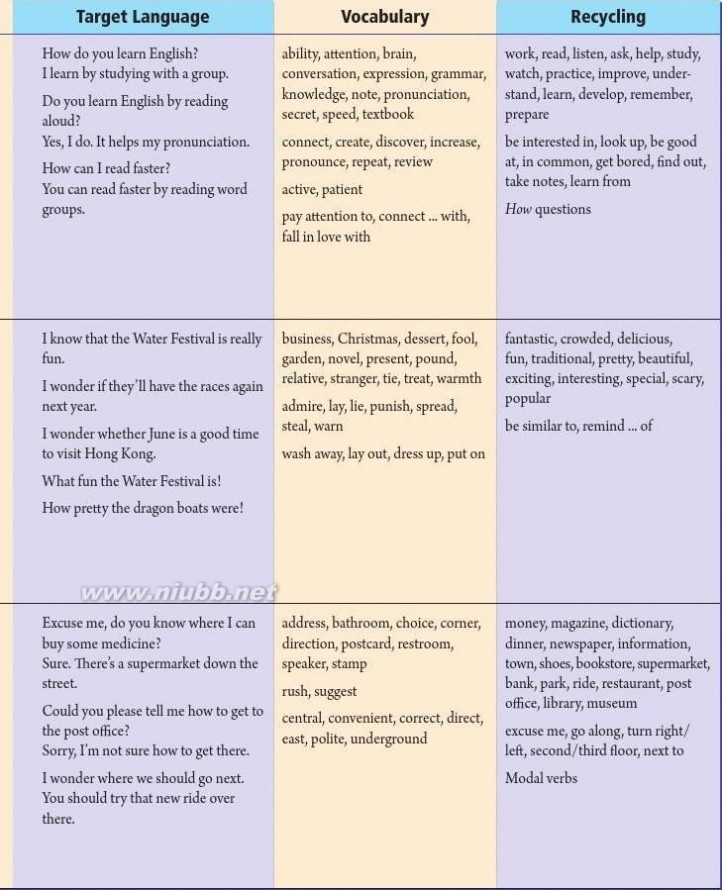
九年级英语 2014年九年级人教版新目标英语电子课本





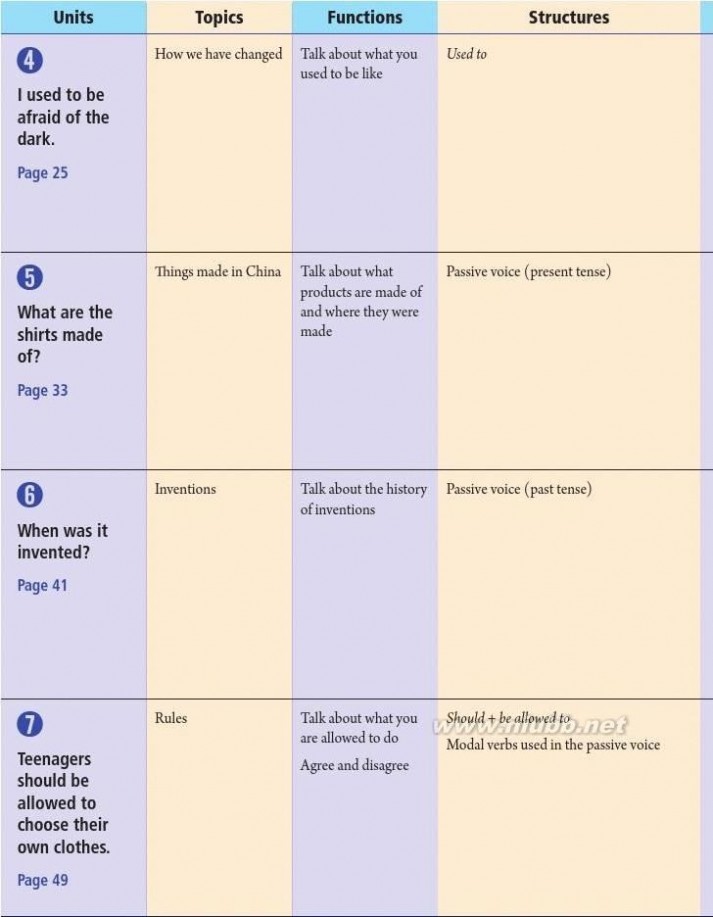
九年级英语 2014年九年级人教版新目标英语电子课本







































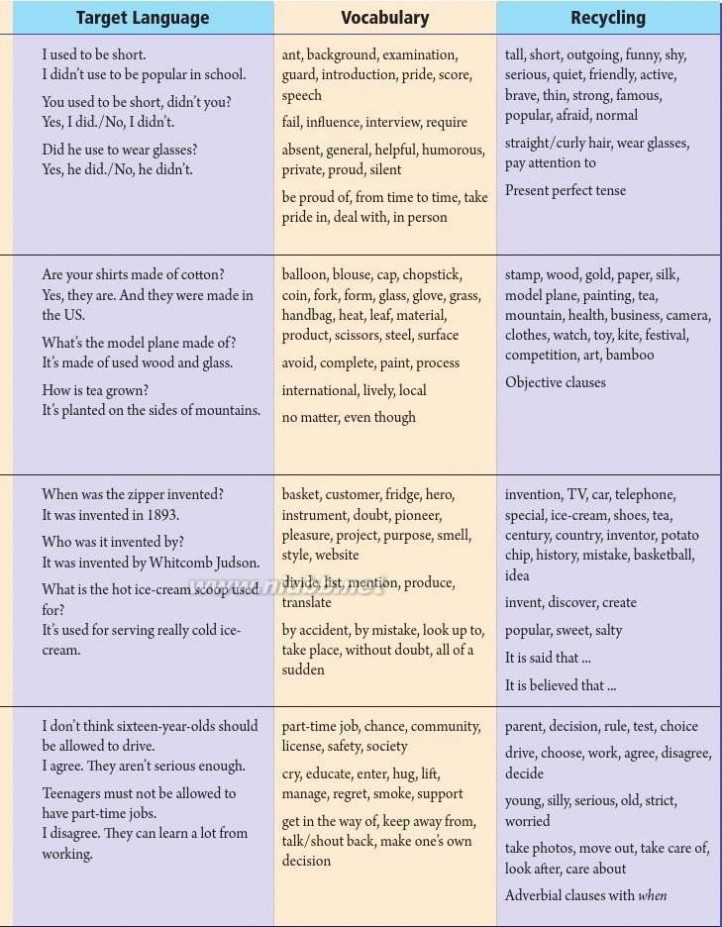
九年级英语 2014年九年级人教版新目标英语电子课本






九年级英语 2014年九年级人教版新目标英语电子课本






















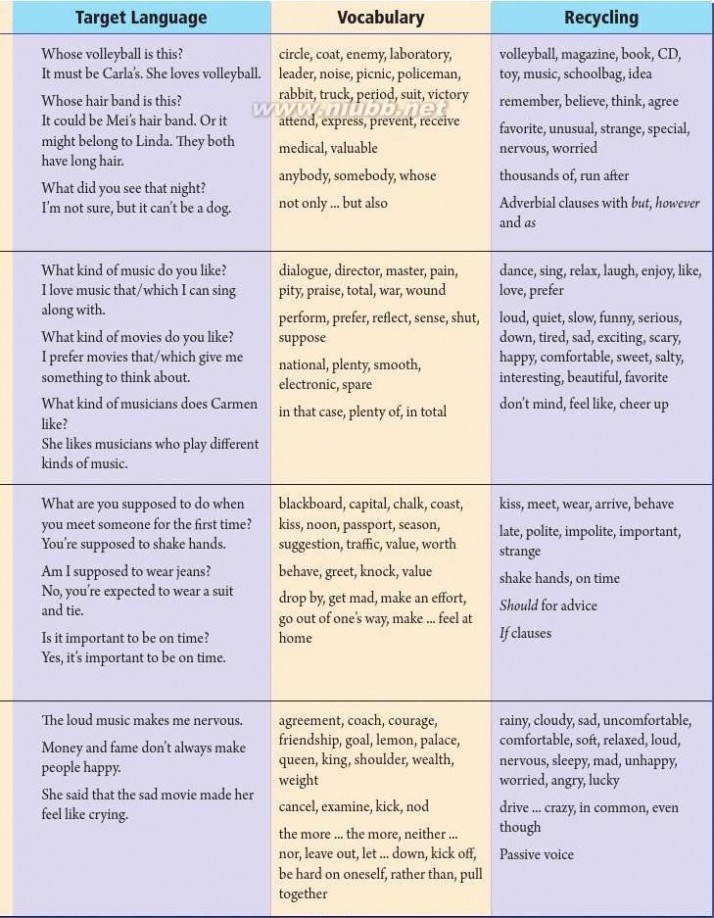
九年级英语 2014年九年级人教版新目标英语电子课本





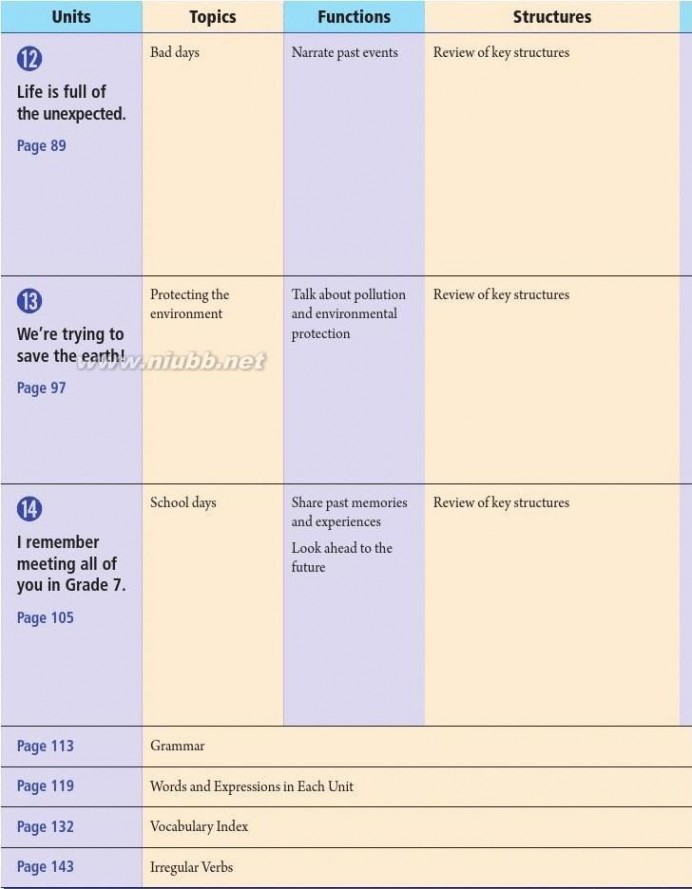
九年级英语 2014年九年级人教版新目标英语电子课本






















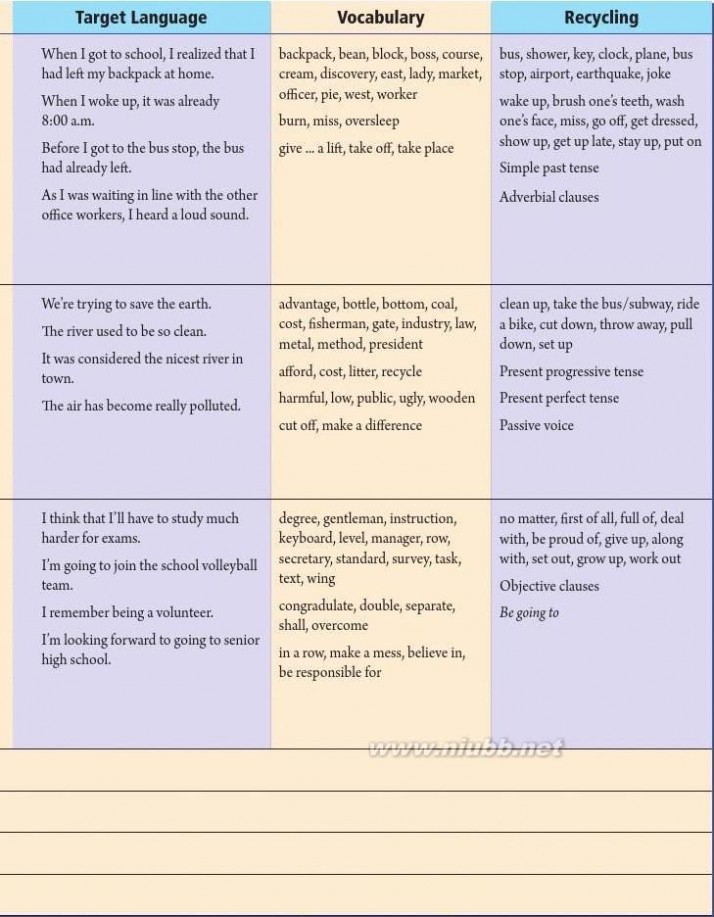
九年级英语 2014年九年级人教版新目标英语电子课本



A

How can we become good learners?

1aLanguage Goal:
Talk about how
to studyCheck (?) the ways you study English. Th en add other ways you sometimes study.
I study by making word cards.

1bListen. How do these students study for a test? Write lett ers from 1a above.
1. Meiping

2. Peter

3. Tony1cMake conversations about how you study for a test.1
九年级英语 2014年九年级人教版新目标英语电子课本


2bListen again. Match each answer below with a question above.a. Yes, I have. I’ve learned a lot that way.
b. Oh, yes. It improves my speaking skills.
c. I do that sometimes. I think it helps.d. No. It’s too hard to understand the voices.
2c





Make conversations using the information in 2a and 2b.



2dRole-play the conversation.
Jack: Annie, I’m a little nervous. I have
to finish reading a book and give a report next Monday.
Annie: Th at doesn’t sound too bad.
Jack: But I’m a very slow reader.
Annie: For the fi rst time, just read quickly to
get the main ideas. Don’t read word by word, read word groups.Jack: But I don’t understand many of the words. I have to use a dictionary.Annie: Try to guess a word’s meaning by reading the sentences before and aft er
it. You probably understand more than you think.
Jack: Th at sounds di? cult!
Annie: Well, be patient. It takes time. You can become bett er by reading
something you enjoy every day. Th e more you read, the faster you’ll be.2
九年级英语 2014年九年级人教版新目标英语电子课本
3aRead the passage about Wei Fen and answer the questions.
1. Why did Wei Fen fi nd it di? cult to learn English?
2. What did she do in English class?
3. What is the secret to language learning?
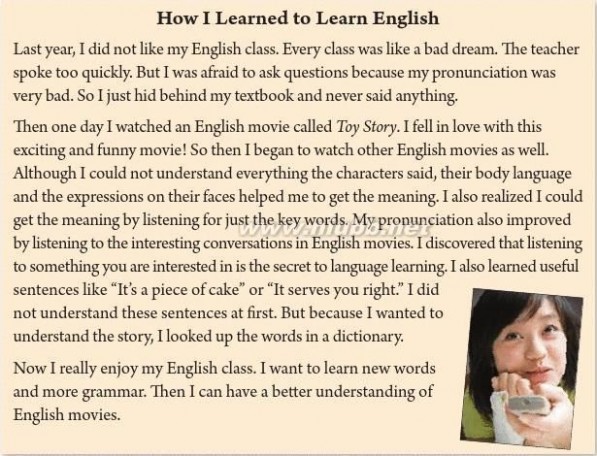
3bComplete the sentences with what Wei Fen learned from watching



movies. Use words and phrases from the passage.
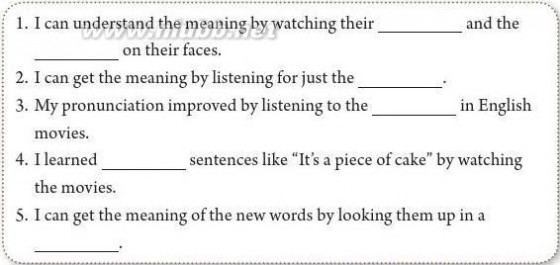





3

九年级英语 2014年九年级人教版新目标英语电子课本


4a

Match the questions and answers.
By watching English programs.By listening to a tape and repeating out loud.By having conversations with friends.By taking notes, doing exercises and reading a lot.By making word cards.By writing e-mails to my pen pals.How do you practice speaking? How do you learn new words? How do you improve your writing? How do you practice listening? How do you improve your pronunciation? How do you learn grammar? 4bComplete these statements. Use information that is true for you.
......a. I like to practice my English by b. c. e. f. 4cCheck (?





do to learn English. Th partner.


4



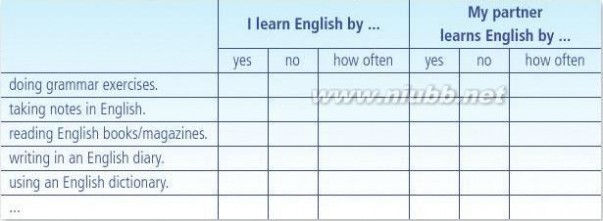
九年级英语 2014年九年级人教版新目标英语电子课本
Section1a

BLearning English can be di? cult. What things are di? cult for you? Read the list. Check (?) the statements that are true for you.
1bWhat other things are di? cult for you? Make a list.1.


2.

3. 1cPaul fi nds it di?

cult to learn English. Listen and complete the



learning challenges he talks about.
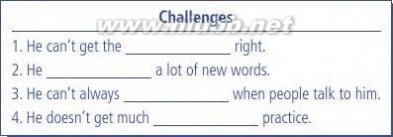
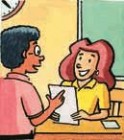
1d

Listen again. Complete the solutions.


1e





Role-play conversations using the information in 1c and 1d.
5

九年级英语 2014年九年级人教版新目标英语电子课本

2a
2bWhat good learning habits can you think of? Discuss them with your partner.


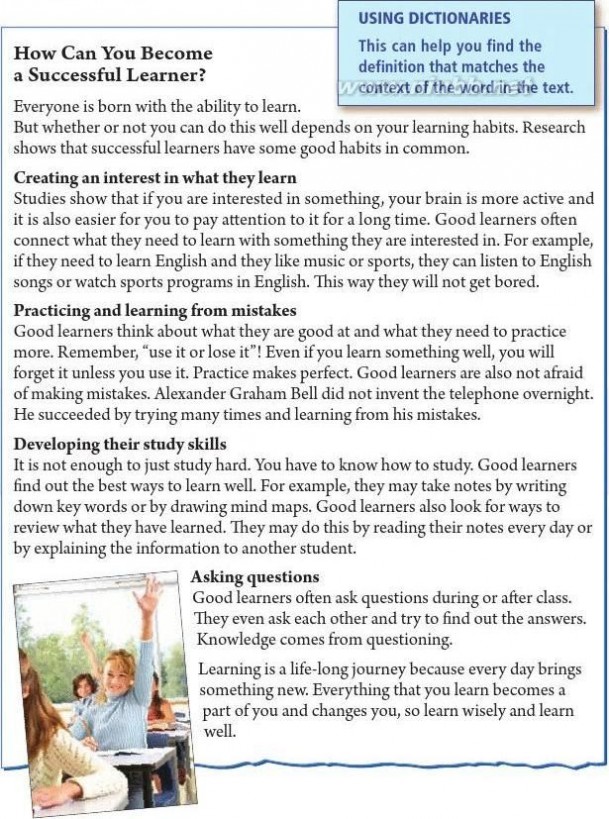
Read the passage quickly. Which four habits of successful learners are
6
九年级英语 2014年九年级人教版新目标英语电子课本


2cRead the passage again and answer the questions.
1. Does the writer think that everyone is born with the ability to learn well? Do you agree? Why or why not?
2. Why is it a good idea to connect something you need to learn with some-thing you are interested in?
3. What do the sayings “use it or lose it” and “practice makes perfect” mean? Do you agree with them?
4. Do good learners learn from mistakes or are they afraid of making mistakes?
5. What study skills does the writer talk about? Do you have those study skills?6.

Do you agree that learning is a life-long journey? Why or why not?

2d

Find the following words from the passage in the dictionary. Th

en write
a sentence using each word in the context of the reading.

e.g.

brain:


A good way to train the brain is to do some math exercises every day.

2eCan you think of other ways to become a successful learner? Discuss

with your group and share your ideas with the class.
3aYour friend wants to improve his/her English and asks you for help. What

are the three best ways to learn and why? Make some notes in the chart.

九年级英语 2014年九年级人教版新目标英语电子课本

3bWrite a lett er to your friend. Give him/her some advice about the best
ways to learn English. Use your notes in 3a.
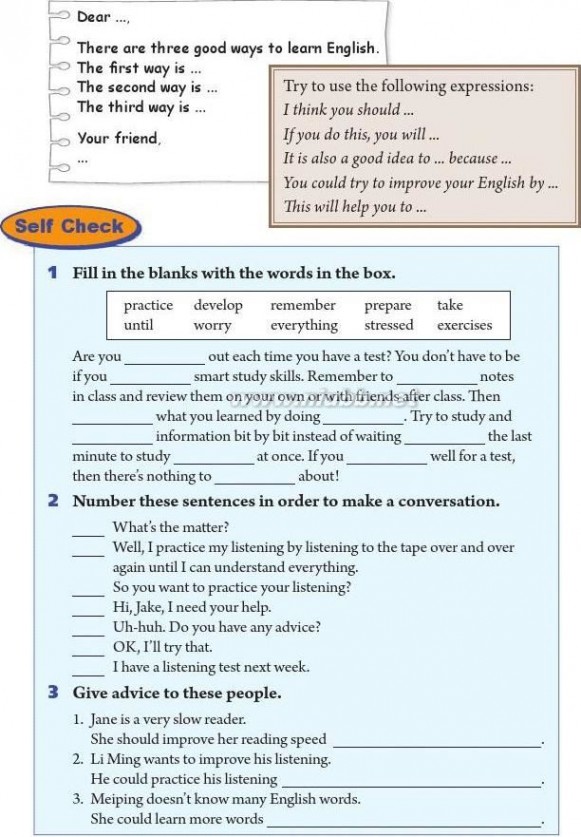
8

九年级英语 2014年九年级人教版新目标英语电子课本
A
I think that mooncakes are delicious!

1a
Language Goal:Give a personal reaction
Match the pictures with the descriptions.

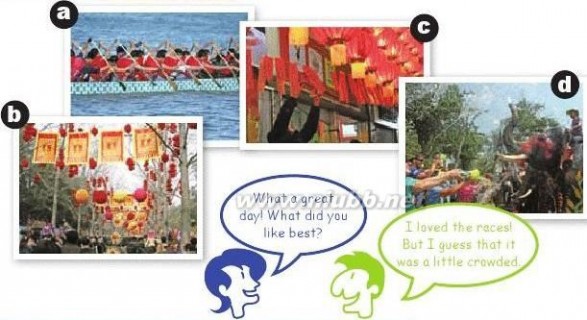
1b
Listen and circle T for true or

F




for false.

T T T T
FFFF
1. Bill thinks that the races were not that interesting to watch. 2. Mary thinks that the teams were fantastic.
3. Bill wonders whether they’ll have the sweet rice dumplings again next year. 4. Bill and Mary believe that they’ll be back next year to watch the races. 1c
Talk about the festivals in 1a.

9
九年级英语 2014年九年级人教版新目标英语电子课本

2aListen to the conversation between Wu Ming and Harry and circle the correct words in the sentences.

1. Wu Ming and Harry are cousins / strangers / friends.
2. Wu Ming went to Singapore / Hong Kong / Macao for his vacation.
3. He visited his relatives / friends / classmates.
4. He enjoyed eating out / shopping / the Dragon Boat Festival best.2bWu Ming did a lot of fun activities, but these also have down sides. Listen again and fi ll in the chart.




2cRole-play conversations between Wu Ming and Harry. Use the
information in 2a and 2b or make up your own conversations.2dRole-play the conversation.Clara: Guess what? I’m going to Chiang
Mai in two weeks.
Ben: Wow, sounds like fun! But I believe
that April is the hott est month of the year there.
Clara: Yes, that’s true. But there’s a Water
Festival from April 13th to 15th.
Ben: I wonder if it’s similar to the water

festival of the Dai people in Yunnan Province.

Clara: Yes, I think so. Th is is the time of the Th ai New Year. People go on the
streets to throw water at each other.
Ben: Cool! But why do they do that?
Clara: Because the new year is a time for cleaning and washing away bad
things. Th en you’ll have good luck in the new year.
九年级英语 2014年九年级人教版新目标英语电子课本
3aRead the passage about Mid-Autumn Festival and answer the questions.
1. How do people celebrate Mid-Autumn Festival?2. What do mooncakes look like? What meaning do they carry?3. What story is the reading about?

3bRead the passage again. Put the events in the correct order.
Feng Meng tried to steal the medicine. A goddess thanked Hou Yi by giving him a magic medicine. Chang’e refused to give Feng Meng the medicine and drank it all. Hou Yi shot down the nine suns and saved the people on the earth. Hou Yi was very sad and watched the moon at night, and wished his wife could come back. As a result, Chang’e became light and flew up to the sky. Hou Yi planned to drink the medicine with his wife.3cWithout looking at the passage, try to complete the sentences with the
correct words.
1. People like to a the full moon on Mid-Autumn night.2. The story of Chang’e is one of many t3. Hou Yi got a m medicine for shooting down the nine suns.4. Feng Meng wanted to s the medicine.5. Hou Yi l out fruits and desserts in the garden.

九年级英语 2014年九年级人教版新目标英语电子课本



4a

Write sentences using the words given.
e.g. think/Lantern Festival/beautiful 1. don’t know/whether/he/come home/for the festival 2. believe/Water Festival/most/fun 3. wonder/if/mooncakes/delicious 4. how/exciting/races 5. what/interesting/city
4b en
write your own sentences about Mother’s Day and Father’s Day using objective clauses.
Dear Xia Yu,
Do you know that there are two special days for parents in America? One is Mother’s Day on the second Sunday of May and the other is Father’s Day on the third Sunday of June. On these two days, American children oft en give gift s to their parents or take them out for lunch or dinner. Common gift s are fl owers and cards for mothers and shirts or ties for fathers. I heard that it is becoming more and more popular to celebrate Mother’s Day and Father’s Day in China. I wonder if children over there also give similar gift s to their parents. I believe that there are many ways to show our love. Actually, we don’t have to spend a lot of money. It is also a good idea to help parents to do something instead.June
4cWhich festival do you like best? Ask your group and report to the class.
e.g. In our group, David’s favorite festival is ... He thinks that ...

九年级英语 2014年九年级人教版新目标英语电子课本

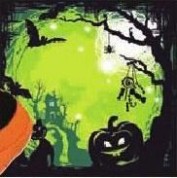
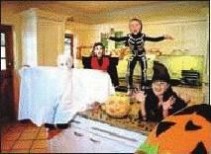




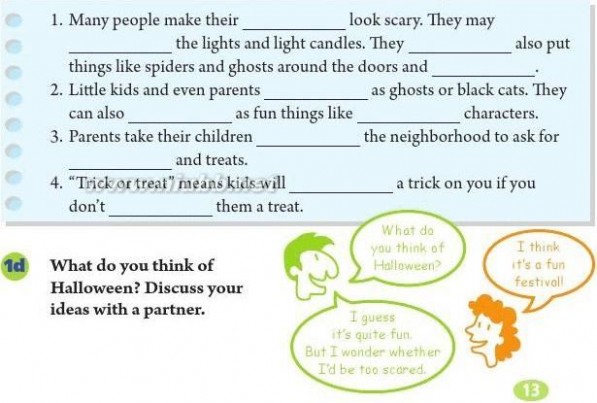
Section1aLook at the pictures and words related to Halloween. What do you think this festival is about?
1bListen and answer the questions.
1. Where is Halloween popular?
2. When do people celebrate Halloween?
3. What does Wu Yu think of this festival?
1cListen and fill in the blanks.
九年级英语 2014年九年级人教版新目标英语电子课本


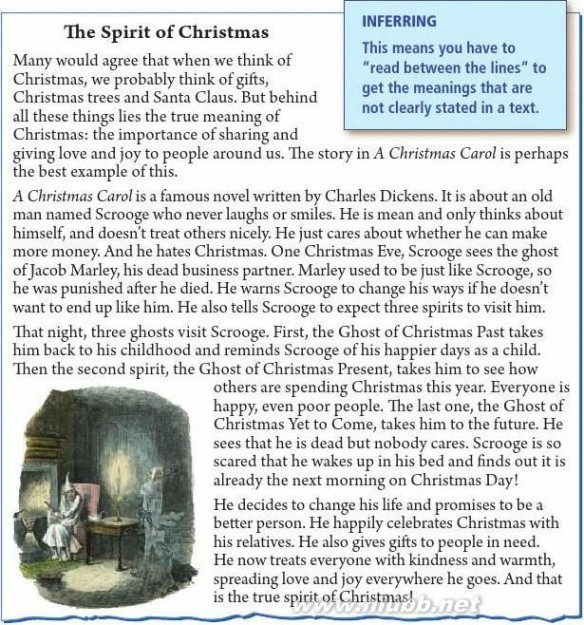
2aDo you know when these special days are? Try to match each day with
the correct date.
Christmas Fourth Th ursday in NovemberApril Fool’s Day February 14thHalloween April 1stSt. Valentine’s Day October 31stTh anksgiving December 25th
Read the passage about Christmas and answer the questions.
1. What are the common things that people think of for Christmas?2. Who wrote A Christmas Carol?3. What is the true meaning or spirit of Christmas?2b
九年级英语 2014年九年级人教版新目标英语电子课本





2c

Read the passage again and complete the chart.

2dAnswer the questions. Some answers need to be inferred.
1. Why does Scrooge hate Christmas?
2. Does Scrooge have a lot of friends? Why or why not?
3. Why was Jacob Marley punished aft er he died?
4. Does Jacob Marley want to help Scrooge? How do you know?
5. What does Scrooge do aft er seeing the three spirits?
2eWhat else do you know about Christmas? Make a list of things that you
know about this festival with your group. Use the questions to help you.3a

Your English-speaking pen pal wants to know about your favorite
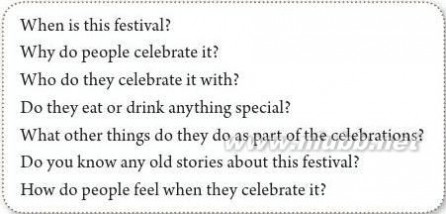
Chinese festival. Make some notes about the festival.

九年级英语 2014年九年级人教版新目标英语电子课本


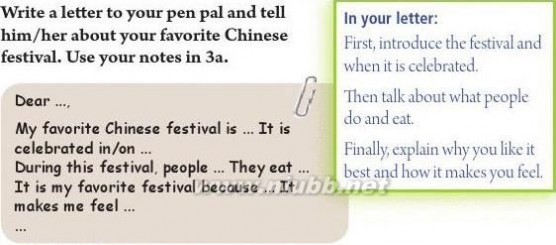
3b
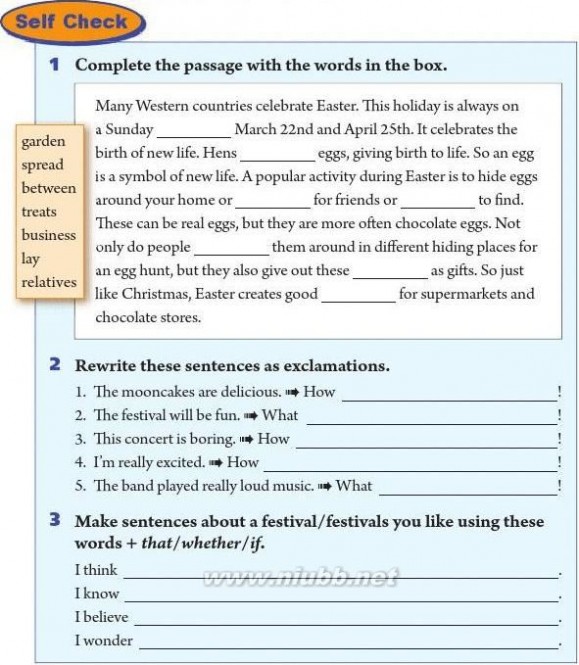

九年级英语 2014年九年级人教版新目标英语电子课本
ACould you please tell me where the restrooms are?

1aLanguage Goals:
Ask for
information
politely;
Follow directionsWhere can you do the things below? Match each thing with a place in the picture. Many di? erent answers are possible.
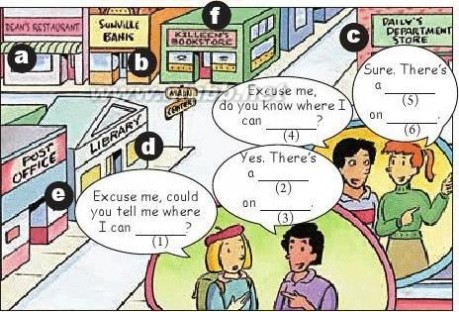
1b

1c
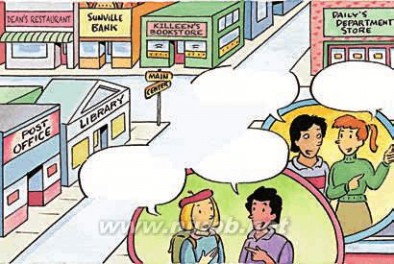
Listen and complete the conversations in the picture in 1a.Make conversations using the information in 1a. Th


en talk about your



own city.
九年级英语 2014年九年级人教版新目标英语电子课本

2aListen. You will hear some of the directions below. Number the directions in the order that you hear them. Go to the third fl oor.
Turn left .
oor. Go to the second fl
Turn right.
Th e supermarket is between the
fl ower store and the bookstore.
Go past the bookstore.

Listen again. Show how the boy walks to the supermarket. Draw a line in the picture above.





Make conversations about the other places in the picture in 2a.2b2c2dRole-play the conversation.
He Wei: Th is is Fun Times Park — the
biggest amusement park in my city!
Alice: I’m excited to try the rides!
He Wei: Where should we start? Th ere’s
Space World, Water World, Animal World ...
Alice: Oh, could you tell me where the restrooms are fi rst?
He Wei: Pardon? Restroom? You already want to rest? But we haven’t even
started yet!
Alice: Oh no, I don’t mean a room for resting. I mean ... you know, a washroom
or bathroom.
He Wei: Hmm ... so you mean ... the toilets?
Alice: Yes! Sorry, maybe the word “restroom” is not commonly used in China.He Wei: Right, we normally say “toilets” or “washrooms”. Th ey’re just over
there.
Alice: OK. I’ll be quick! I wonder when the park closes today.
He Wei:

Nine-thirty, so you don’t need to rush!
九年级英语 2014年九年级人教版新目标英语电子课本
3a



Read the conversation and answer the questions below.


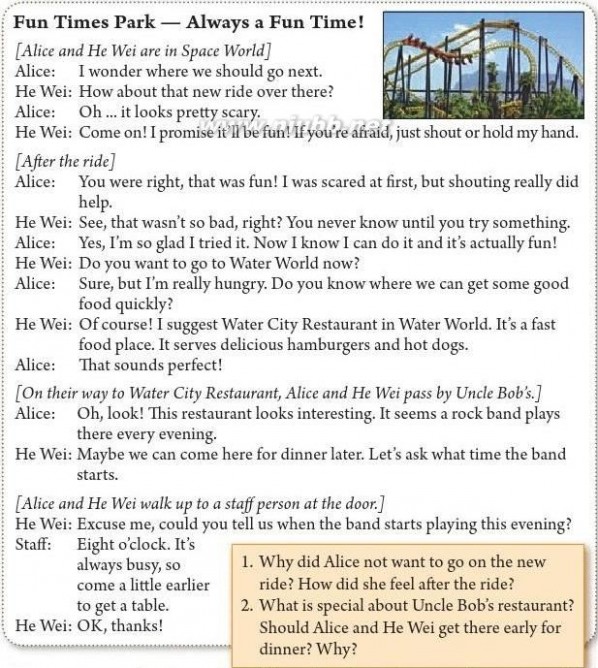
3binformation. Rewrite them in a di? erent way.
e.g. I wonder where we should go next. Could you tell me where we could go next?
3cFind sentences in 3a with similar meanings to the ones below.
1. You’ll enjoy it for sure.
2. You need to do something before you know what it’s like.
3. It looks like there’s live rock music there every night.

九年级英语 2014年九年级人教版新目标英语电子课本




4aRewrite the
questions to make them more polite.
What should each
person ask in the following situations?
1. Tim is very hungry.4bCould you tell me where I can get something to eat?
Pardon me, do you know if there’s a restaurant around here?
2. Sally needs to mail a lett er. 3. Kevin would like to call his friend. 4. Helen needs to know when the bike shop closes. 5. Ben is wondering if there’s a bank in the shopping center.
4cWrite fi ve questions that a tourist might ask about your city. Th en role-
play conversations with your partner.1.

2.
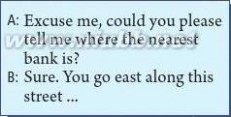
3.
4.
5.

?

????
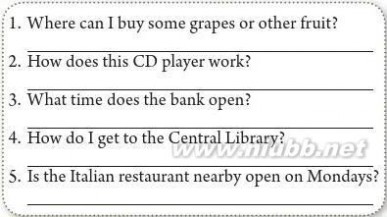

九年级英语 2014年九年级人教版新目标英语电子课本
Section1a

What qualities are important for each place? Write the words from the box next to each place below. Write the most important words fi rst.




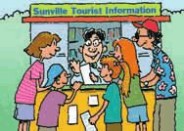



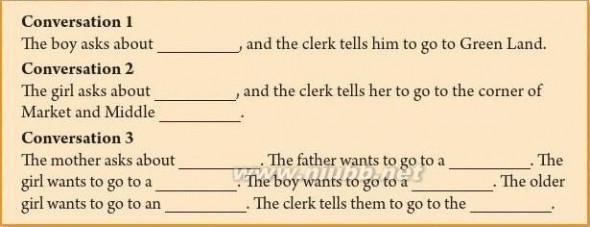



1bTalk about places in your city using the
words in 1a.1cListen to the conversations and complete the sentences.
1dListen again. Check your answers in 1c.
1eRole-play the
conversations between the clerk and the tourists.




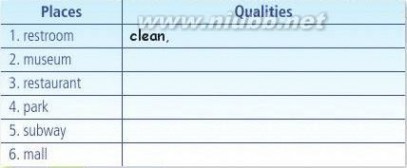


九年级英语 2014年九年级人教版新目标英语电子课本



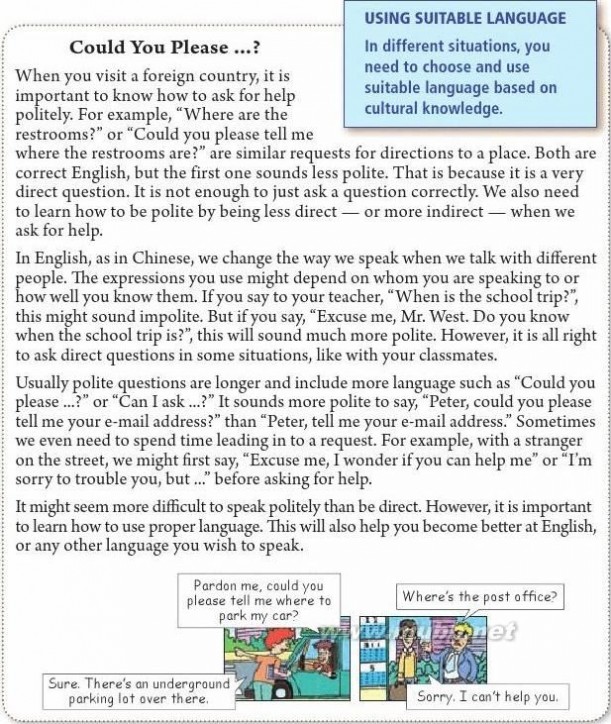
2a
2bWhere do you need to make polite requests? Th ink of some possible situations. Discuss them with your partner.Read the article and match each paragraph with its main idea.
Paragraph 1Paragraph 2Paragraph 3Paragraph 4 Use more words to help you sound more polite.It is important to know how to make requests politely.Good English speakers need to know how to speak politely.Th e choice of language depends on the situation and the relationship between the speakers.




九年级英语 2014年九年级人教版新目标英语电子课本


2cLook at the requests and write two more. Describe a suitable situation
for each one. Th
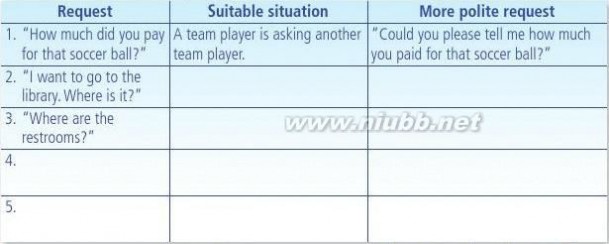
en make the requests more polite.



2dRead the requests below. In the second column, write A if you would
say it to someone you know and B if you would say it to a stranger. In
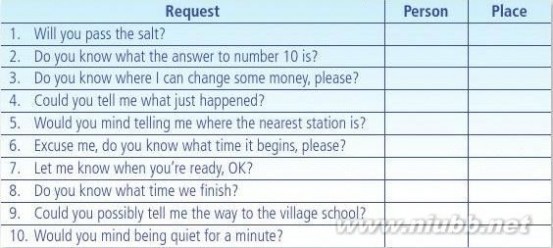
the last column, write where you think the people are talking.
3aImagine you are going on a short study vacation at a school in an
English-speaking country. What would you like to know before you go?

Write some polite, indirect questions about the following topics.

九年级英语 2014年九年级人教版新目标英语电子课本






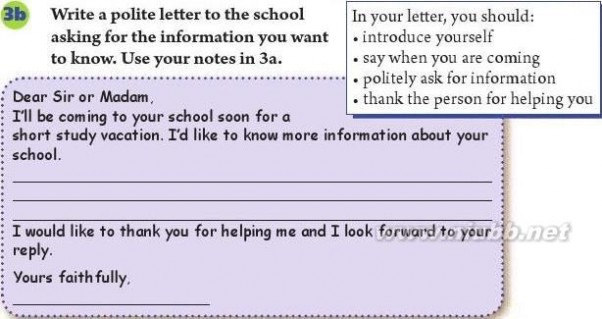

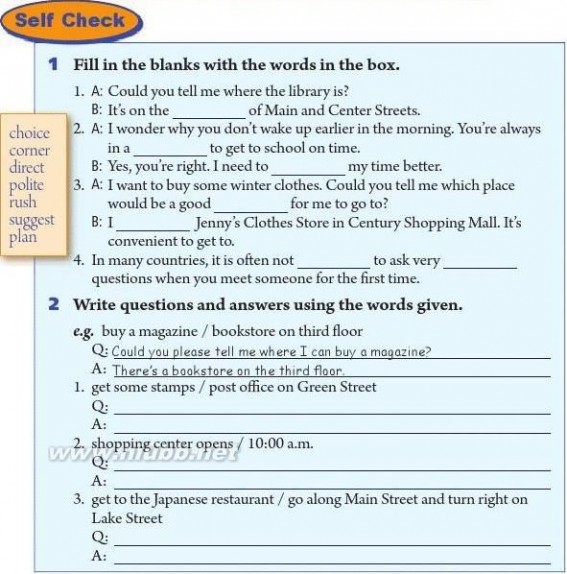

九年级英语 2014年九年级人教版新目标英语电子课本

AI used to be afraid of the dark.

1a
Fill in the chart with words to describe people.Language Goal:Talk about what you used to be
like1bListen. Bob is seeing some friends for the fi rst time in four years. What did his friends use to look like?
1. Mario used to be . He used to wear 2. Amy used to be


.
3. Tina used to have and
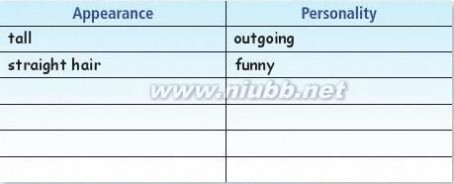
hair .
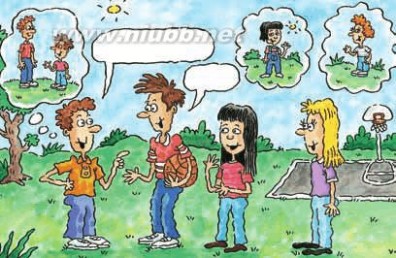
Look at the picture in 1a

and make conversations.

1c

九年级英语 2014年九年级人教版新目标英语电子课本

2aListen and check (?) the words you hear. friendly humorous brave outgoing silent quiet
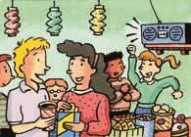
serious active helpful
2b
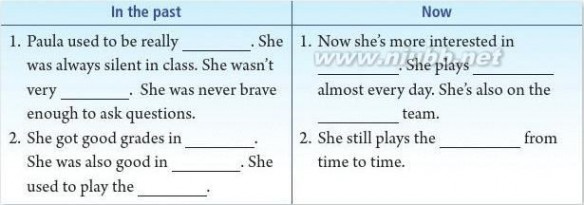
Listen again and complete the chart about how Paula has changed.



2cMake conversations about
Paula using the information




in 2b.
Role-play the conversation.2d
Th is party is such a great idea!

I agree. It’s been three years since we last
saw our primary school classmates.
Alfred: It’s interesting to see how people have
changed.
Gina: Billy has changed so much! He used to be
so shy and quiet.
Alfred: Yeah, his face always turned red when he talked to girls!Gina: I used to see him reading in the library every day.Alfred: Th at’s because he was a really good student. He studied hard and got
good scores on his exams.
Gina: Did he use to wear glasses?
Alfred: Yes, and he used to be thin, too. But look how big and strong he is now!Gina: He’s so popular now. Look at all the girls around him!Alfred: Gina:
九年级英语 2014年九年级人教版新目标英语电子课本
3aSkim the article and identify
the paragraphs in which the following information appears. Number the information [1–3].3bRead the article again and complete the sentences about Candy.1. She used to be shy, but now she’s not shy .2. She used to sing to her shyness, but now she loves singing in front of 3. She didn’t use to in school, but now she gets lots of att ention.4. She used to with friends, but it is almost impossible now.5.

She didn’t use to




about what she says or does, but she is now.
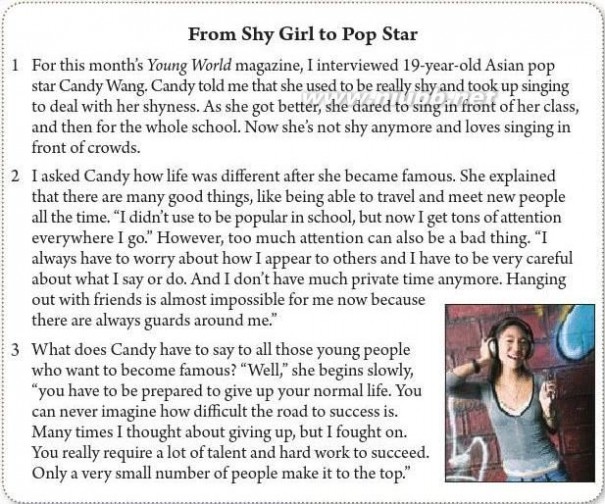
3cSuppose you are the interviewer and your partner is Candy. Ask and



answer questions.


九年级英语 2014年九年级人教版新目标英语电子课本





4a
Write sentences about the past using used to.
1. Grace / watch a lot of TV / watch a lot of movies
2. My mom / have curly hair / have straight hair
3. Jerry / read books on European history / read books on African culture
4. Sandy / teach British English / teach American English
4b
Look at the information
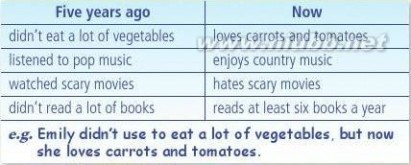
and write sentences about Emily.
4c
Which of these things did you use to be afraid of? Which ones are you
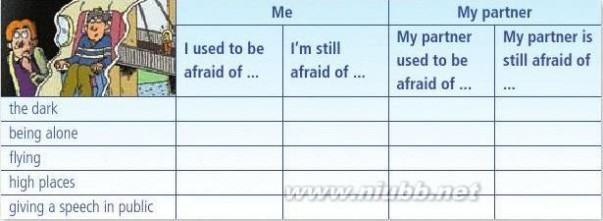
still afraid of? Check the boxes and then ask your partner.





九年级英语 2014年九年级人教版新目标英语电子课本
Section
1a
Check (?) the things you used to like when you were a child.
B
P.E. class painting pictures music class
ants and other insects
1b
What other things did you use to like to do when you were a child? Write sentences in the box above. Th en discuss them with a partner.Listen and check (?) the sentences you hear.
1. 2.
I didn’t use to like tests. 3. We used to walk to school. 4.
I used to hate P.E. class.
1c
1d

Listen again. What do the girl and the boy say about things in the past and now? Fill in the chart.







1e




Compare yourself with your partner.

九年级英语 2014年九年级人教版新目标英语电子课本

2aTell your partner about a time your parents helped you with a problem.






Make notes about what your partner says.e.g.didn’t use to study hard at school — got bad grades — father helped
her to understand that it was important to do well at school
2b


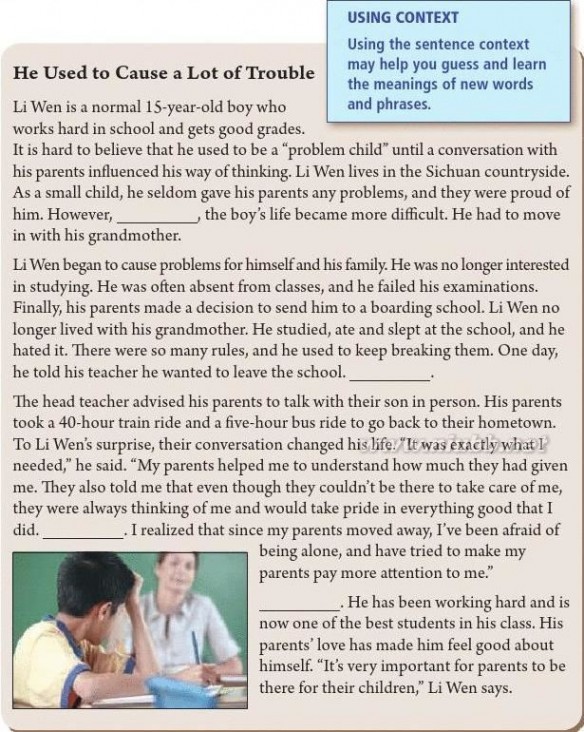
九年级英语 2014年九年级人教版新目标英语电子课本
2c

Put these sentences into the correct places in the passage.
2dUse clues from the passage to help you guess the meanings of the words
in the box.infl uence absent boarding school in person
2eComplete the passage with the proper forms of the words and phrases
in the box.be proud of/take pride in no longer/not ... anymore make a decision/decide not like/hatechange/infl uence look aft er/take care ofLi Wen is a good student, son and grandson. However, he used to cause a lot of trouble for his parents. When his parents moved to work in another him. So he was city, they could not be at home to
interested in studying and missed classes. Th en his parents
to send him to a boarding school and he
it. In the end, his teacher advised his parents to talk with their son and this
his life. He realized that his parents would conversation
everything good that he did. Now he is one of the best
students in his class.
2fWhat do you think Li Wen and his parents talked about in their
conversation? Write a conversation and role-play it with your group. Th ink of the following things:
3aTalk with a partner about the changes that have
happened to you. Write notes about how you have changed for these three things.1. appearance2. personality
3. hobbies

九年级英语 2014年九年级人教版新目标英语电子课本

3bWhat did you use to be like? Write about how you have changed. Which change is the most important one and why?
How I’ve changed!My life has changed a lot in the last few years. I used to Now I’m The biggest change in my life was This is the most important change because ....
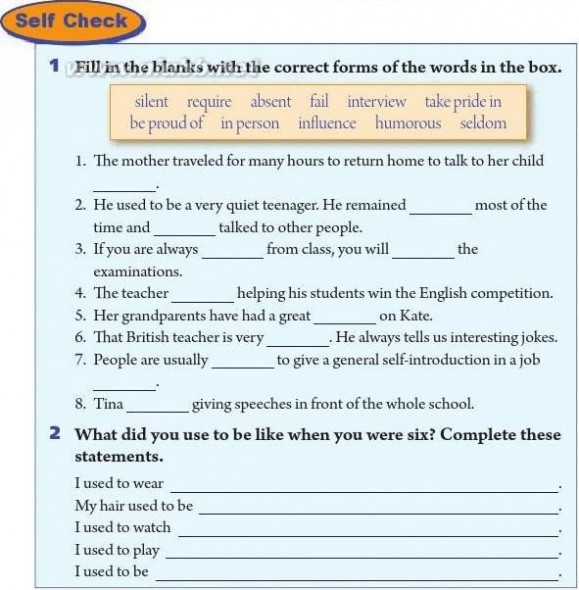

九年级英语 2014年九年级人教版新目标英语电子课本
What are the shirts made of?
1b
Listen and match the products
with what they are made of
and where they were made.1c
Practice the conversation in 1a. Th en make conversations using the information in 1b.
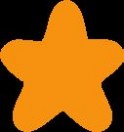







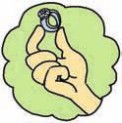
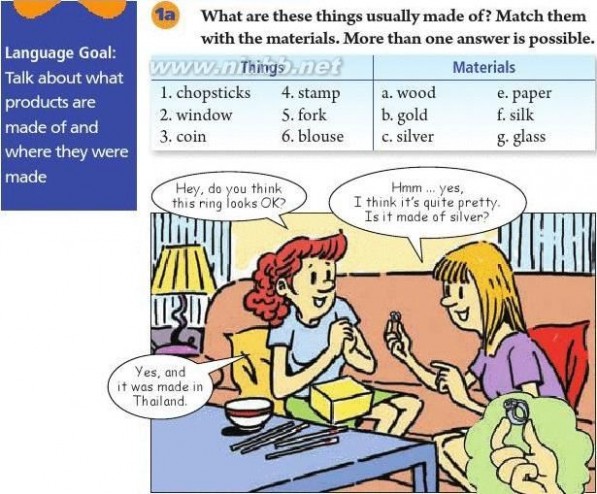
九年级英语 2014年九年级人教版新目标英语电子课本

2a

Listen and check what Nick and Marcus mainly talk about.


2bListen again. Write short answers to the questions.1. Where is the art and science fair? 2. Do Nick and Marcus have to pay to go? 3. What is the model plane made of? 4. What is the painting made from? 5. What is the fair about?
2cMake conversations using the


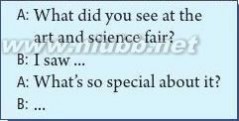
information in 2a and 2b.2dRole-play the conversation.
Pam: China is famous for tea, right?
Liu Jun: Yes, both in the past and now.
Pam: Where is tea produced in China?
Liu Jun: Well, in many di? erent areas. For
example, Anxi and Hangzhou are widely known for their tea.
Pam: How is it grown?
Liu Jun: Well, it’s planted on the sides of mountains. When the leaves are ready,

they are picked by hand and then are sent for processing.

Pam: What happens next?
Liu Jun: Th e tea is packed and sent to many di? erent countries and places
around China.
Pam: It seems that Chinese tea is drunk all over the world.Liu Jun: Yes, people say that tea is good for both health and business!
九年级英语 2014年九年级人教版新目标英语电子课本


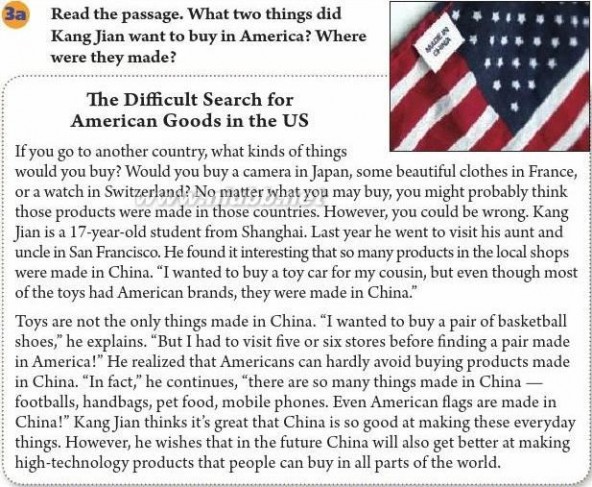
3bRead the passage and answer the questions.
1. Where did Kang Jian go to visit his aunt and uncle?2. What did he discover in the toy stores?3. Why did he have to visit many stores before buying a pair of basketball shoes?4. What did he realize aft er his shopping experiences?5. Why do you think so many products in America are made in China? How do you feel about this?
3c1. No matt those: those: 2. in China. it: 3. I wanted to buy a toy car for my cousin, but even though most of the toys they:

九年级英语 2014年九年级人教版新目标英语电子课本







4aComplete the sentences with the correct forms of the verbs in brackets.
1. Children under 18 their parents.2. We 3. A: What language B: Most people speak German, but many can speak English, too.4. Most of the earth’s surface (cover) by water.5. Th e classroom needs to (clean) every day.
4bRewrite the sentences using the passive voice.
1. Farmers plant the tea on the sides of mountains. 2. In China, farmers grow the best rice in the northeast. 3. Careless driving causes many tra? c accidents. 4. Th e postman brings lett ers and postcards to people’s homes. 5. Our family does not use this silver plate very oft en.
4c

Ask fi

ve classmates about something they are wearing or have in their
schoolbags. Th e list of words below may help you.

九年级英语 2014年九年级人教版新目标英语电子课本
Section1aDo you know how to fl y a kite? What are kites made




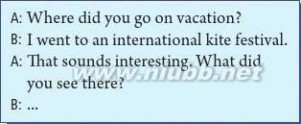


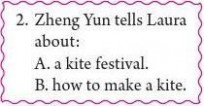

of? Write down some materials used in making kites.

B
1bListen to a conversation between Laura and Zheng Yun and circle the correct answers.
Listen and write L for Laura or Z for Zheng Yun.
1c
1dListen again. Fill in the blanks with what you hear.
1. Weifang is a city in Shandong. It is famous for 2. Th e international kite festival is held in 3. Th e competitors at the festival are from 4. Th ere are competitions for the best kites, the kites.5. Some of the kites Zheng Yun saw were made of painted with colorful . kites or the 1eRole-play a conversation between Laura and Zheng Yun using the information in 1b–1d.

九年级英语 2014年九年级人教版新目标英语电子课本






2a
2bDo you do any kind of folk or traditional art, like drawing or painting? Tell your partner about it.Read the passage and complete the chart below.
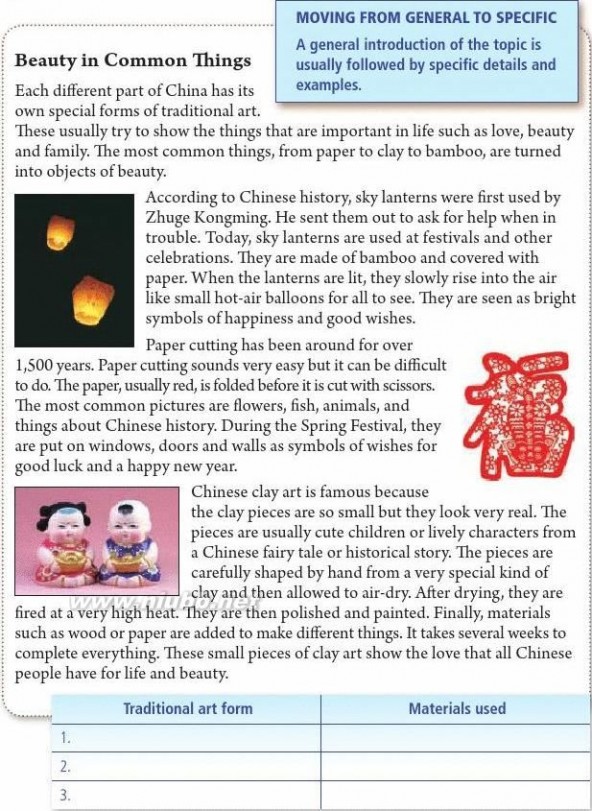



九年级英语 2014年九年级人教版新目标英语电子课本


2cRead the passage again and answer the questions.
1. What do traditional Chinese art forms try to show?
2. What were sky lanterns used for before and what are they used for now?
3. What kinds of pictures are usually found on paper cutt ings?
4. How do people use paper cutt ings during the Spring Festival?
5. What are the steps for making clay art pieces?
6. Which art form do you think is the most interesting? Why?
2dComplete the sentences using the correct forms of the phrases in the
box.
such as turn ... into send out cover with rise into
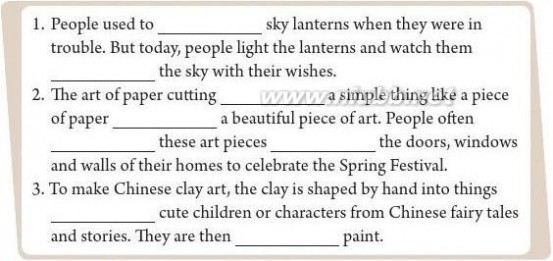
put ... on
2eDiscuss the questions in your group.
1. Which art form do you think is the easiest? Which is the most di? cult? Why?
2. Which art form would you like to learn? Why?
3aWhat are some special things that your hometown or city is famous
for? Th ese can be food, artwork or any other products. Discuss with a

partner and take notes.

九年级英语 2014年九年级人教版新目标英语电子课本




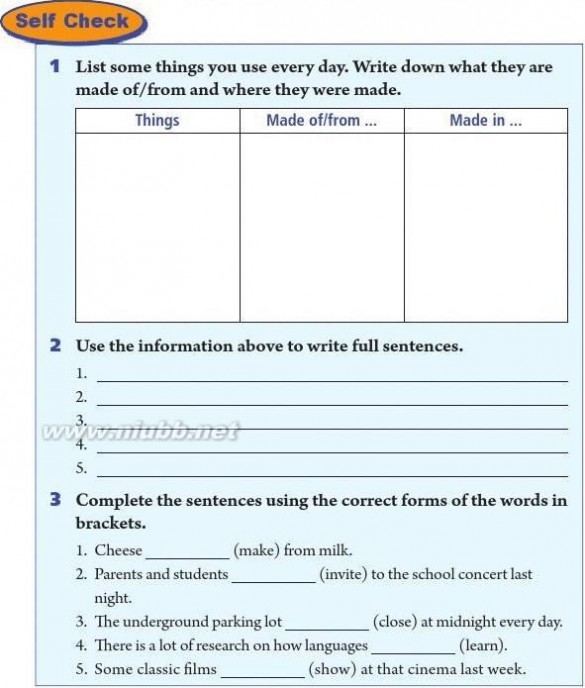
3bWrite a paragraph about the product. Use your notes in 3a.
Try to use the following language:

九年级英语 2014年九年级人教版新目标英语电子课本
AWhen was it invented?

1a
Language Goal:Talk about the history of inventions

Look at the things below. In what order do you

think they were invented? Discuss them with your

group. Th

en number them [1–4] (1 = fi






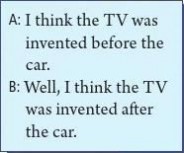
rst, 4 = last).

1bListen and match the inventions with the years.
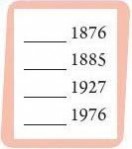
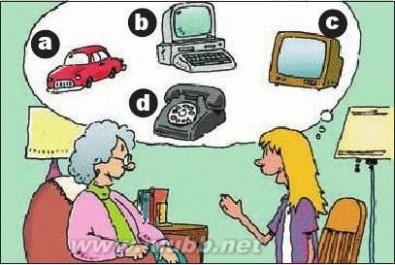
1c

Student B, cover the dates. Student A, ask Student B when the things in the picture in
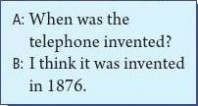
1b were invented. Th en change roles and practice again.
九年级英语 2014年九年级人教版新目标英语电子课本

2a2bListen again. Match the inventions with their inventors and uses.
2c
2dMake conversations using the information in 2b.Role-play the conversation.








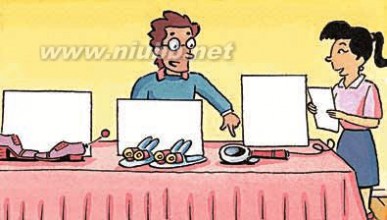
Paul: Hey Roy, the subject for my school project is “Small inventions that changed the world.” Can you help me think of an invention?Roy: My pleasure! Let me think ... hmm ... I know! Th e zipper!Paul: Th e zipper? Is it really such a great invention?
Roy: Th ink about how oft en it’s used in our daily lives. You can see zippers on dresses, trousers, shoes, bags ... almost everywhere!Paul: Well, you do seem to have a point ...
Roy: Of course! I thought about it because I saw a website last week. The pioneers of di? erent inventions were listed there. For example, it mentioned that the zipper was invented by Whitcomb Judson in 1893. But at that time, it wasn’t used widely.Paul: Really? So when did it become popular?
Roy: Around 1917.
九年级英语 2014年九年级人教版新目标英语电子课本
3aRead the passage
quickly and match each paragraph with




its main idea.





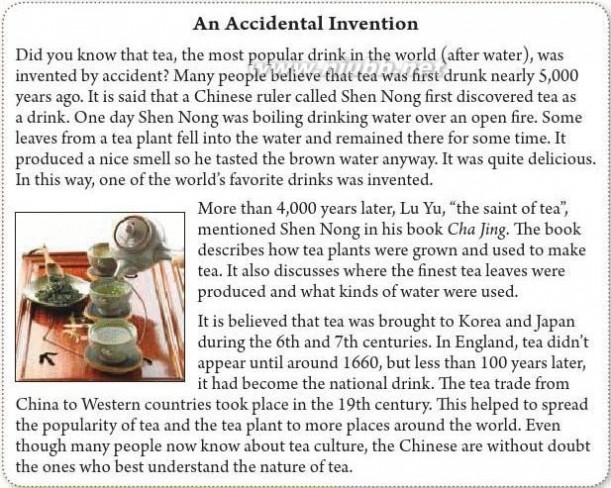
3bRead the passage again ons.and answer the questions.3cComplete the sentences with the correct forms of the verbs in the box.
1. One of the world’s favorite drinks was 2. Tea was fi rst by Shen Nong 5,000 years ago.3. A nice smell was 4. Tea was to Korea and Japan during the 6th and 7th centuries.5. Tea is now erent countries.

九年级英语 2014年九年级人教版新目标英语电子课本




4aRewrite the sentences using the passive voice.
1. Th ey sold the fridge at a low price. 2. Somebody stole my camera from my hotel room. 3. Where did you take these photos? 4. Our parents advised us not to go out alone. 5. Di? erent writers translated the book into di? erent languages.
4bComplete the sentences with the correct forms of the verbs in the box.
lockringbreakbring1. You 2. Th 3. 4. Th 5. Th e cookies Th en they eat ask invite told come
4cDecide whether active or passive forms should be used in these sentences.
Write the correct forms in the blanks.
Th e telephone (born) in 1847. Alexander telephone with Th omas Watson. In 1875, Alexander send musical notes through an instrument similar to a telephone. Finally, the telephone e fi rst sentence that (say) on the telephone by Alexander was “Mr. Watson, come here; I want to see you.” Today the telephone (use) around the world.

九年级英语 2014年九年级人教版新目标英语电子课本
Section
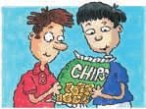


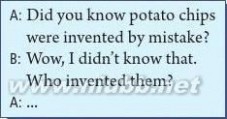



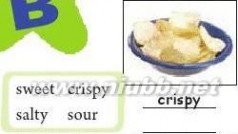
1a
Th e words in the box describe how food can taste. Write them under the correct pictures. Some pictures have more than one word.1bWrite the name of a di? erent food aft er each word.
salty sour sweet crispy
1cListen and circle T for true or F for false.
T F
T F
T
T
T
T FFFF1. Potato chips were invented by mistake. 2. Th ey were invented in 1863. 3. Th e customer thought the potatoes were not thin enough. 4. Th e customer said they were not salty enough. 5. George wanted to make the customer happy. 6. Th e customer was happy in the end.
1d

Listen again. Complete the sentences.


1eMake a conversation about the
invention of potato chips. Use the information in 1c and 1d.

九年级英语 2014年九年级人教版新目标英语电子课本



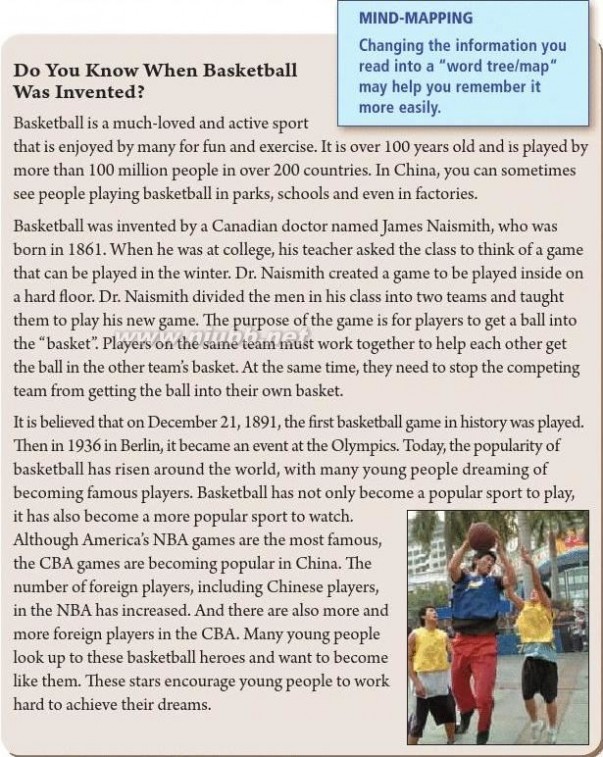
2aList some popular sports and
the countries where each sport is the most popular.2bSkim the passage. Which paragraphs are about the popularity of







九年级英语 2014年九年级人教版新目标英语电子课本
(www.61k.com]四 : 2014年九年级人教版新目标英语电子课本
义务教育教科书
义务教育教科书英语英 语
九年级??全一册九年级
(中国)人民教育出版社 课程教材研究所
英语课程教
(美国)圣智
·北?京·材研究开发中心编著习集团学
致同学
同学们,你们好!欢迎你们进入九年级的英语学习!
本套教材是根据你们的心理特点、认知水平和兴趣爱好来编写的。相信在新学年,教材的以下特点会继续帮助你们学好英语:
1. 教材不仅要帮助你们学习英语语言知识,更重要的是要帮助你们发展语言运用能力,让你们学会用英语表达思想、与人交流。
2. 教材充分考虑了你们的生活实际和学习需求,教材的内容和活动都与你们的生活和兴趣紧密相连,目的是让你们在英语学习中不感到枯燥乏味,而是有话可说、有话想说、有话能说。
3. 教材在重视培养你们的语言运用能力的同时,更加重视培养你们的语言学习策略和技能。这些策略和技能是帮助你们进一步学好英语的基础。
4. 教材为你们设计了许多具有交际意义的任务或活动,目的是让你们在英语课堂上“活”起来、“动”起来。英语课堂教学需要你们的充分参与,英语学习需要你们与老师合作、与同学交流。通过参与和互动,你们的英语水平才会得到不断提高。
5. 教材进一步丰富了文化教学的内容,包括我们的民族文化、英语国家的文化和非英语国家的文化。通过文化内容的学习,你们的视野会更开阔,思想会更丰富,思维会更活跃,交流会更得体。
要想学好英语,光靠课本是不够的,你们还需要继续接触更多的英语学习资源。学习英语没有捷径,只有多听、多说、多读、多写、多记、多用才是最有效的办法。因此,你们要充分利用各种资源和机会来学习英语。
同学们,继续努力吧!祝你们英语学习取得更大进步!
编者2012年12月






Contents





































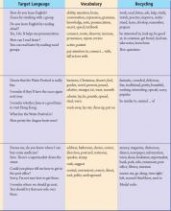













































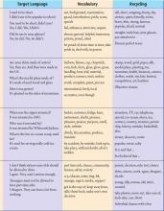





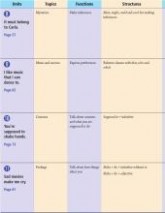



















































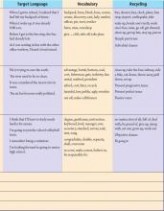



A

How can we become good learners?

1aLanguage Goal:
Talk about how
to studyCheck (?) the ways you study English. Th en add other ways you sometimes study.
I study by making word cards.

1bListen. How do these students study for a test? Write lett ers from 1a above.
1. Meiping

2. Peter

3. Tony1cMake conversations about how you study for a test.1


2bListen again. Match each answer below with a question above.a. Yes, I have. I’ve learned a lot that way.
b. Oh, yes. It improves my speaking skills.
c. I do that sometimes. I think it helps.d. No. It’s too hard to understand the voices.
2c





Make conversations using the information in 2a and 2b.



2dRole-play the conversation.
Jack: Annie, I’m a little nervous. I have
to finish reading a book and give a report next Monday.
Annie: Th at doesn’t sound too bad.
Jack: But I’m a very slow reader.
Annie: For the fi rst time, just read quickly to
get the main ideas. Don’t read word by word, read word groups.Jack: But I don’t understand many of the words. I have to use a dictionary.Annie: Try to guess a word’s meaning by reading the sentences before and aft er
it. You probably understand more than you think.
Jack: Th at sounds di? cult!
Annie: Well, be patient. It takes time. You can become bett er by reading
something you enjoy every day. Th e more you read, the faster you’ll be.2
3aRead the passage about Wei Fen and answer the questions.
1. Why did Wei Fen fi nd it di? cult to learn English?
2. What did she do in English class?
3. What is the secret to language learning?

3bComplete the sentences with what Wei Fen learned from watching



movies. Use words and phrases from the passage.
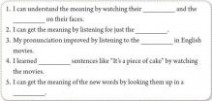





3



4a

Match the questions and answers.
By watching English programs.By listening to a tape and repeating out loud.By having conversations with friends.By taking notes, doing exercises and reading a lot.By making word cards.By writing e-mails to my pen pals.How do you practice speaking? How do you learn new words? How do you improve your writing? How do you practice listening? How do you improve your pronunciation? How do you learn grammar? 4bComplete these statements. Use information that is true for you.
......a. I like to practice my English by b. c. e. f. 4cCheck (?





do to learn English. Th partner.


4




Section1a

BLearning English can be di? cult. What things are di? cult for you? Read the list. Check (?) the statements that are true for you.
1bWhat other things are di? cult for you? Make a list.1.


2.

3. 1cPaul fi nds it di?

cult to learn English. Listen and complete the



learning challenges he talks about.

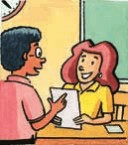
1d

Listen again. Complete the solutions.


1e





Role-play conversations using the information in 1c and 1d.
5


2a
2bWhat good learning habits can you think of? Discuss them with your partner.


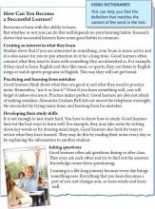
Read the passage quickly. Which four habits of successful learners are
6


2cRead the passage again and answer the questions.
1. Does the writer think that everyone is born with the ability to learn well? Do you agree? Why or why not?
2. Why is it a good idea to connect something you need to learn with some-thing you are interested in?
3. What do the sayings “use it or lose it” and “practice makes perfect” mean? Do you agree with them?
4. Do good learners learn from mistakes or are they afraid of making mistakes?
5. What study skills does the writer talk about? Do you have those study skills?6.

Do you agree that learning is a life-long journey? Why or why not?

2d

Find the following words from the passage in the dictionary. Th

en write
a sentence using each word in the context of the reading.

e.g.

brain:


A good way to train the brain is to do some math exercises every day.

2eCan you think of other ways to become a successful learner? Discuss

with your group and share your ideas with the class.
3aYour friend wants to improve his/her English and asks you for help. What

are the three best ways to learn and why? Make some notes in the chart.


3bWrite a lett er to your friend. Give him/her some advice about the best
ways to learn English. Use your notes in 3a.

8

A
I think that mooncakes are delicious!

1a
Language Goal:Give a personal reaction
Match the pictures with the descriptions.

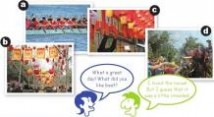
1b
Listen and circle T for true or

F




for false.

T T T T
FFFF
1. Bill thinks that the races were not that interesting to watch. 2. Mary thinks that the teams were fantastic.
3. Bill wonders whether they’ll have the sweet rice dumplings again next year. 4. Bill and Mary believe that they’ll be back next year to watch the races. 1c
Talk about the festivals in 1a.

9

2aListen to the conversation between Wu Ming and Harry and circle the correct words in the sentences.

1. Wu Ming and Harry are cousins / strangers / friends.
2. Wu Ming went to Singapore / Hong Kong / Macao for his vacation.
3. He visited his relatives / friends / classmates.
4. He enjoyed eating out / shopping / the Dragon Boat Festival best.2bWu Ming did a lot of fun activities, but these also have down sides. Listen again and fi ll in the chart.




2cRole-play conversations between Wu Ming and Harry. Use the
information in 2a and 2b or make up your own conversations.2dRole-play the conversation.Clara: Guess what? I’m going to Chiang
Mai in two weeks.
Ben: Wow, sounds like fun! But I believe
that April is the hott est month of the year there.
Clara: Yes, that’s true. But there’s a Water
Festival from April 13th to 15th.
Ben: I wonder if it’s similar to the water

festival of the Dai people in Yunnan Province.

Clara: Yes, I think so. Th is is the time of the Th ai New Year. People go on the
streets to throw water at each other.
Ben: Cool! But why do they do that?
Clara: Because the new year is a time for cleaning and washing away bad
things. Th en you’ll have good luck in the new year.
3aRead the passage about Mid-Autumn Festival and answer the questions.
1. How do people celebrate Mid-Autumn Festival?2. What do mooncakes look like? What meaning do they carry?3. What story is the reading about?
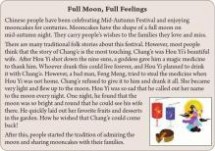
3bRead the passage again. Put the events in the correct order.
Feng Meng tried to steal the medicine. A goddess thanked Hou Yi by giving him a magic medicine. Chang’e refused to give Feng Meng the medicine and drank it all. Hou Yi shot down the nine suns and saved the people on the earth. Hou Yi was very sad and watched the moon at night, and wished his wife could come back. As a result, Chang’e became light and flew up to the sky. Hou Yi planned to drink the medicine with his wife.3cWithout looking at the passage, try to complete the sentences with the
correct words.
1. People like to a the full moon on Mid-Autumn night.2. The story of Chang’e is one of many t3. Hou Yi got a m medicine for shooting down the nine suns.4. Feng Meng wanted to s the medicine.5. Hou Yi l out fruits and desserts in the garden.




4a

Write sentences using the words given.
e.g. think/Lantern Festival/beautiful 1. don’t know/whether/he/come home/for the festival 2. believe/Water Festival/most/fun 3. wonder/if/mooncakes/delicious 4. how/exciting/races 5. what/interesting/city
4b en
write your own sentences about Mother’s Day and Father’s Day using objective clauses.
Dear Xia Yu,
Do you know that there are two special days for parents in America? One is Mother’s Day on the second Sunday of May and the other is Father’s Day on the third Sunday of June. On these two days, American children oft en give gift s to their parents or take them out for lunch or dinner. Common gift s are fl owers and cards for mothers and shirts or ties for fathers. I heard that it is becoming more and more popular to celebrate Mother’s Day and Father’s Day in China. I wonder if children over there also give similar gift s to their parents. I believe that there are many ways to show our love. Actually, we don’t have to spend a lot of money. It is also a good idea to help parents to do something instead.June
4cWhich festival do you like best? Ask your group and report to the class.
e.g. In our group, David’s favorite festival is ... He thinks that ...



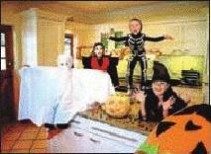
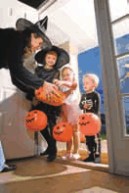

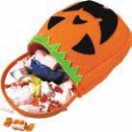

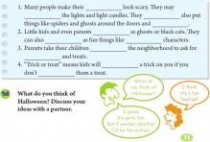
Section1aLook at the pictures and words related to Halloween. What do you think this festival is about?
1bListen and answer the questions.
1. Where is Halloween popular?
2. When do people celebrate Halloween?
3. What does Wu Yu think of this festival?
1cListen and fill in the blanks.



2aDo you know when these special days are? Try to match each day with
the correct date.
Christmas Fourth Th ursday in NovemberApril Fool’s Day February 14thHalloween April 1stSt. Valentine’s Day October 31stTh anksgiving December 25th
Read the passage about Christmas and answer the questions.
1. What are the common things that people think of for Christmas?2. Who wrote A Christmas Carol?3. What is the true meaning or spirit of Christmas?2b





2c

Read the passage again and complete the chart.

2dAnswer the questions. Some answers need to be inferred.
1. Why does Scrooge hate Christmas?
2. Does Scrooge have a lot of friends? Why or why not?
3. Why was Jacob Marley punished aft er he died?
4. Does Jacob Marley want to help Scrooge? How do you know?
5. What does Scrooge do aft er seeing the three spirits?
2eWhat else do you know about Christmas? Make a list of things that you
know about this festival with your group. Use the questions to help you.3a

Your English-speaking pen pal wants to know about your favorite
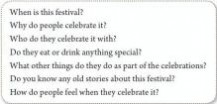
Chinese festival. Make some notes about the festival.




3b
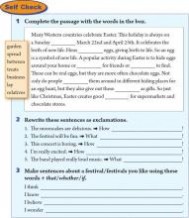

ACould you please tell me where the restrooms are?

1aLanguage Goals:
Ask for
information
politely;
Follow directionsWhere can you do the things below? Match each thing with a place in the picture. Many di? erent answers are possible.

1b

1c
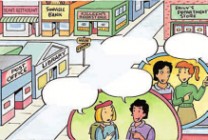
Listen and complete the conversations in the picture in 1a.Make conversations using the information in 1a. Th


en talk about your



own city.

2aListen. You will hear some of the directions below. Number the directions in the order that you hear them. Go to the third fl oor.
Turn left .
oor. Go to the second fl
Turn right.
Th e supermarket is between the
fl ower store and the bookstore.
Go past the bookstore.

Listen again. Show how the boy walks to the supermarket. Draw a line in the picture above.





Make conversations about the other places in the picture in 2a.2b2c2dRole-play the conversation.
He Wei: Th is is Fun Times Park — the
biggest amusement park in my city!
Alice: I’m excited to try the rides!
He Wei: Where should we start? Th ere’s
Space World, Water World, Animal World ...
Alice: Oh, could you tell me where the restrooms are fi rst?
He Wei: Pardon? Restroom? You already want to rest? But we haven’t even
started yet!
Alice: Oh no, I don’t mean a room for resting. I mean ... you know, a washroom
or bathroom.
He Wei: Hmm ... so you mean ... the toilets?
Alice: Yes! Sorry, maybe the word “restroom” is not commonly used in China.He Wei: Right, we normally say “toilets” or “washrooms”. Th ey’re just over
there.
Alice: OK. I’ll be quick! I wonder when the park closes today.
He Wei:

Nine-thirty, so you don’t need to rush!
3a



Read the conversation and answer the questions below.


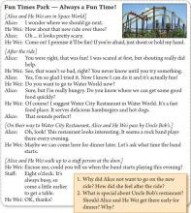
3binformation. Rewrite them in a di? erent way.
e.g. I wonder where we should go next. Could you tell me where we could go next?
3cFind sentences in 3a with similar meanings to the ones below.
1. You’ll enjoy it for sure.
2. You need to do something before you know what it’s like.
3. It looks like there’s live rock music there every night.





4aRewrite the
questions to make them more polite.
What should each
person ask in the following situations?
1. Tim is very hungry.4bCould you tell me where I can get something to eat?
Pardon me, do you know if there’s a restaurant around here?
2. Sally needs to mail a lett er. 3. Kevin would like to call his friend. 4. Helen needs to know when the bike shop closes. 5. Ben is wondering if there’s a bank in the shopping center.
4cWrite fi ve questions that a tourist might ask about your city. Th en role-
play conversations with your partner.1.

2.

3.
4.
5.

?

????


Section1a

What qualities are important for each place? Write the words from the box next to each place below. Write the most important words fi rst.




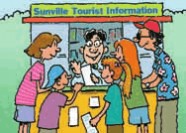







1bTalk about places in your city using the
words in 1a.1cListen to the conversations and complete the sentences.
1dListen again. Check your answers in 1c.
1eRole-play the
conversations between the clerk and the tourists.










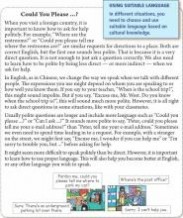
2a
2bWhere do you need to make polite requests? Th ink of some possible situations. Discuss them with your partner.Read the article and match each paragraph with its main idea.
Paragraph 1Paragraph 2Paragraph 3Paragraph 4 Use more words to help you sound more polite.It is important to know how to make requests politely.Good English speakers need to know how to speak politely.Th e choice of language depends on the situation and the relationship between the speakers.






2cLook at the requests and write two more. Describe a suitable situation
for each one. Th

en make the requests more polite.



2dRead the requests below. In the second column, write A if you would
say it to someone you know and B if you would say it to a stranger. In

the last column, write where you think the people are talking.
3aImagine you are going on a short study vacation at a school in an
English-speaking country. What would you like to know before you go?

Write some polite, indirect questions about the following topics.







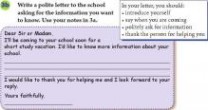

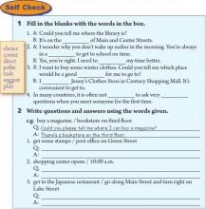


AI used to be afraid of the dark.

1a
Fill in the chart with words to describe people.Language Goal:Talk about what you used to be
like1bListen. Bob is seeing some friends for the fi rst time in four years. What did his friends use to look like?
1. Mario used to be . He used to wear 2. Amy used to be


.
3. Tina used to have and

hair .

Look at the picture in 1a

and make conversations.

1c


2aListen and check (?) the words you hear. friendly humorous brave outgoing silent quiet
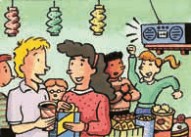
serious active helpful
2b

Listen again and complete the chart about how Paula has changed.



2cMake conversations about
Paula using the information




in 2b.
Role-play the conversation.2d
Th is party is such a great idea!

I agree. It’s been three years since we last
saw our primary school classmates.
Alfred: It’s interesting to see how people have
changed.
Gina: Billy has changed so much! He used to be
so shy and quiet.
Alfred: Yeah, his face always turned red when he talked to girls!Gina: I used to see him reading in the library every day.Alfred: Th at’s because he was a really good student. He studied hard and got
good scores on his exams.
Gina: Did he use to wear glasses?
Alfred: Yes, and he used to be thin, too. But look how big and strong he is now!Gina: He’s so popular now. Look at all the girls around him!Alfred: Gina:
3aSkim the article and identify
the paragraphs in which the following information appears. Number the information [1–3].3bRead the article again and complete the sentences about Candy.1. She used to be shy, but now she’s not shy .2. She used to sing to her shyness, but now she loves singing in front of 3. She didn’t use to in school, but now she gets lots of att ention.4. She used to with friends, but it is almost impossible now.5.

She didn’t use to




about what she says or does, but she is now.

3cSuppose you are the interviewer and your partner is Candy. Ask and



answer questions.







4a
Write sentences about the past using used to.
1. Grace / watch a lot of TV / watch a lot of movies
2. My mom / have curly hair / have straight hair
3. Jerry / read books on European history / read books on African culture
4. Sandy / teach British English / teach American English
4b
Look at the information

and write sentences about Emily.
4c
Which of these things did you use to be afraid of? Which ones are you

still afraid of? Check the boxes and then ask your partner.





Section
1a
Check (?) the things you used to like when you were a child.
B
P.E. class painting pictures music class
ants and other insects
1b
What other things did you use to like to do when you were a child? Write sentences in the box above. Th en discuss them with a partner.Listen and check (?) the sentences you hear.
1. 2.
I didn’t use to like tests. 3. We used to walk to school. 4.
I used to hate P.E. class.
1c
1d

Listen again. What do the girl and the boy say about things in the past and now? Fill in the chart.







1e




Compare yourself with your partner.


2aTell your partner about a time your parents helped you with a problem.






Make notes about what your partner says.e.g.didn’t use to study hard at school — got bad grades — father helped
her to understand that it was important to do well at school
2b



2c

Put these sentences into the correct places in the passage.
2dUse clues from the passage to help you guess the meanings of the words
in the box.infl uence absent boarding school in person
2eComplete the passage with the proper forms of the words and phrases
in the box.be proud of/take pride in no longer/not ... anymore make a decision/decide not like/hatechange/infl uence look aft er/take care ofLi Wen is a good student, son and grandson. However, he used to cause a lot of trouble for his parents. When his parents moved to work in another him. So he was city, they could not be at home to
interested in studying and missed classes. Th en his parents
to send him to a boarding school and he
it. In the end, his teacher advised his parents to talk with their son and this
his life. He realized that his parents would conversation
everything good that he did. Now he is one of the best
students in his class.
2fWhat do you think Li Wen and his parents talked about in their
conversation? Write a conversation and role-play it with your group. Th ink of the following things:
3aTalk with a partner about the changes that have
happened to you. Write notes about how you have changed for these three things.1. appearance2. personality
3. hobbies


3bWhat did you use to be like? Write about how you have changed. Which change is the most important one and why?
How I’ve changed!My life has changed a lot in the last few years. I used to Now I’m The biggest change in my life was This is the most important change because ....
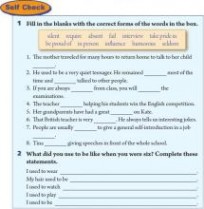

What are the shirts made of?
1b
Listen and match the products
with what they are made of
and where they were made.1c
Practice the conversation in 1a. Th en make conversations using the information in 1b.
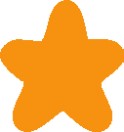







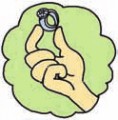
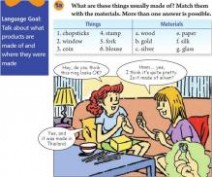

2a

Listen and check what Nick and Marcus mainly talk about.


2bListen again. Write short answers to the questions.1. Where is the art and science fair? 2. Do Nick and Marcus have to pay to go? 3. What is the model plane made of? 4. What is the painting made from? 5. What is the fair about?
2cMake conversations using the


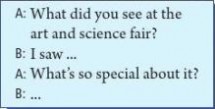
information in 2a and 2b.2dRole-play the conversation.
Pam: China is famous for tea, right?
Liu Jun: Yes, both in the past and now.
Pam: Where is tea produced in China?
Liu Jun: Well, in many di? erent areas. For
example, Anxi and Hangzhou are widely known for their tea.
Pam: How is it grown?
Liu Jun: Well, it’s planted on the sides of mountains. When the leaves are ready,

they are picked by hand and then are sent for processing.

Pam: What happens next?
Liu Jun: Th e tea is packed and sent to many di? erent countries and places
around China.
Pam: It seems that Chinese tea is drunk all over the world.Liu Jun: Yes, people say that tea is good for both health and business!


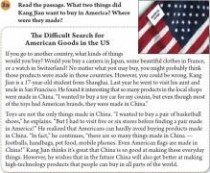
3bRead the passage and answer the questions.
1. Where did Kang Jian go to visit his aunt and uncle?2. What did he discover in the toy stores?3. Why did he have to visit many stores before buying a pair of basketball shoes?4. What did he realize aft er his shopping experiences?5. Why do you think so many products in America are made in China? How do you feel about this?
3c1. No matt those: those: 2. in China. it: 3. I wanted to buy a toy car for my cousin, but even though most of the toys they:








4aComplete the sentences with the correct forms of the verbs in brackets.
1. Children under 18 their parents.2. We 3. A: What language B: Most people speak German, but many can speak English, too.4. Most of the earth’s surface (cover) by water.5. Th e classroom needs to (clean) every day.
4bRewrite the sentences using the passive voice.
1. Farmers plant the tea on the sides of mountains. 2. In China, farmers grow the best rice in the northeast. 3. Careless driving causes many tra? c accidents. 4. Th e postman brings lett ers and postcards to people’s homes. 5. Our family does not use this silver plate very oft en.
4c

Ask fi

ve classmates about something they are wearing or have in their
schoolbags. Th e list of words below may help you.

Section1aDo you know how to fl y a kite? What are kites made







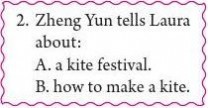

of? Write down some materials used in making kites.

B
1bListen to a conversation between Laura and Zheng Yun and circle the correct answers.
Listen and write L for Laura or Z for Zheng Yun.
1c
1dListen again. Fill in the blanks with what you hear.
1. Weifang is a city in Shandong. It is famous for 2. Th e international kite festival is held in 3. Th e competitors at the festival are from 4. Th ere are competitions for the best kites, the kites.5. Some of the kites Zheng Yun saw were made of painted with colorful . kites or the 1eRole-play a conversation between Laura and Zheng Yun using the information in 1b–1d.







2a
2bDo you do any kind of folk or traditional art, like drawing or painting? Tell your partner about it.Read the passage and complete the chart below.






2cRead the passage again and answer the questions.
1. What do traditional Chinese art forms try to show?
2. What were sky lanterns used for before and what are they used for now?
3. What kinds of pictures are usually found on paper cutt ings?
4. How do people use paper cutt ings during the Spring Festival?
5. What are the steps for making clay art pieces?
6. Which art form do you think is the most interesting? Why?
2dComplete the sentences using the correct forms of the phrases in the
box.
such as turn ... into send out cover with rise into

put ... on
2eDiscuss the questions in your group.
1. Which art form do you think is the easiest? Which is the most di? cult? Why?
2. Which art form would you like to learn? Why?
3aWhat are some special things that your hometown or city is famous
for? Th ese can be food, artwork or any other products. Discuss with a

partner and take notes.






3bWrite a paragraph about the product. Use your notes in 3a.
Try to use the following language:

AWhen was it invented?

1a
Language Goal:Talk about the history of inventions

Look at the things below. In what order do you

think they were invented? Discuss them with your

group. Th

en number them [1–4] (1 = fi






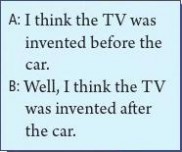
rst, 4 = last).

1bListen and match the inventions with the years.
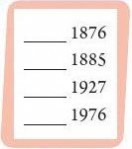
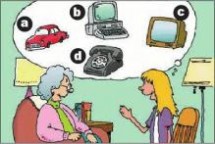
1c

Student B, cover the dates. Student A, ask Student B when the things in the picture in
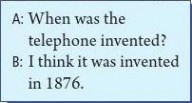
1b were invented. Th en change roles and practice again.

2a2bListen again. Match the inventions with their inventors and uses.
2c
2dMake conversations using the information in 2b.Role-play the conversation.








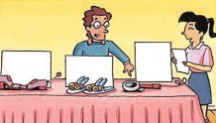
Paul: Hey Roy, the subject for my school project is “Small inventions that changed the world.” Can you help me think of an invention?Roy: My pleasure! Let me think ... hmm ... I know! Th e zipper!Paul: Th e zipper? Is it really such a great invention?
Roy: Th ink about how oft en it’s used in our daily lives. You can see zippers on dresses, trousers, shoes, bags ... almost everywhere!Paul: Well, you do seem to have a point ...
Roy: Of course! I thought about it because I saw a website last week. The pioneers of di? erent inventions were listed there. For example, it mentioned that the zipper was invented by Whitcomb Judson in 1893. But at that time, it wasn’t used widely.Paul: Really? So when did it become popular?
Roy: Around 1917.
本文标题:新目标九年级英语教案-新目标九年级上英语Unit4复习学案61阅读| 精彩专题| 最新文章| 热门文章| 苏ICP备13036349号-1